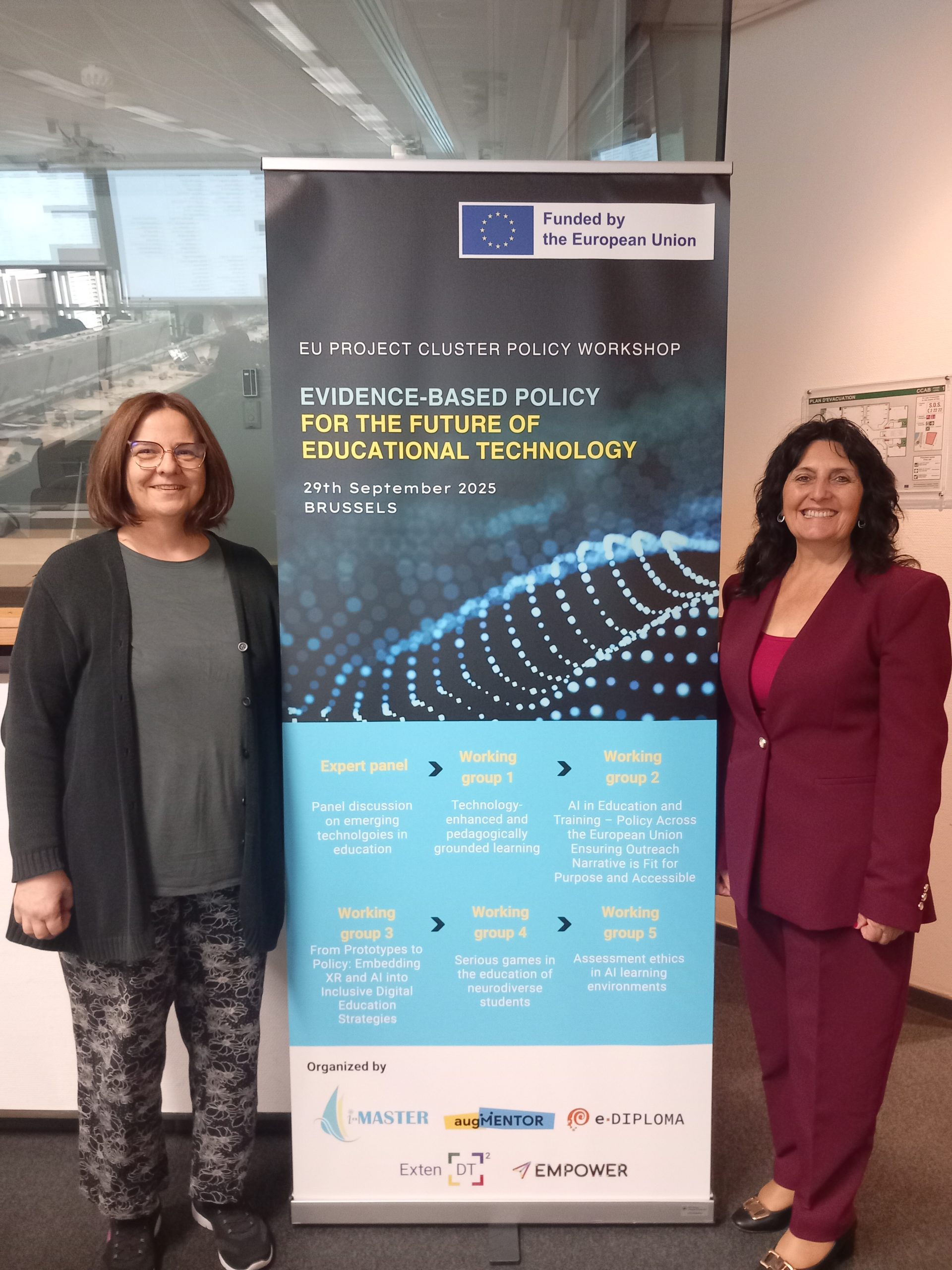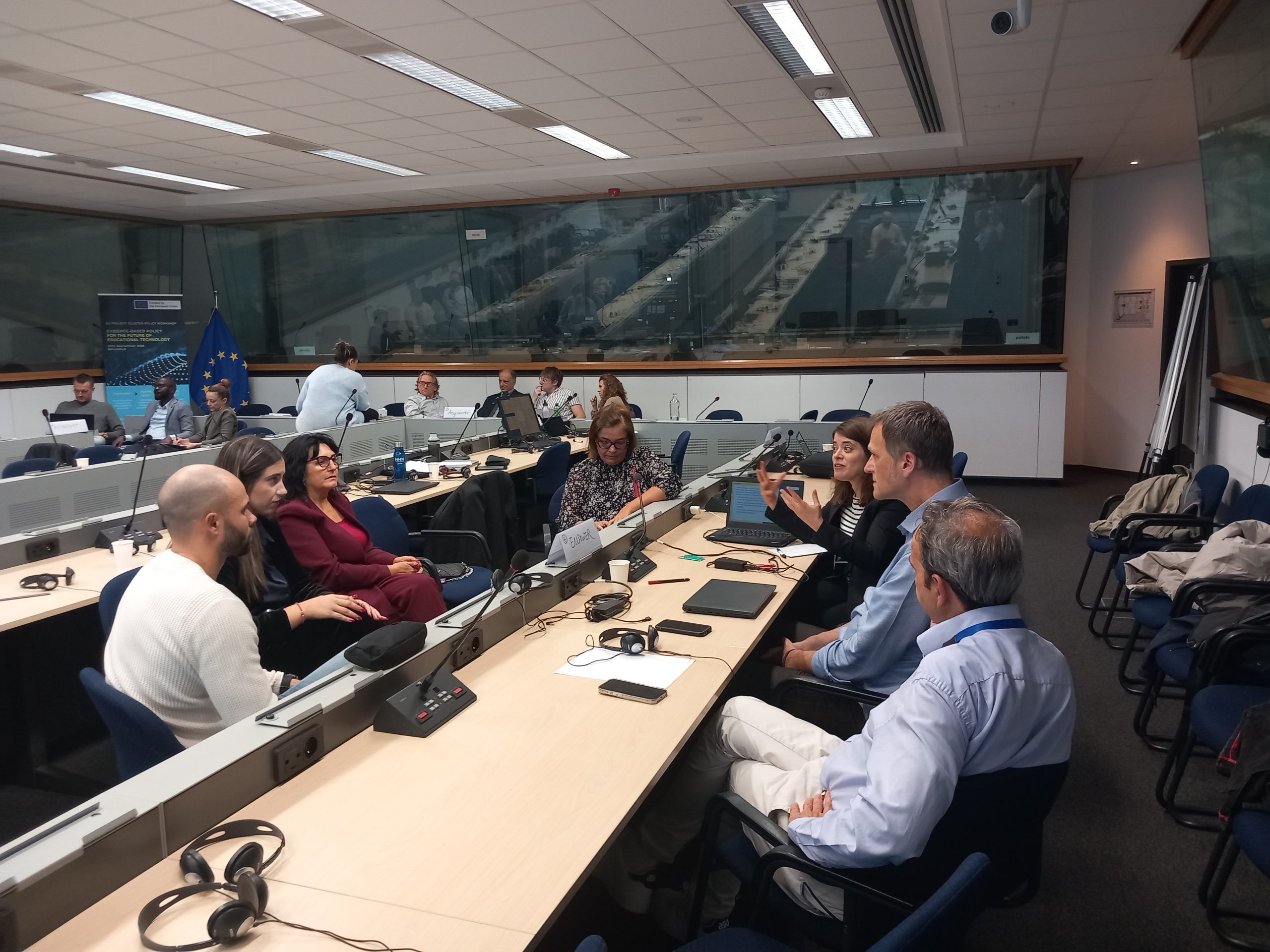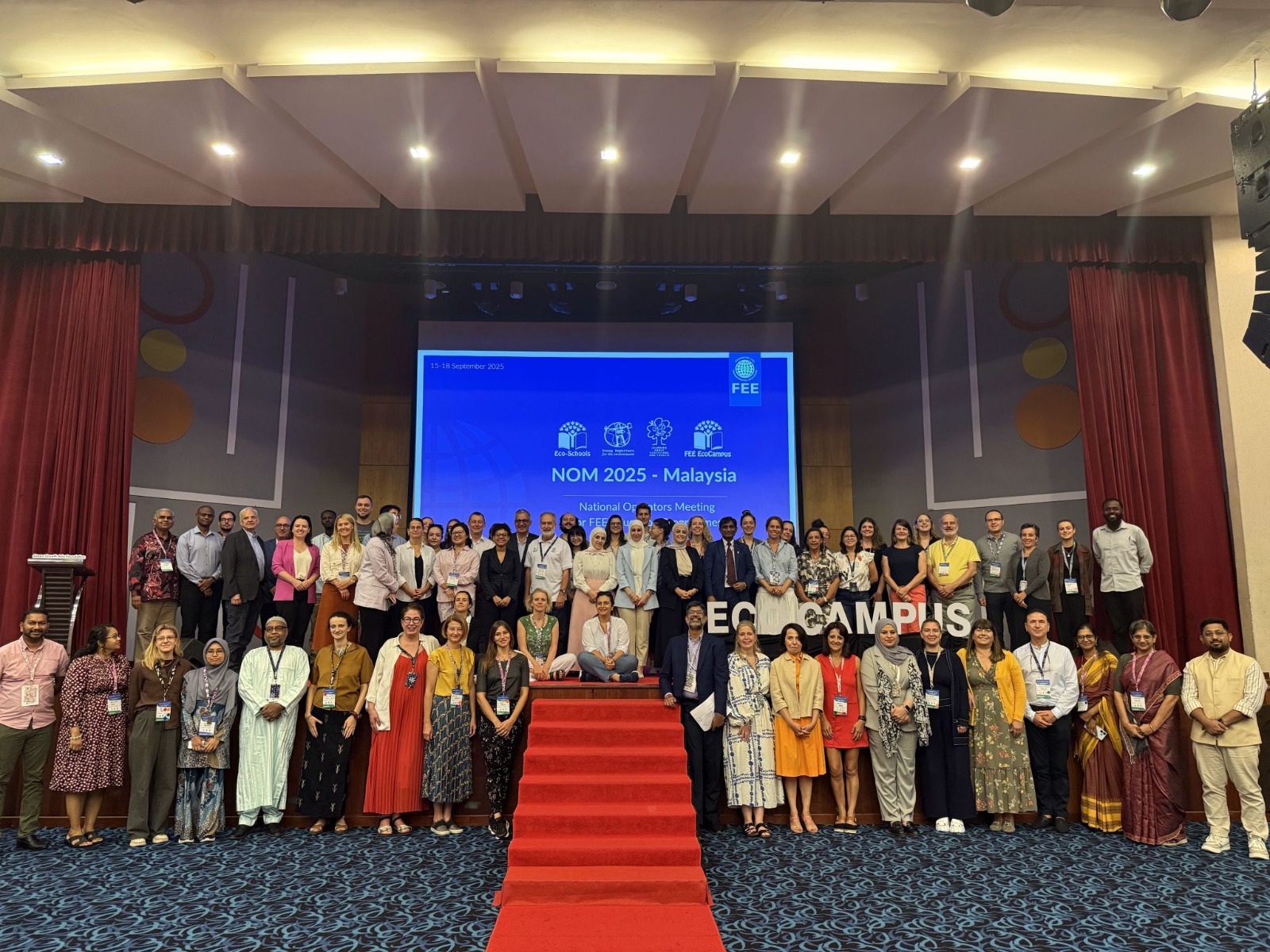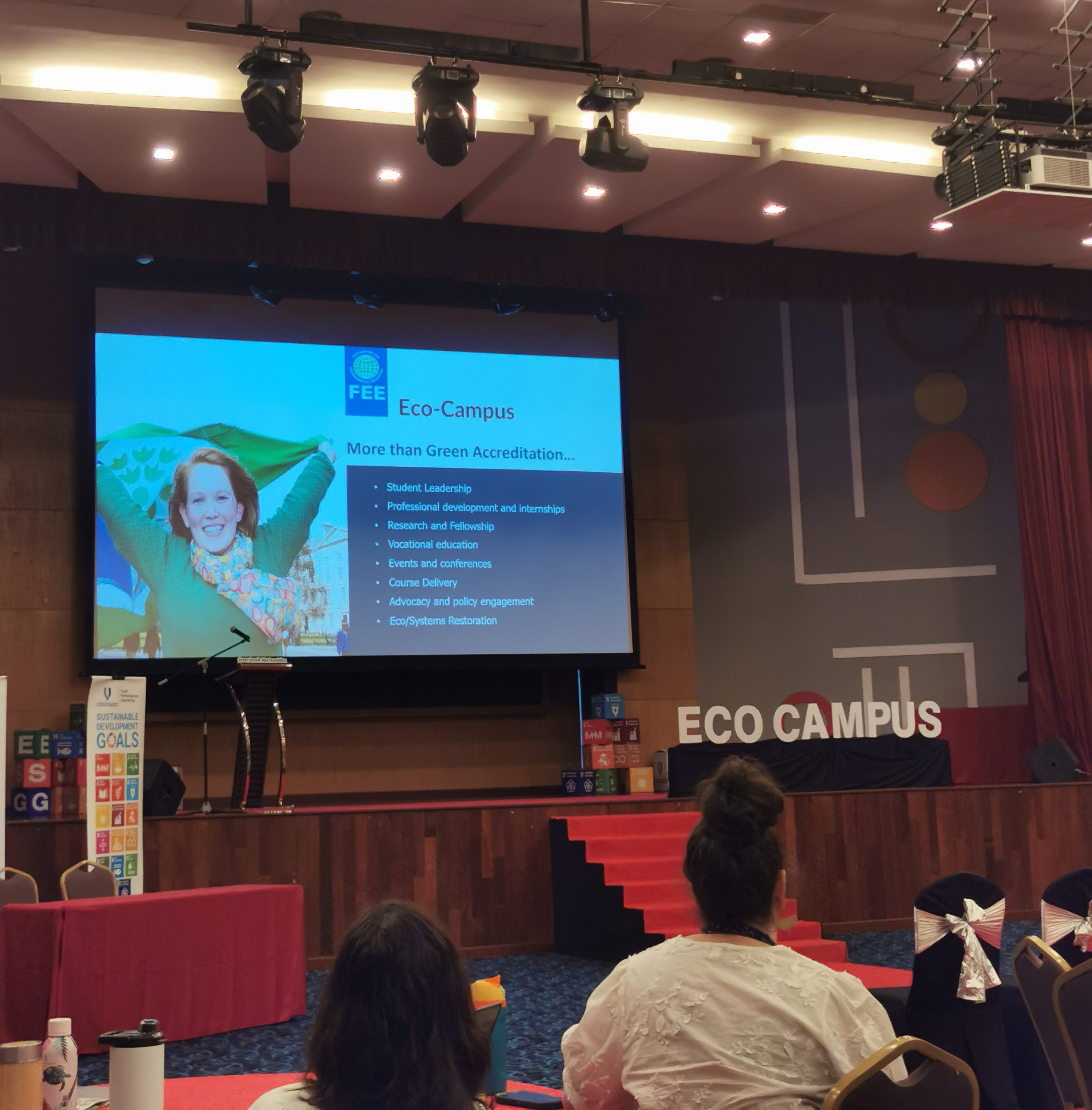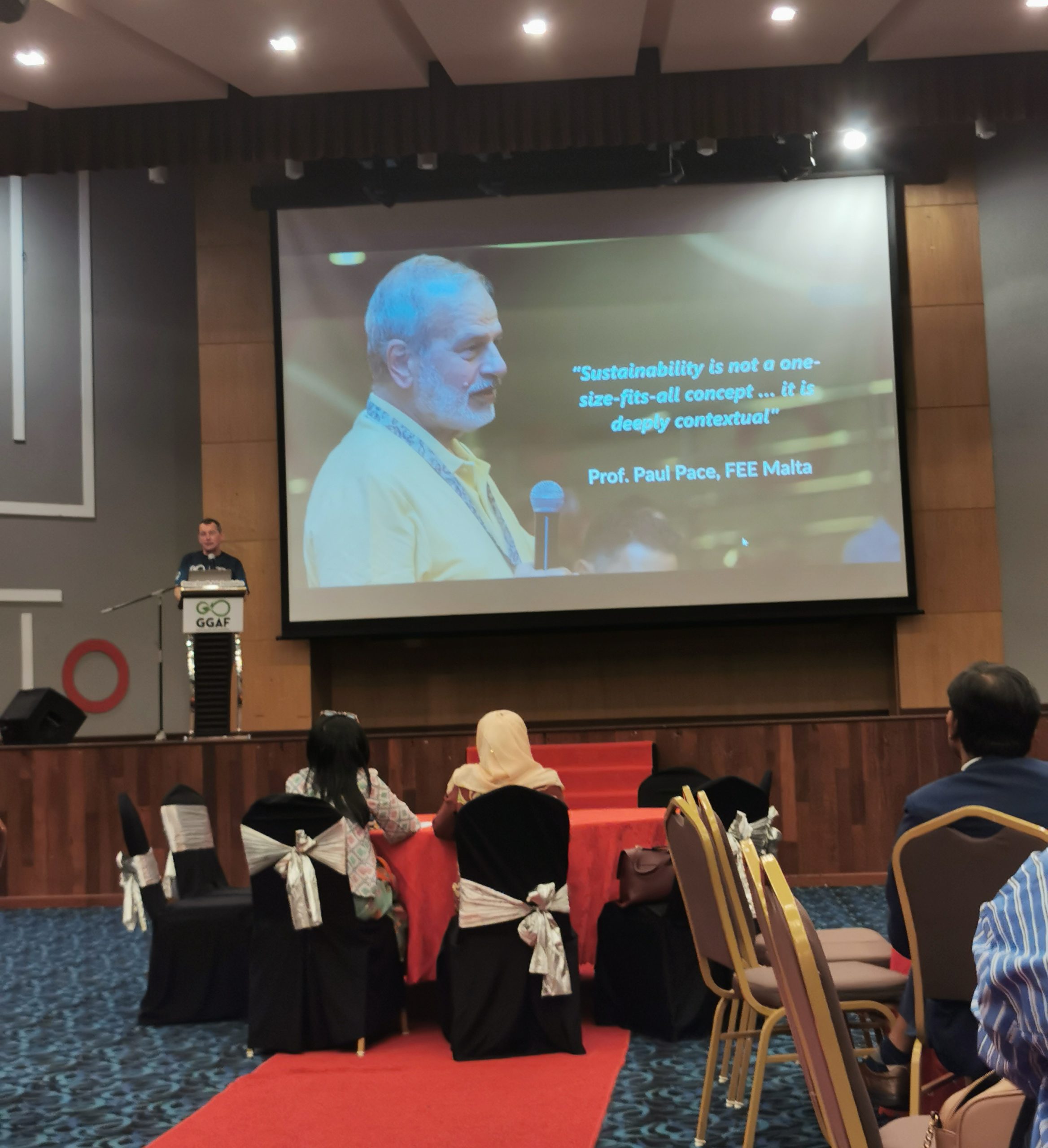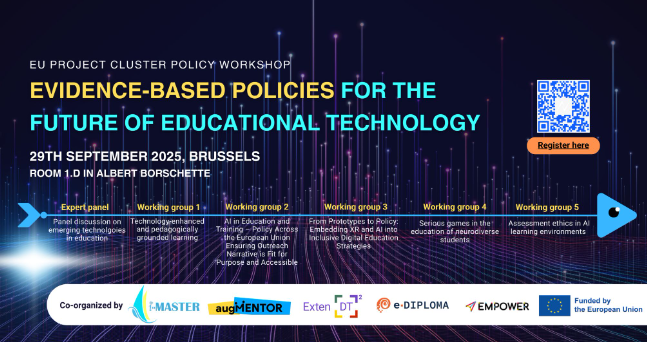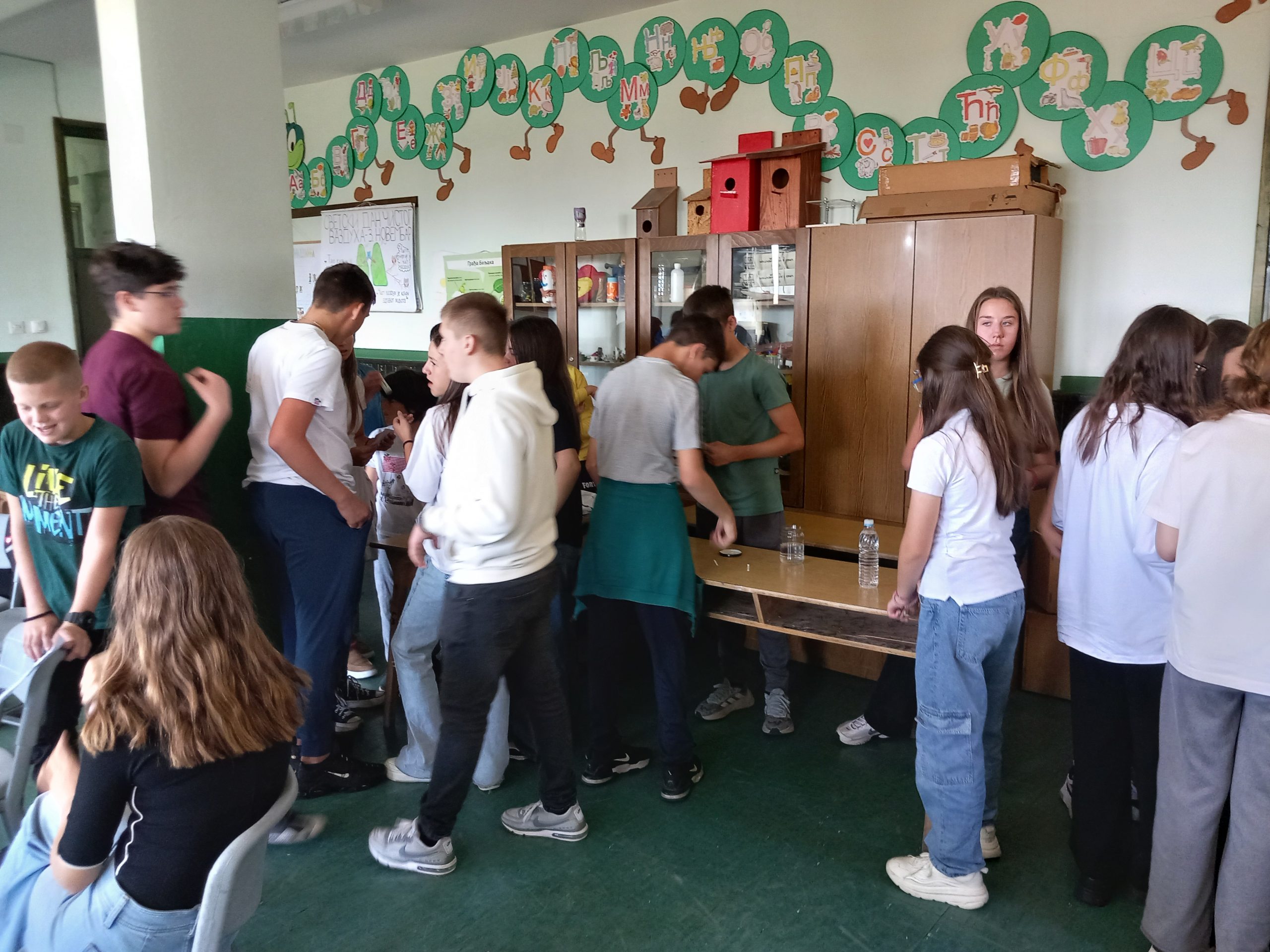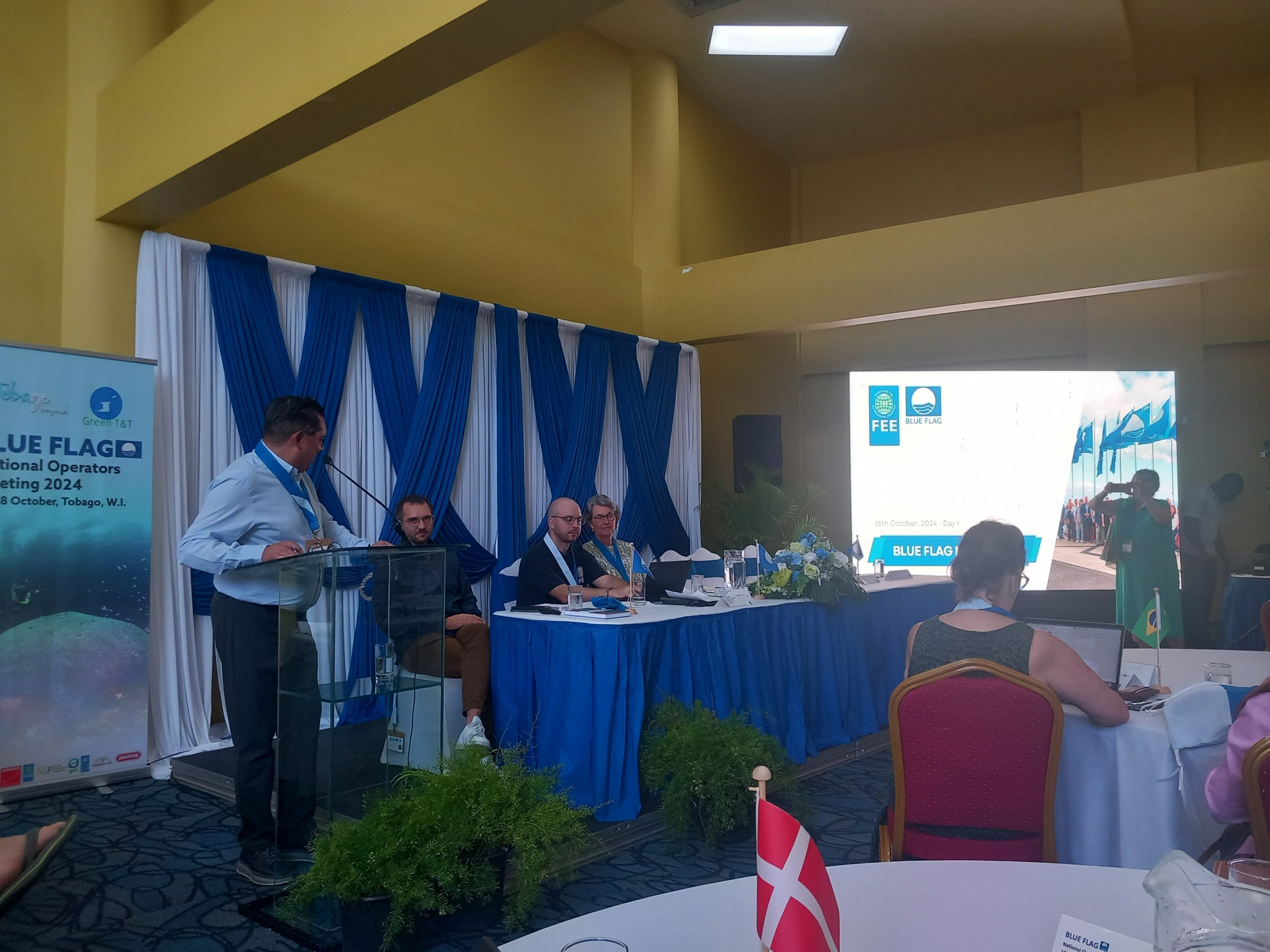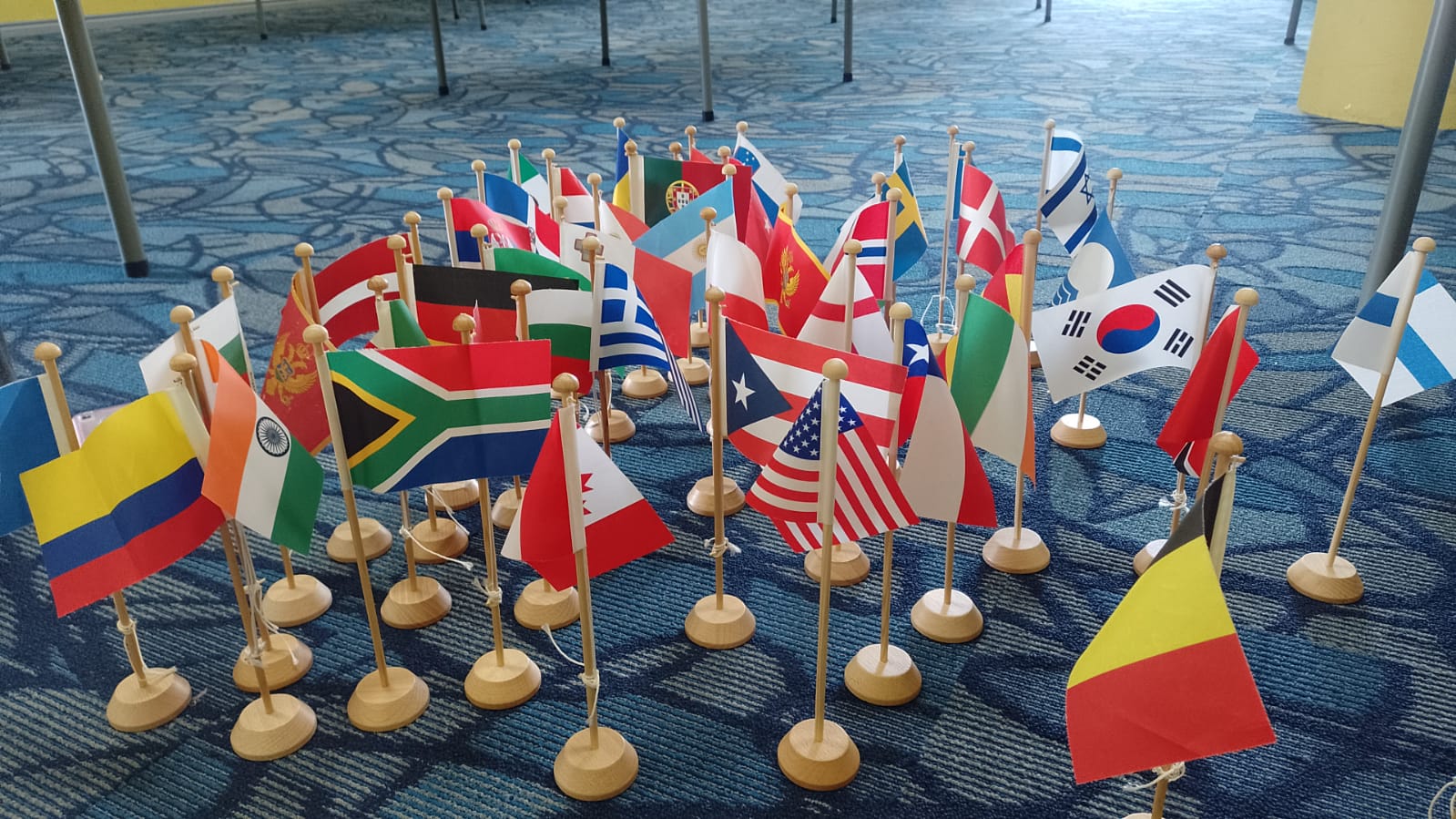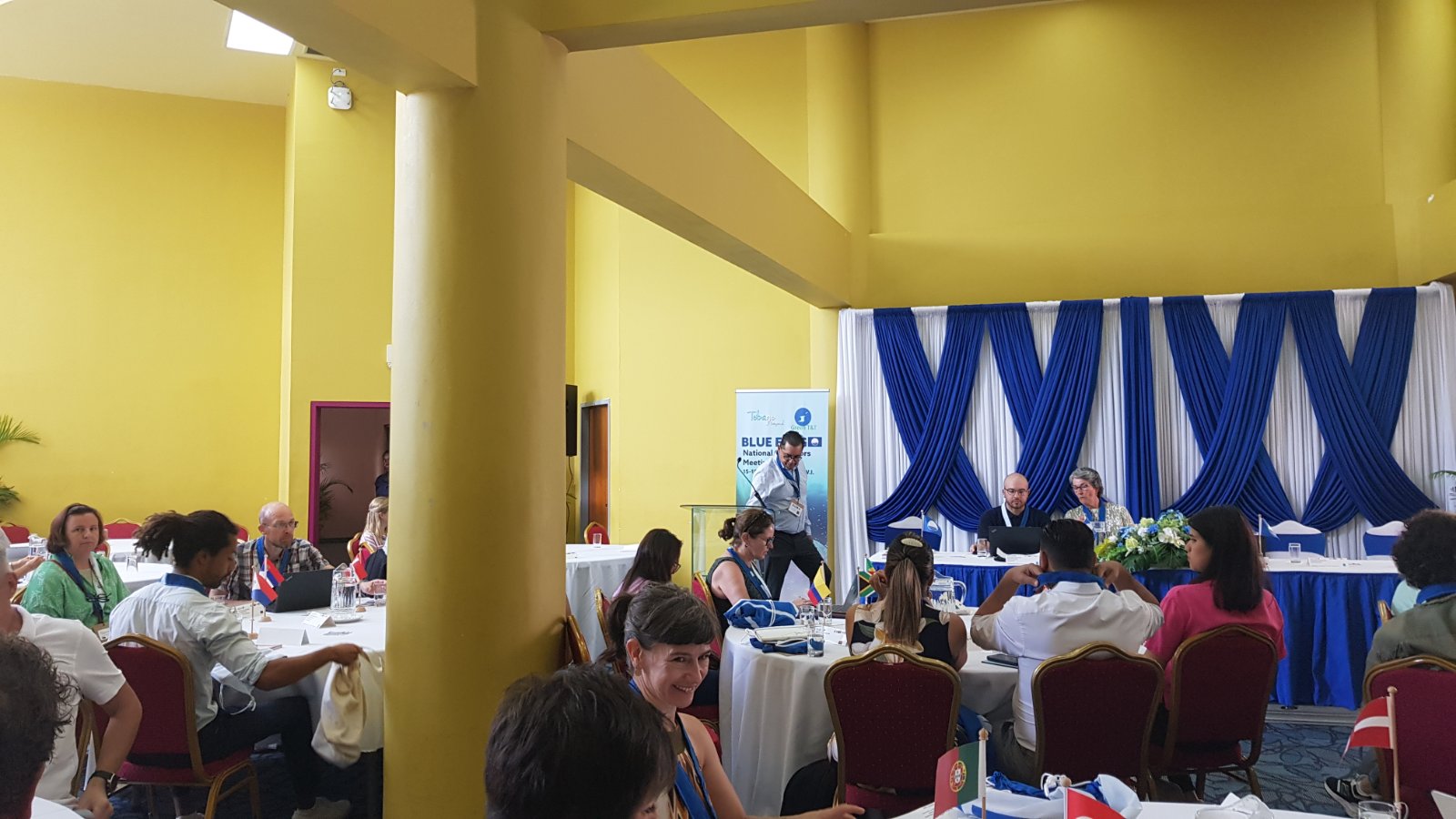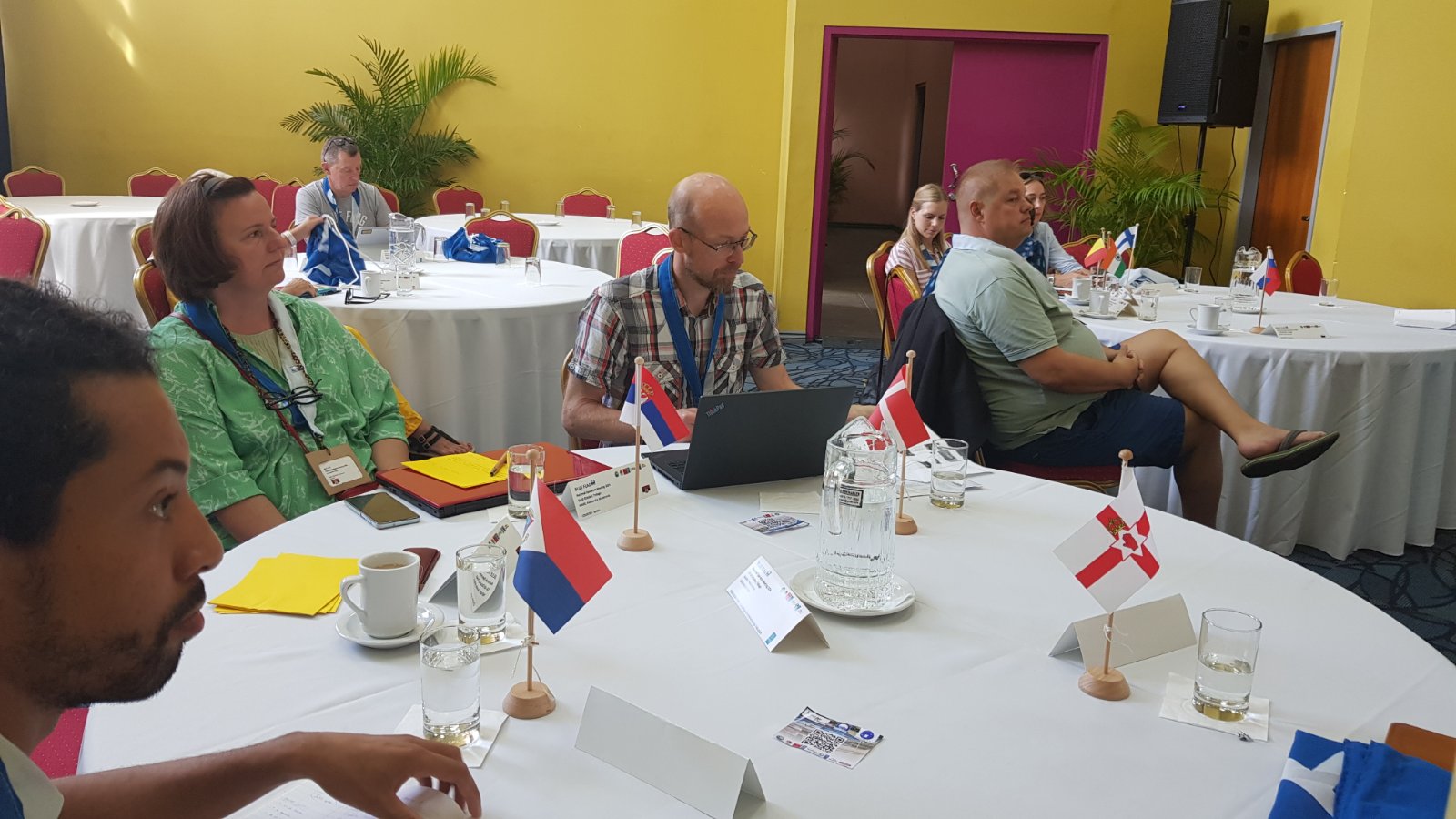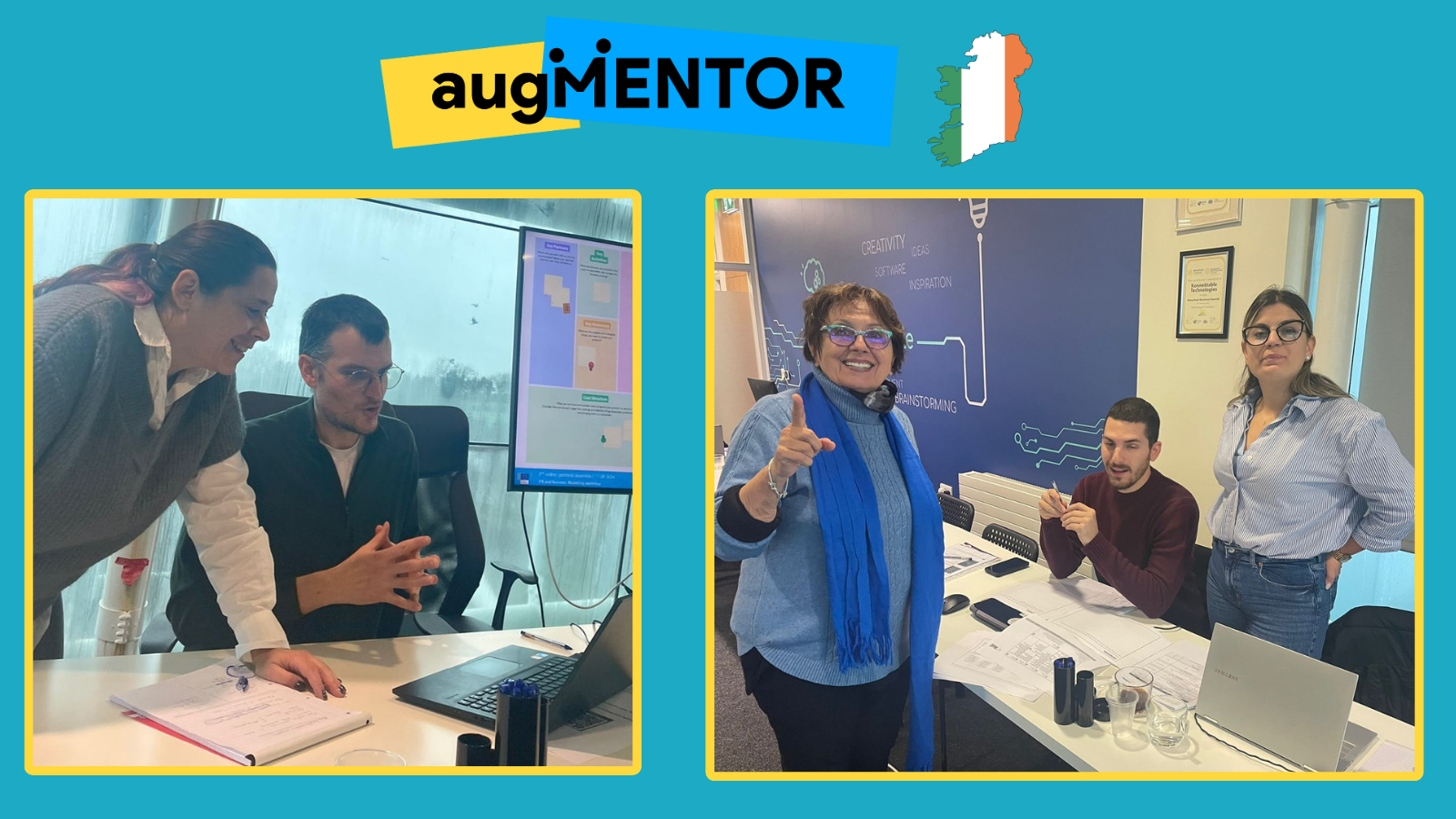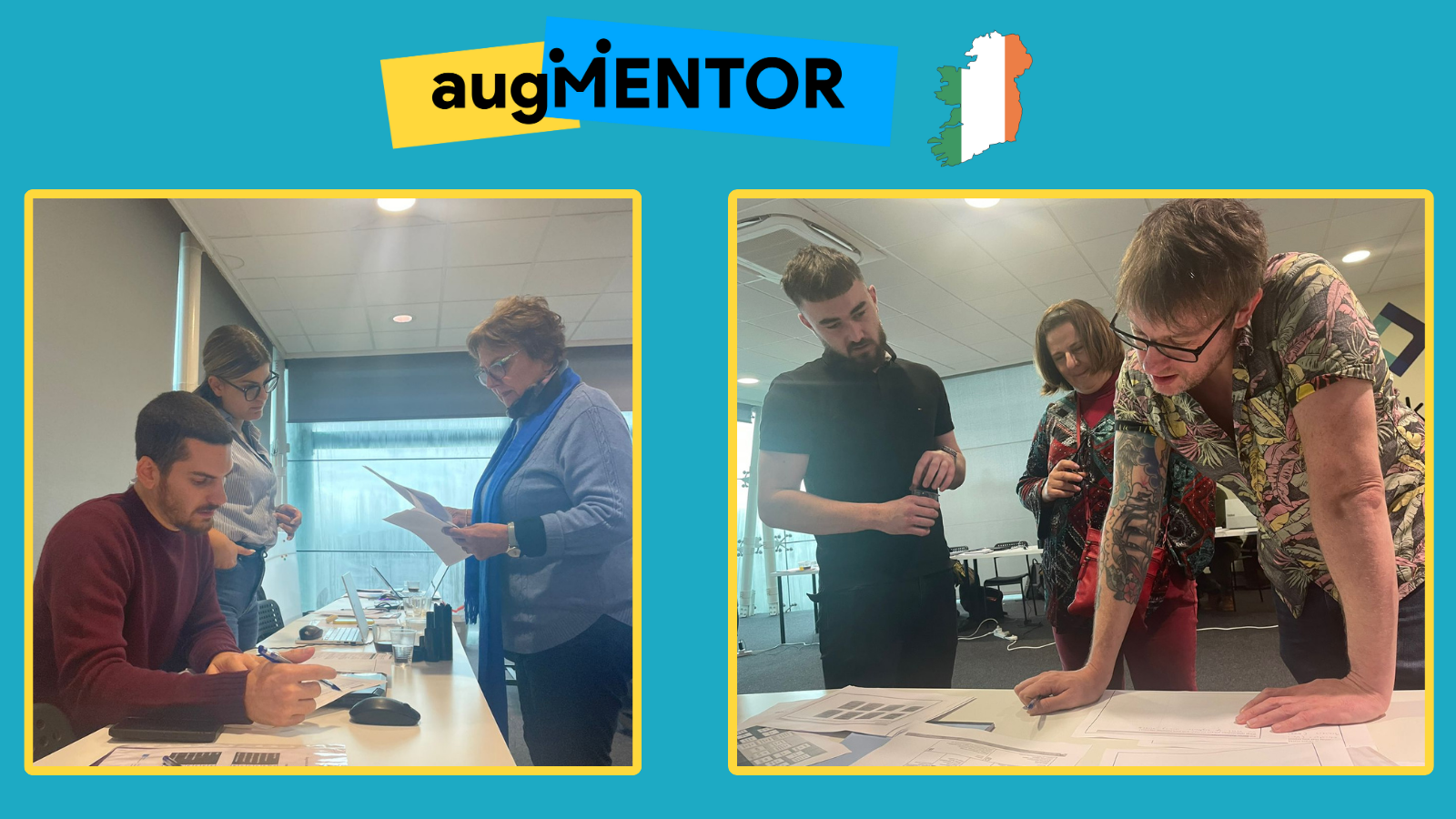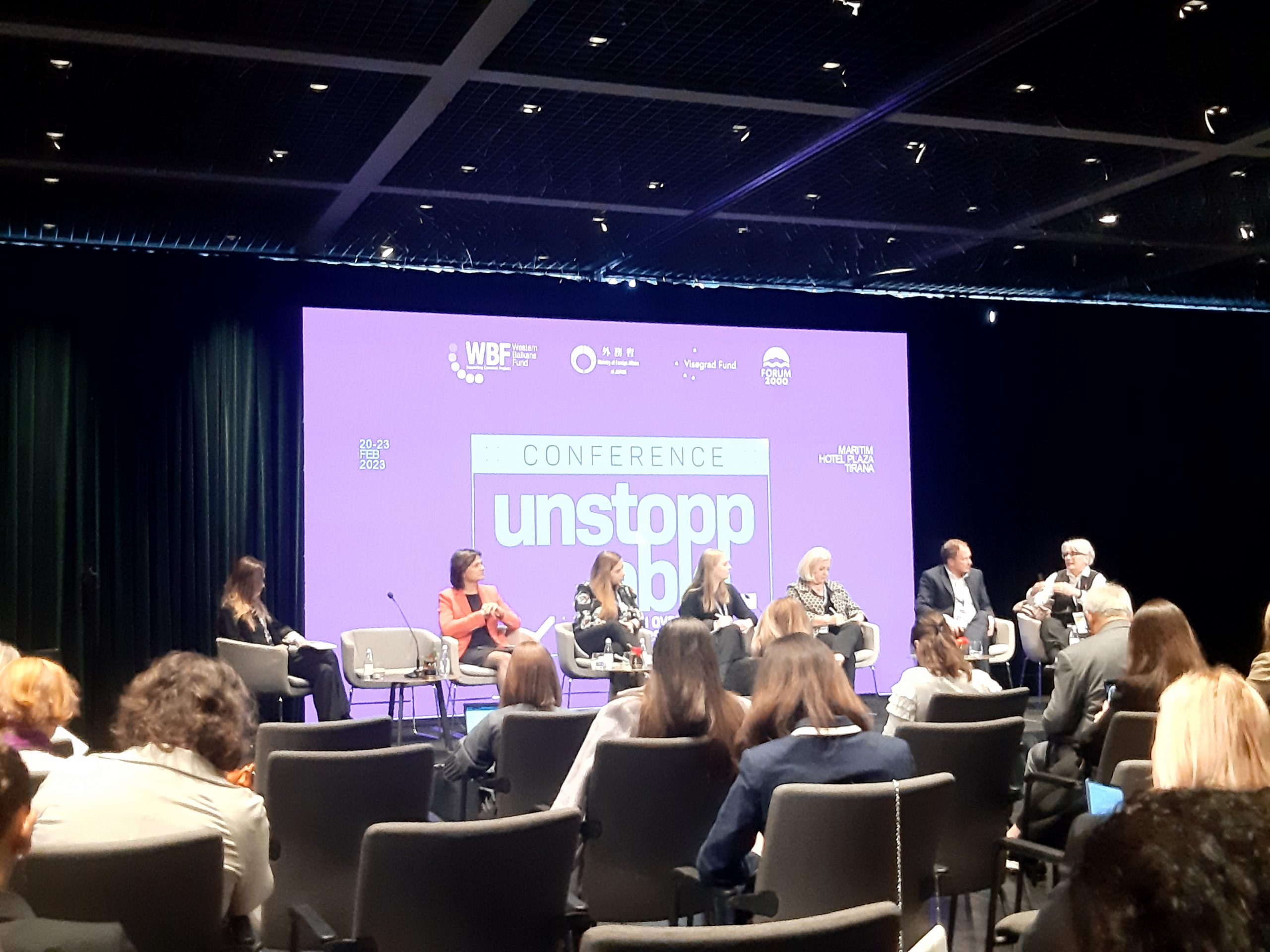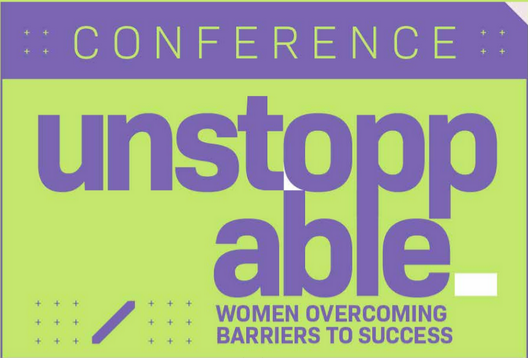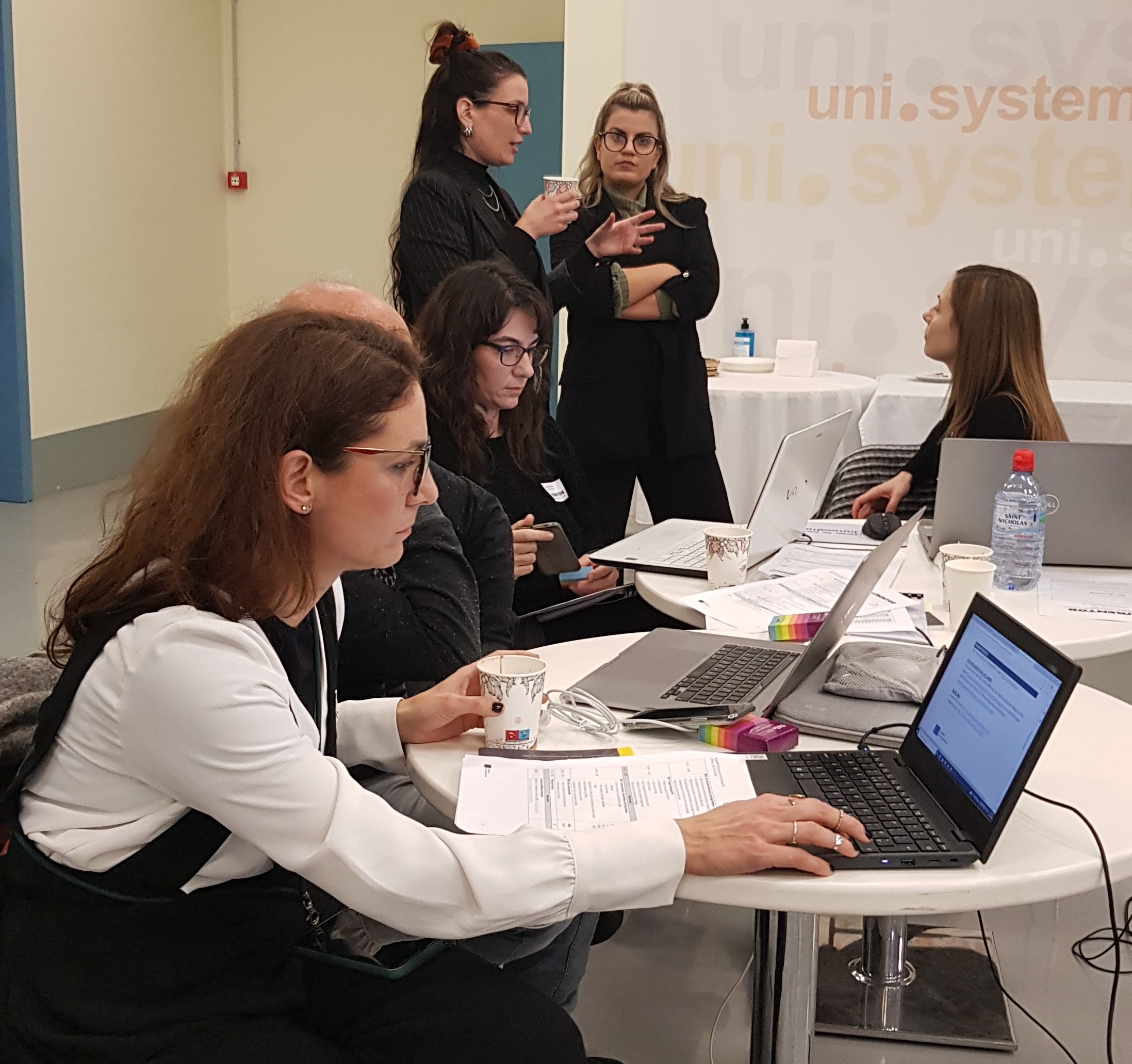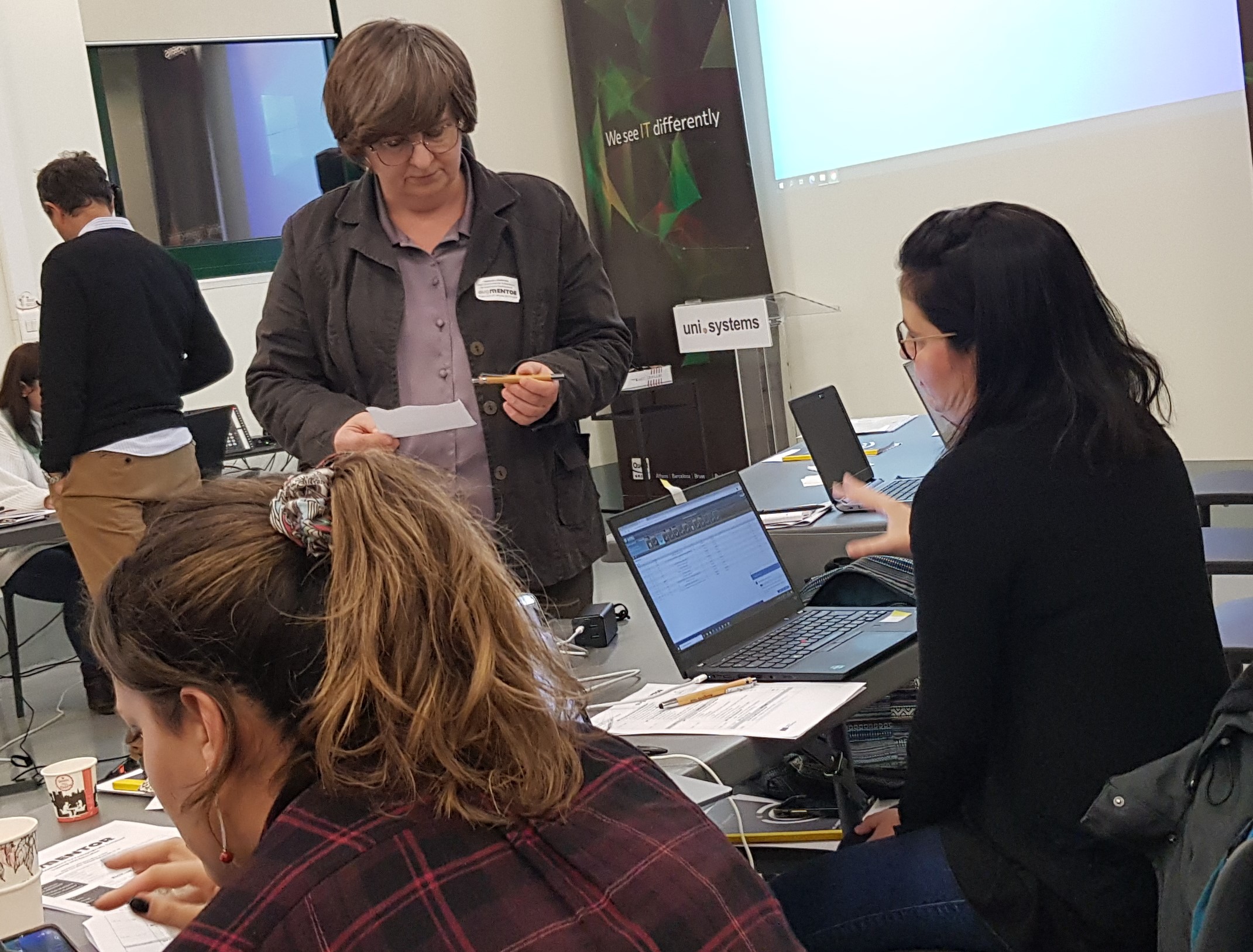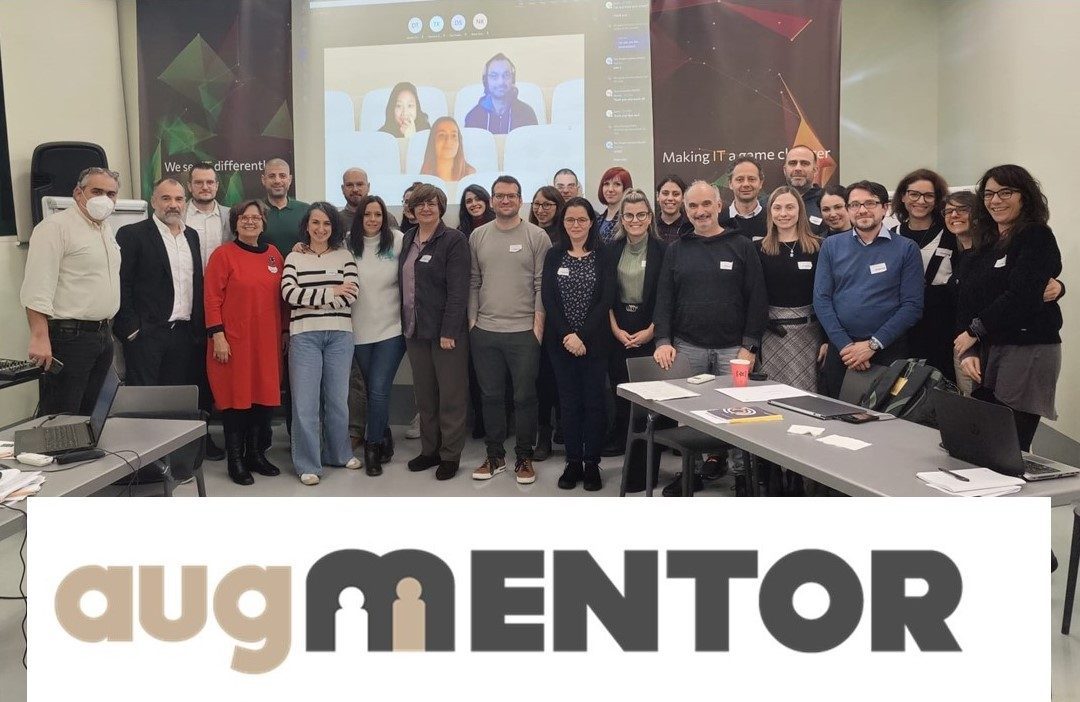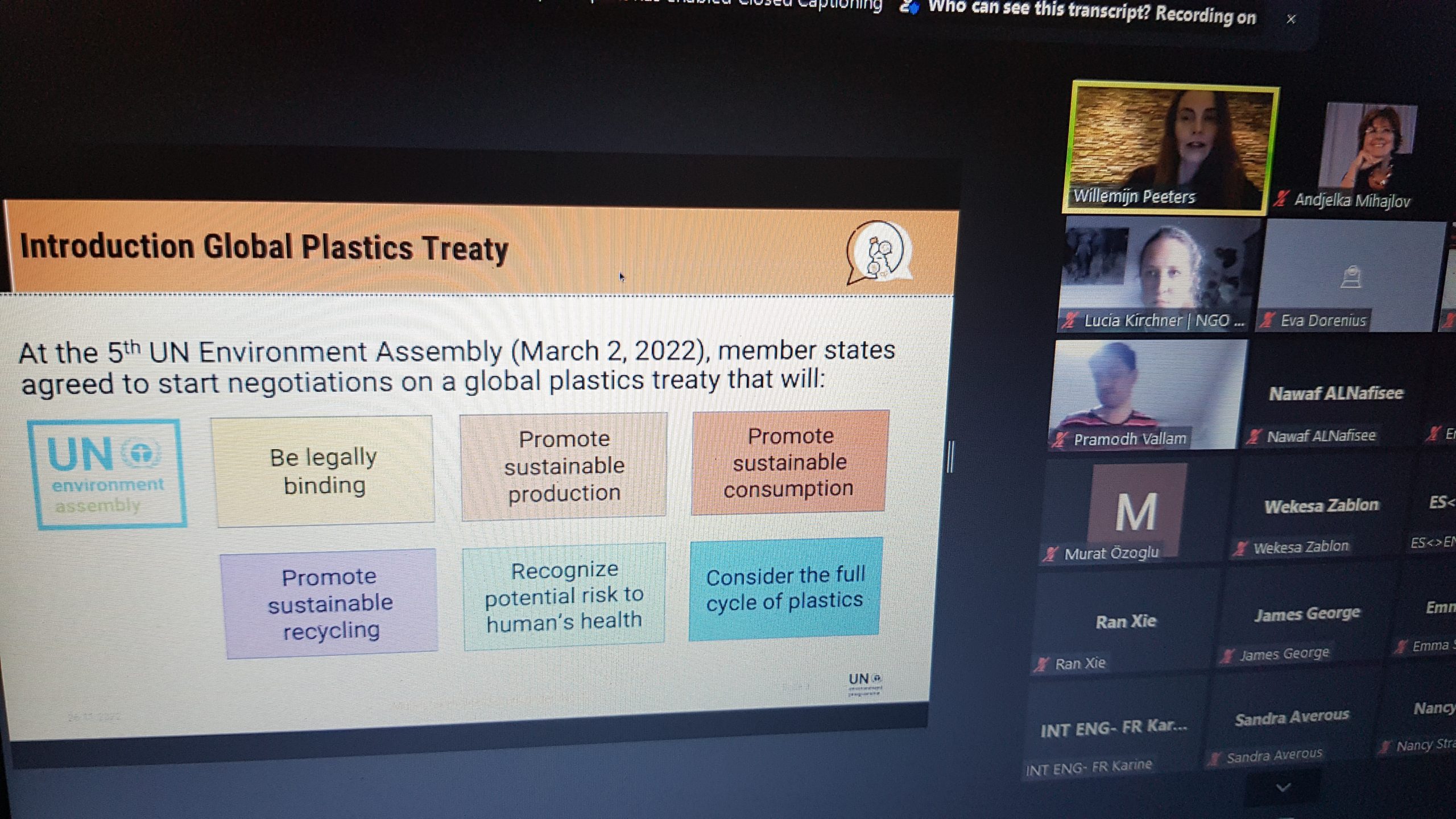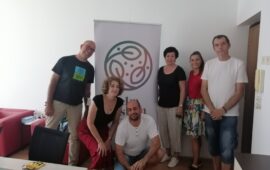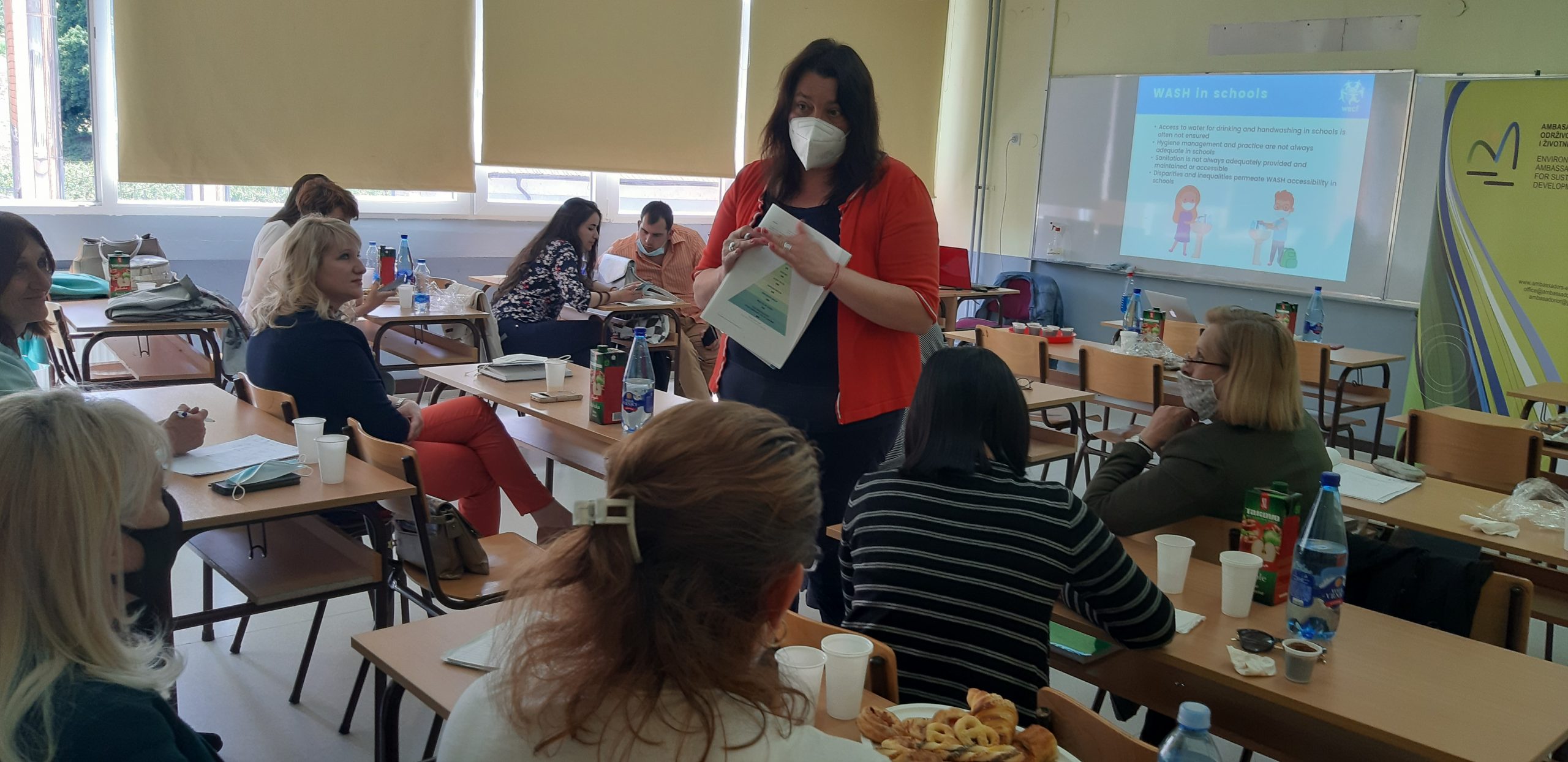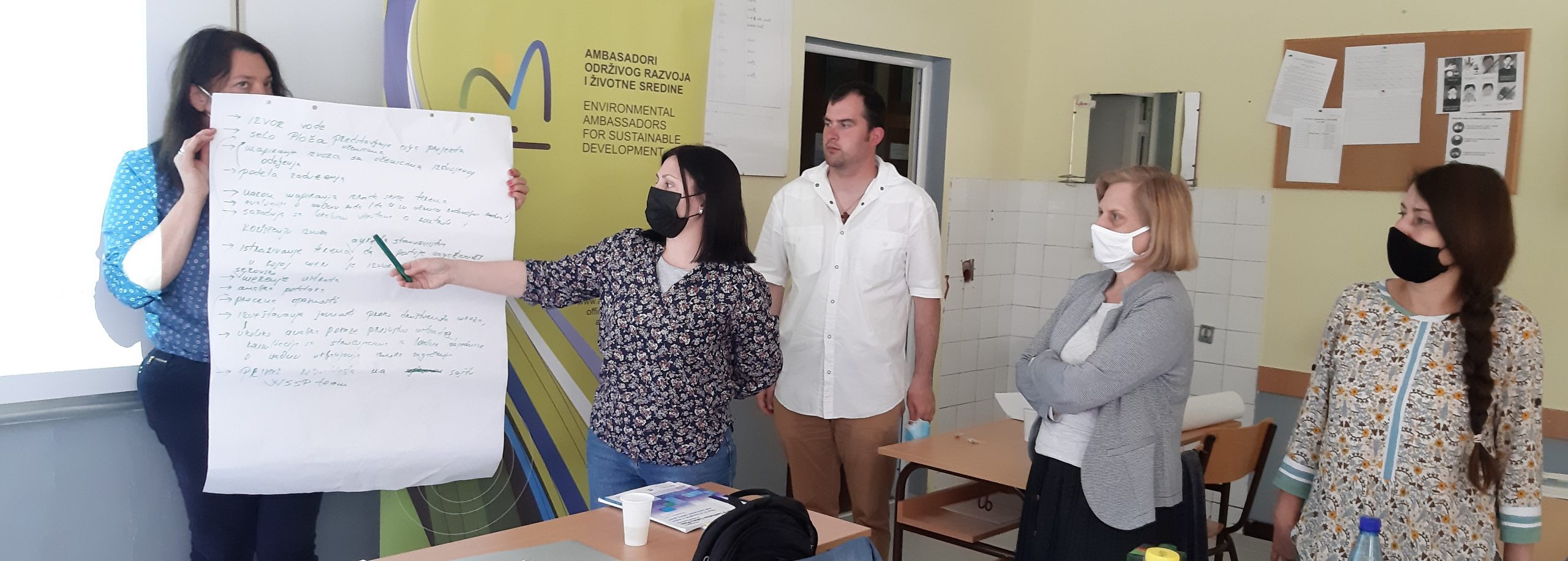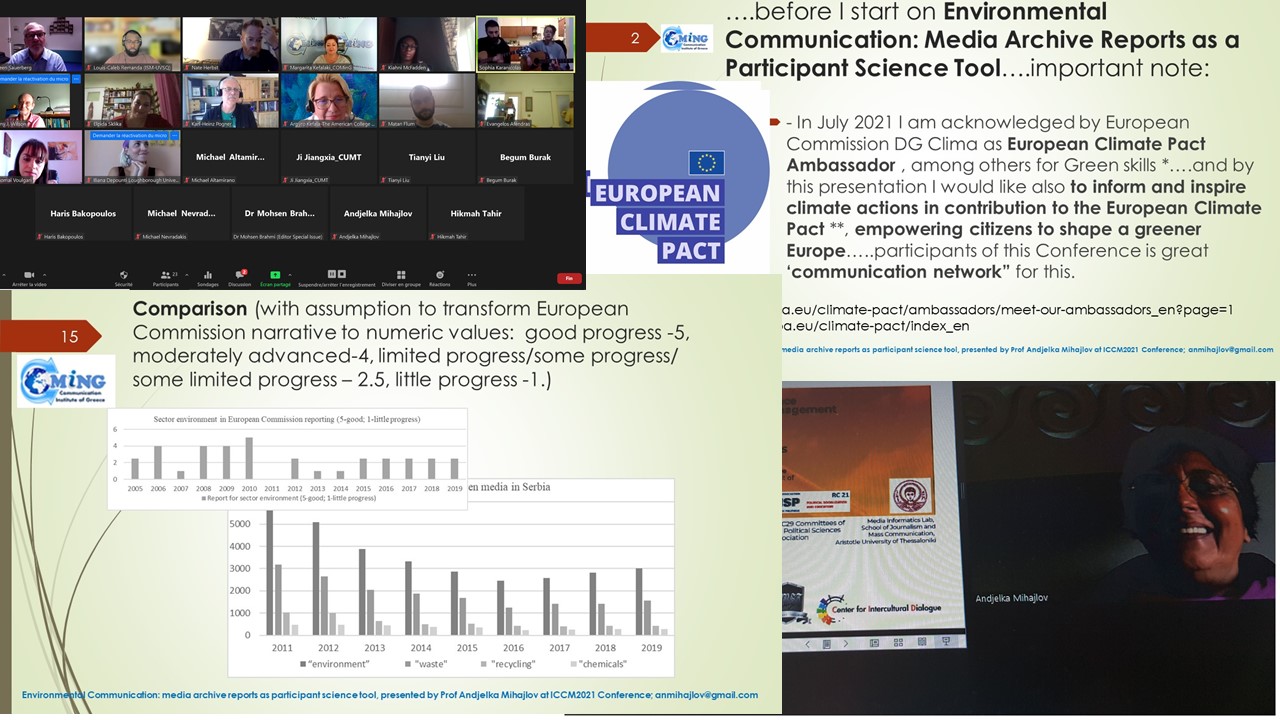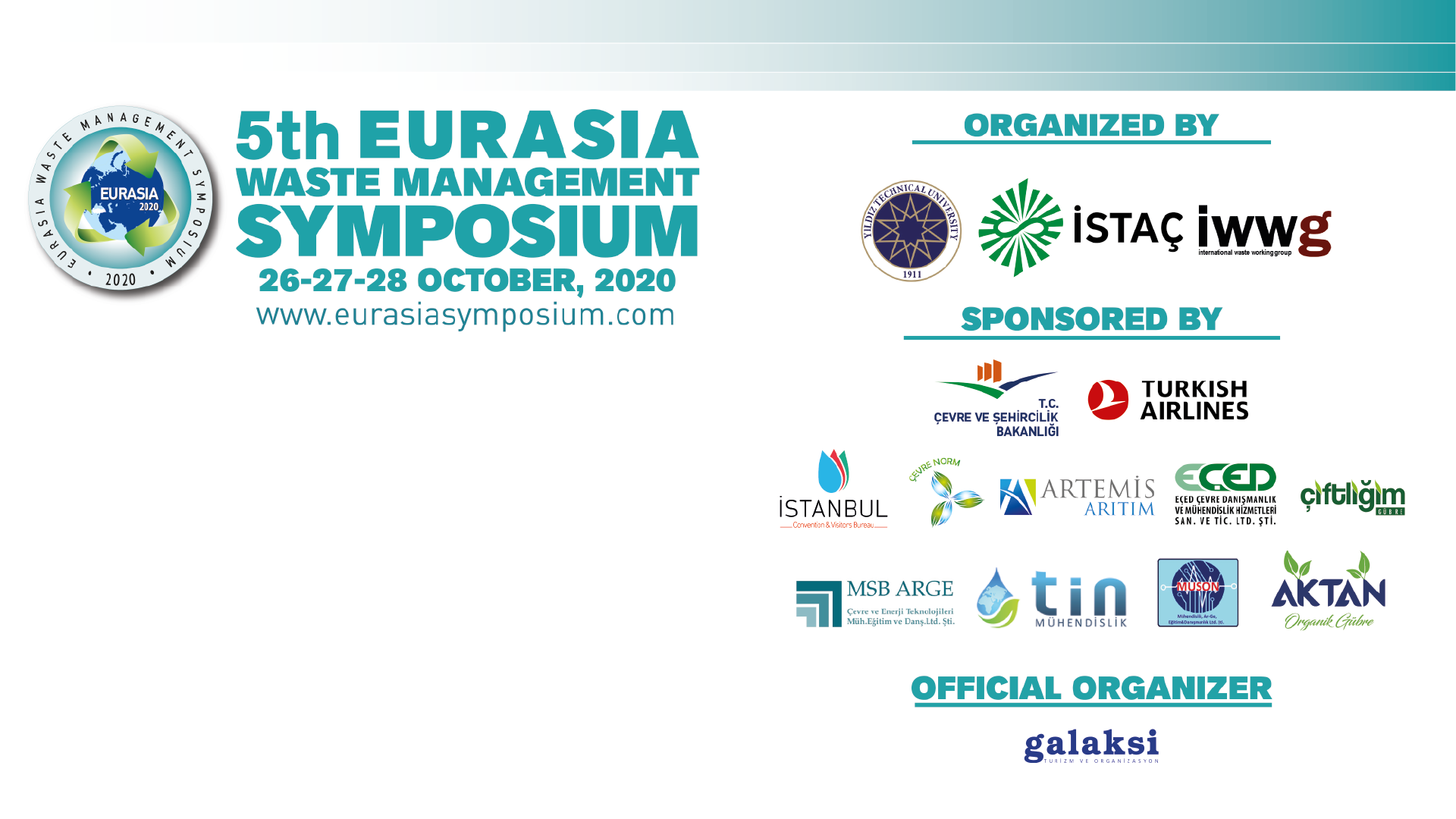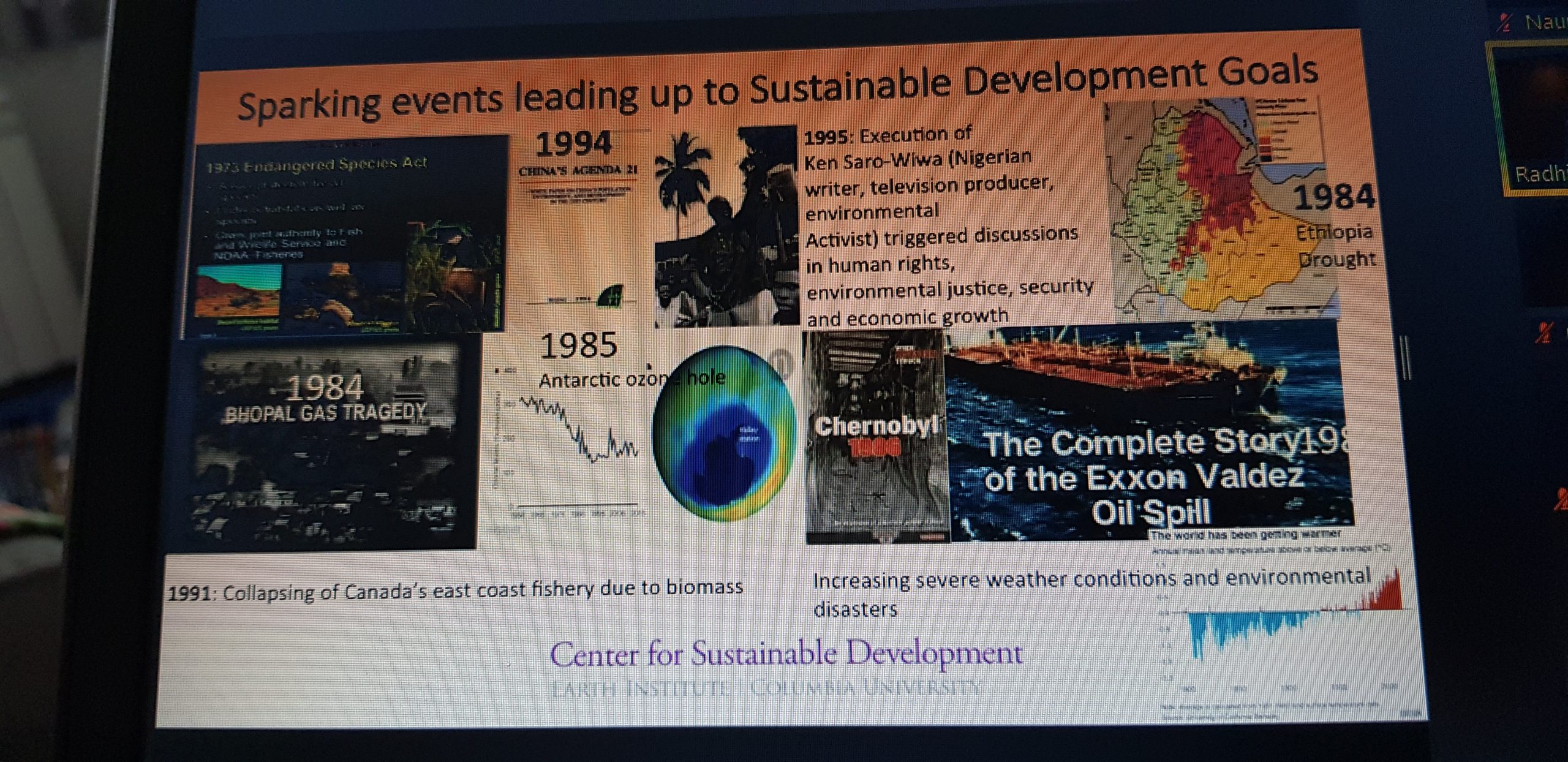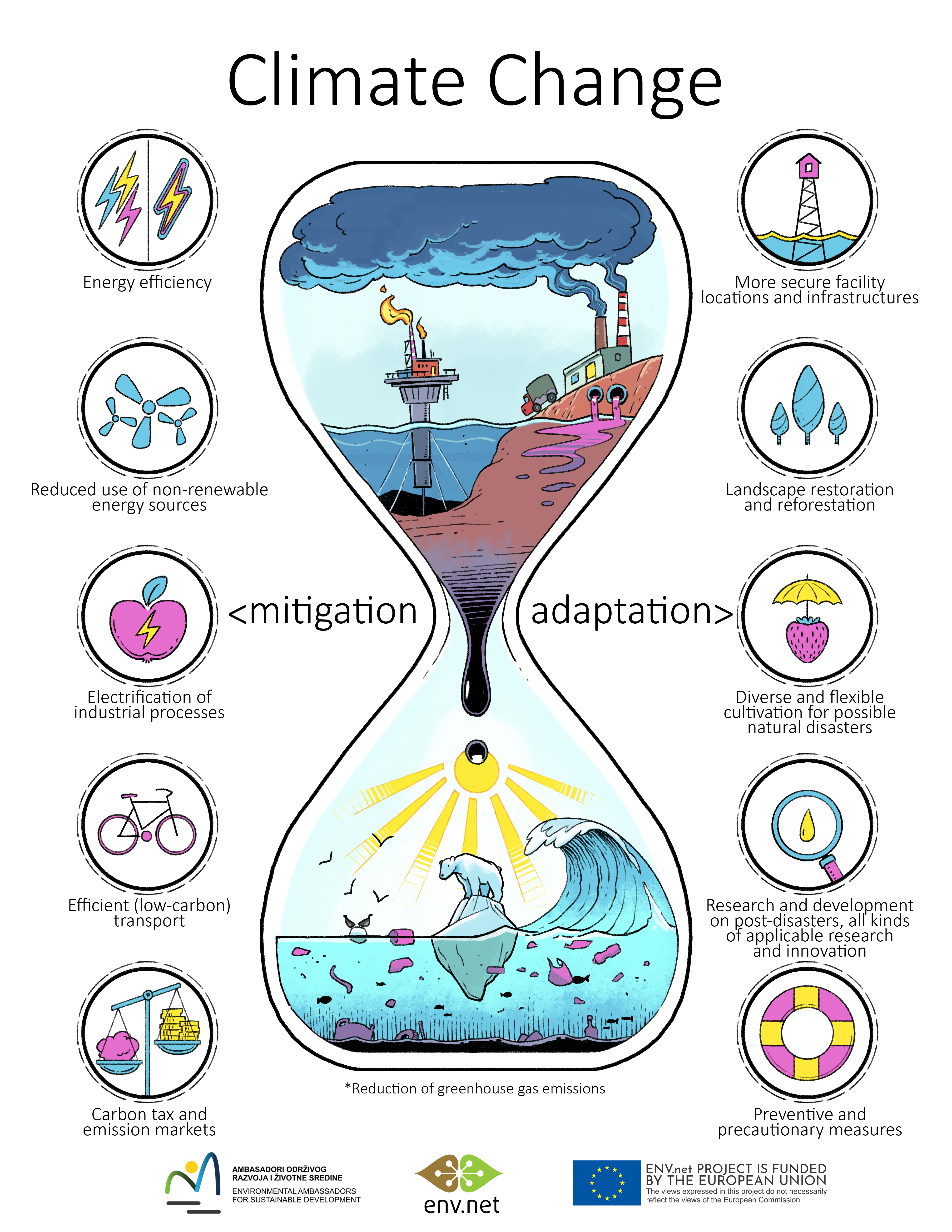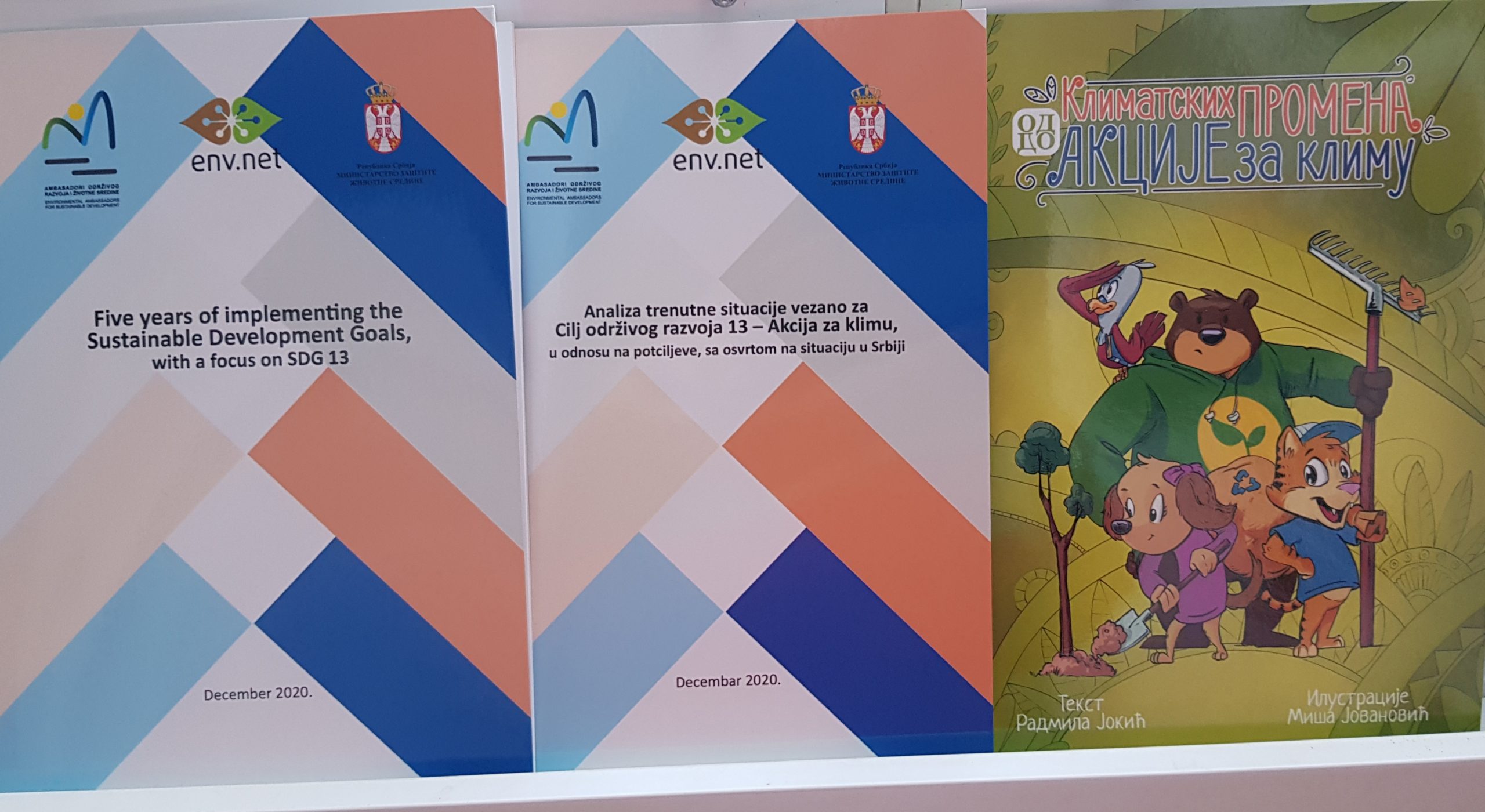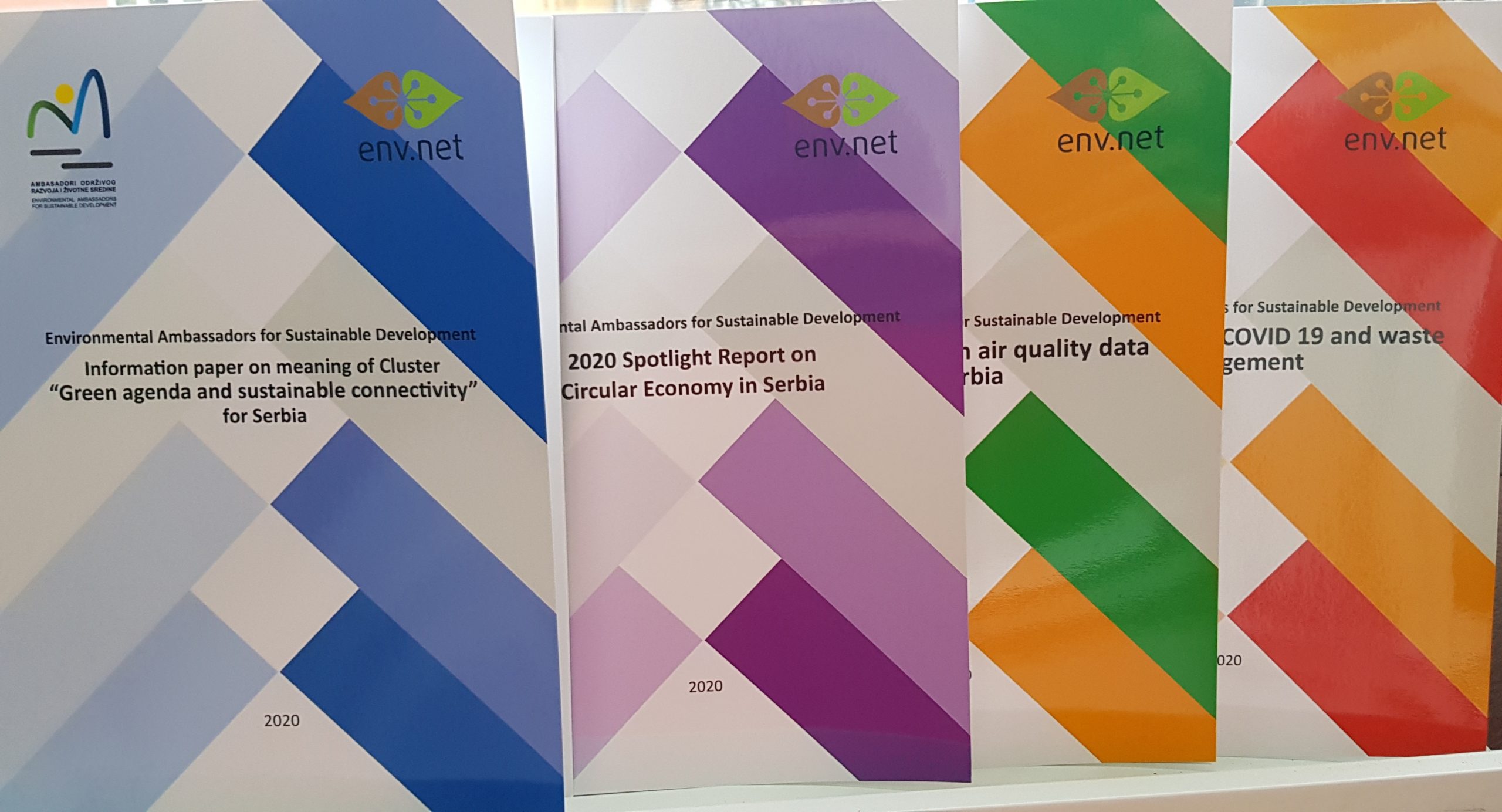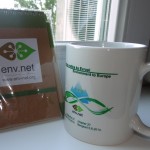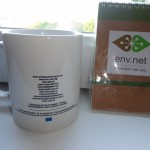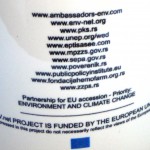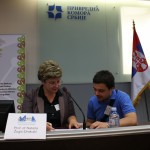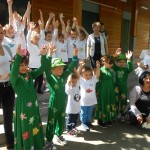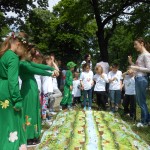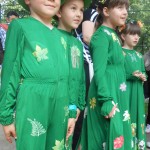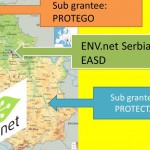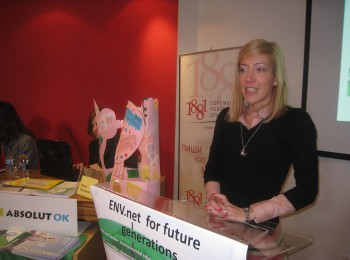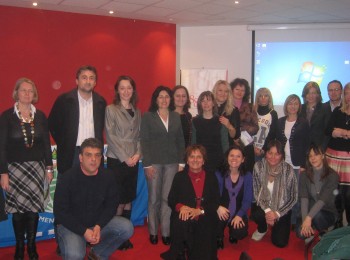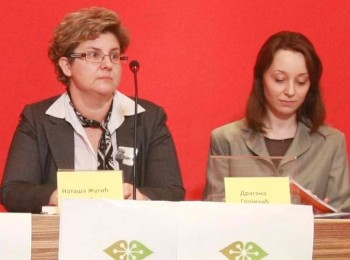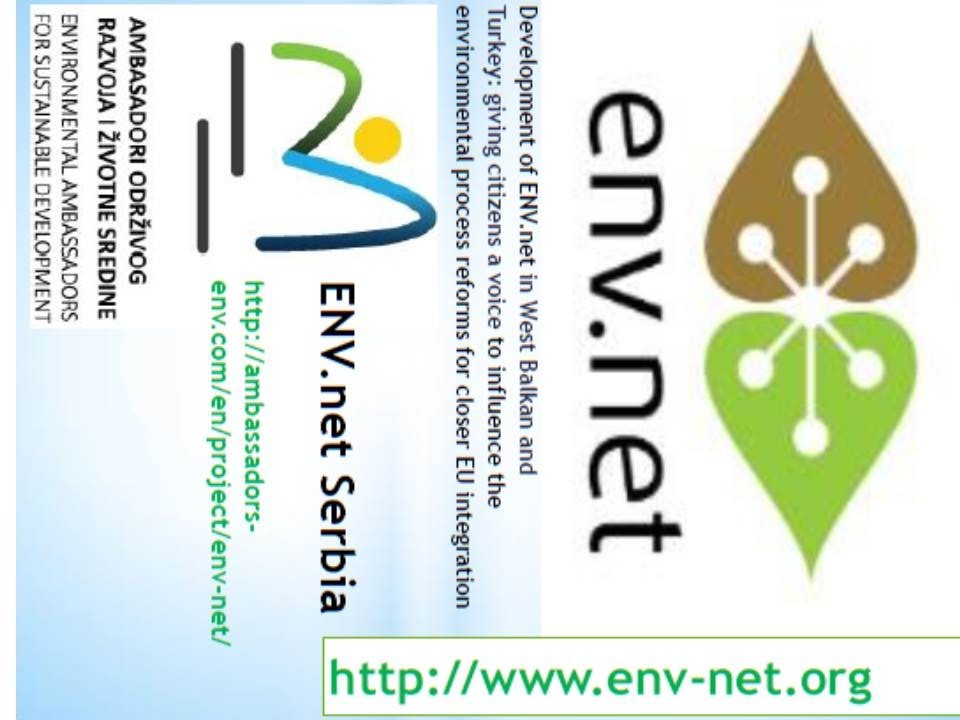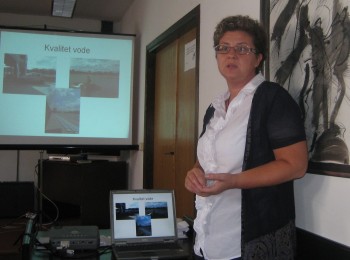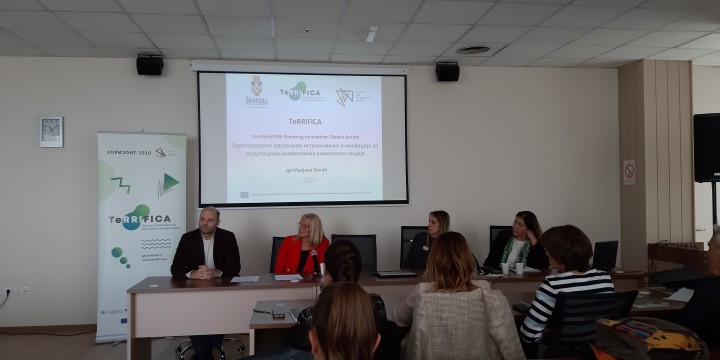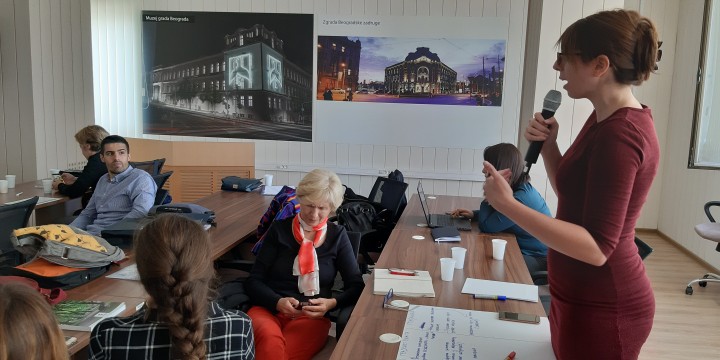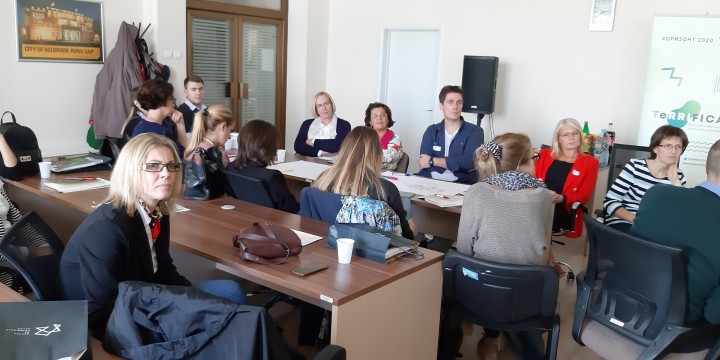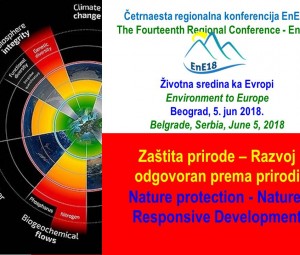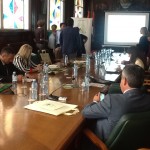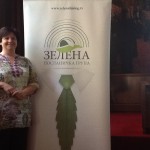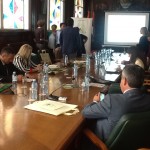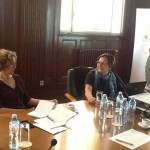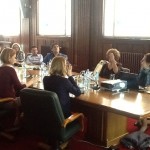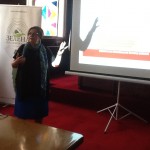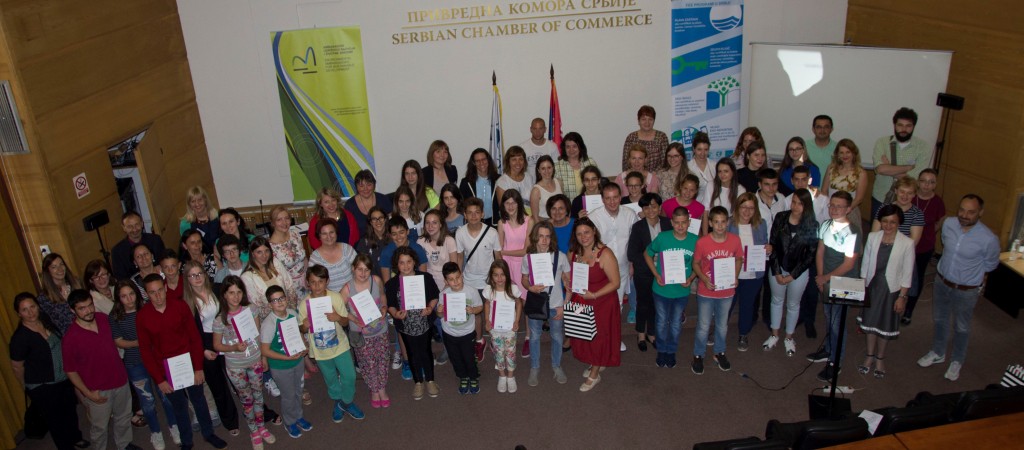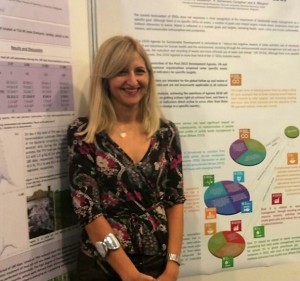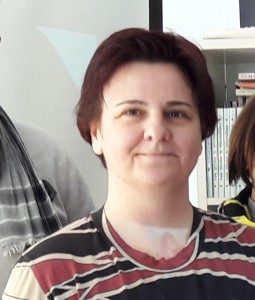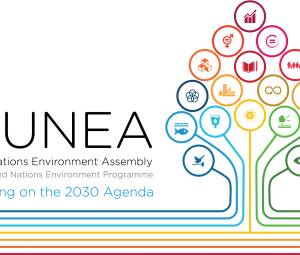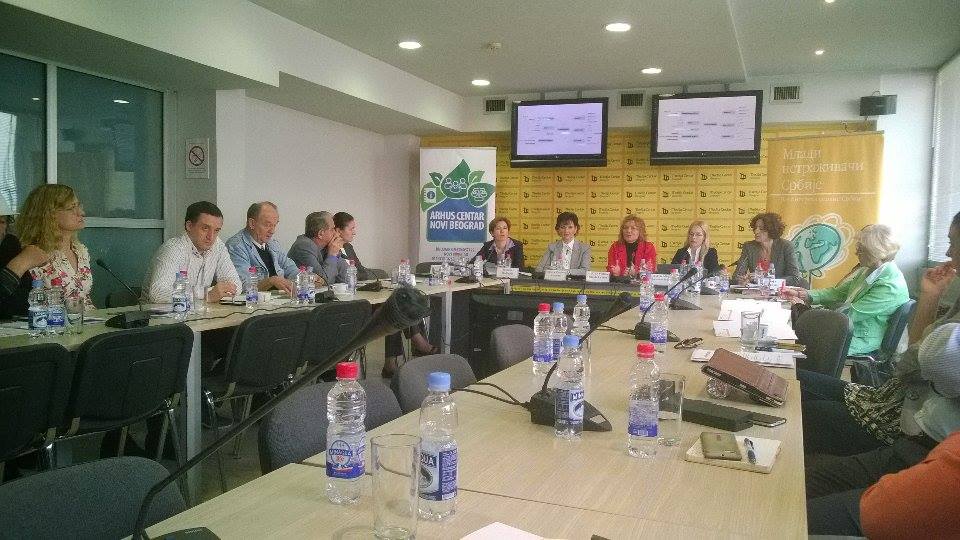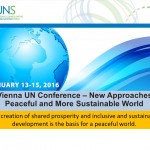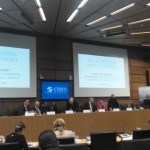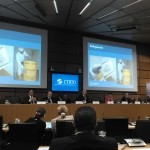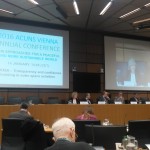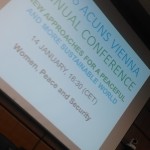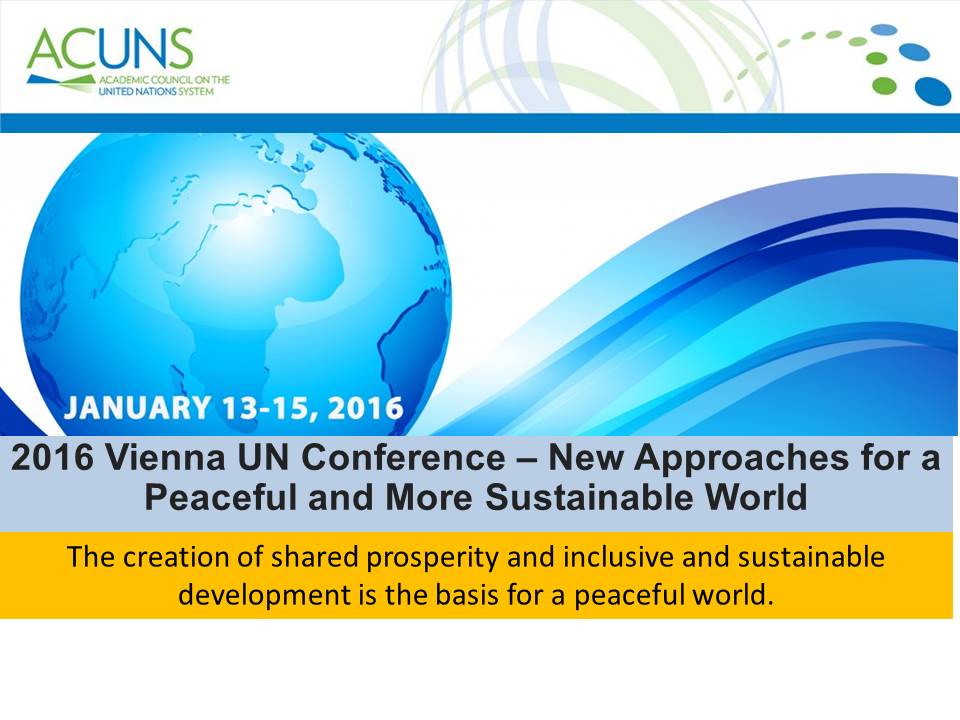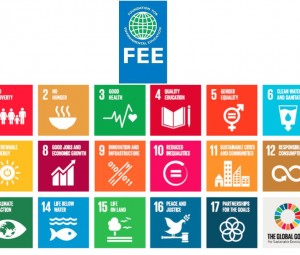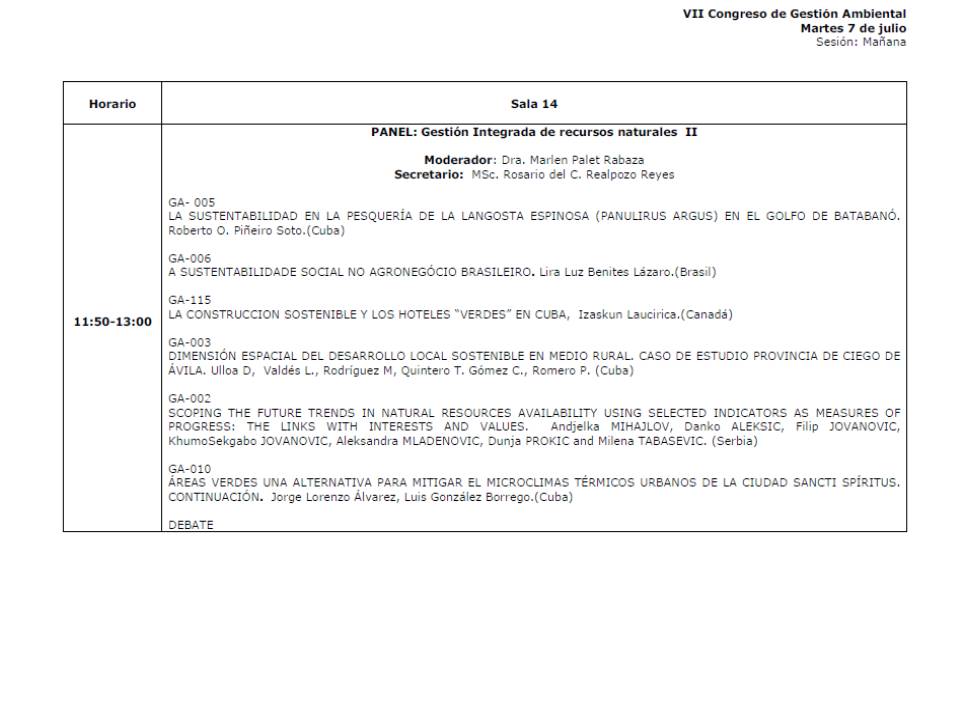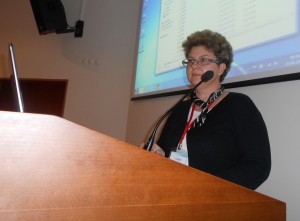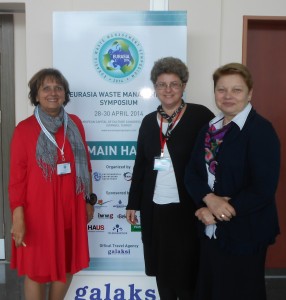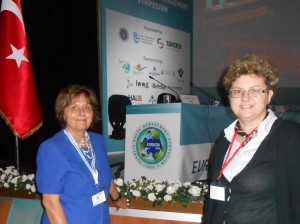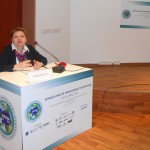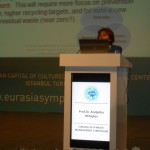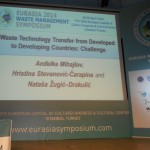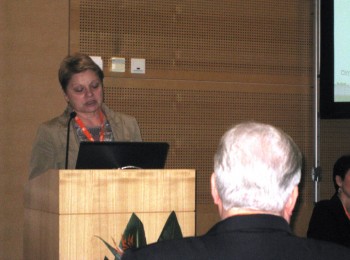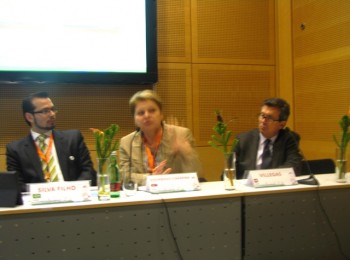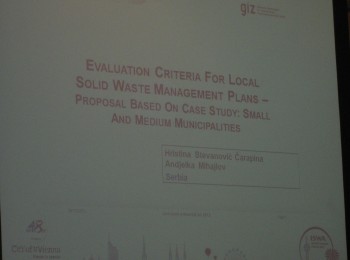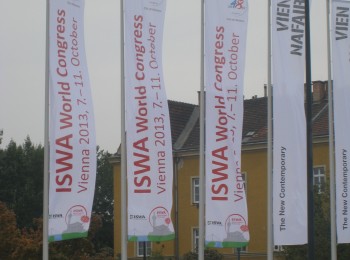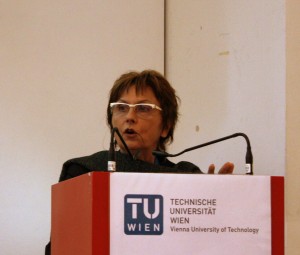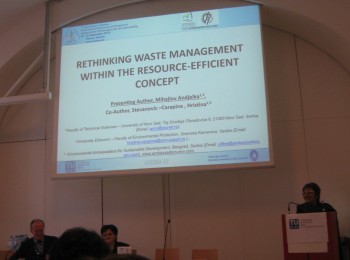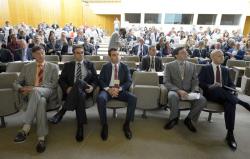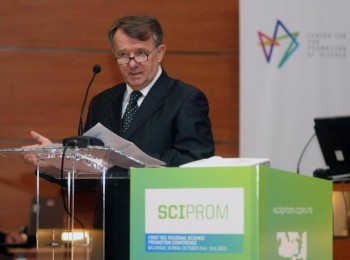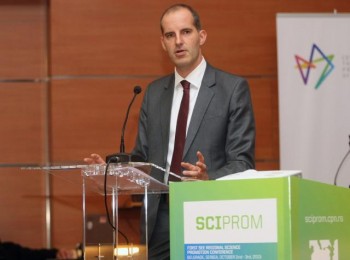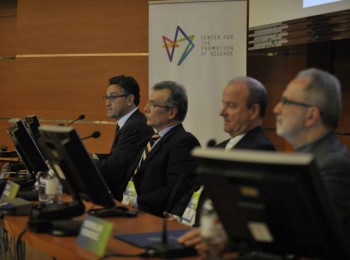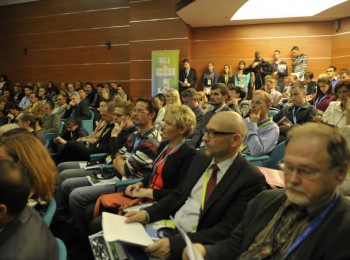Horizon Europe – Cluster workshop – Evidence-based policies for the future of educational technology
Cluster workshop – Evidence-based policies for the future of educational technology was held on September 29, 2025, at the premises of EC CENTRE DE CONFÉRENCES ALBERT BORSCHETTE in Brussels. One-day policy conference hosted by the Horizon Europe projects in the “Integrating New Technologies into Education and Training” cluster — Exten.(D.T.)2 (https://extendt2.eu/), augMENTOR (https://augmentor-project.eu/), e-DIPLOMA (https://e-diplomaproject.eu/), EMPOWER (https://project-empower.eu/) and i-MASTER (https://imaster-project.eu/).
This was an opportunity to meet with other projects and to discuss ongoing activities and achievements. The event featured a dynamic mix of keynote speeches, panel discussions, breakout sessions, and networking opportunities. Policy briefs were shared with attendees, enabling policy stakeholders to engage in critical discussions on shaping future policies informed by the findings from the five Horizon Europe-funded sister projects.
These workshops provided an opportunity for participants to review and engage with stakeholders across Europe, examining feedback, key themes, and what could work at the EU level. Through interactive discussions, attendees contributed to building an EU consensus on emerging technologies in education and training. Interactive discussions on specific topics encouraged collaboration among stakeholders to explore the practical applications of research findings.
One of the workshops was AI in Education and Training – Policy Across the European Union, Ensuring Outreach Narrative is Fit for Purpose and Accessible, coordinated by the augMENTOR project, with participation of partners and pilot representatives. In this workshop, the facilitators presented insights gathered from policy workshops held across Europe, highlighting the experiences and concerns of educators and trainers regarding AI in education. The workshop reflected how practitioners feel AI outreach and policy frameworks should be fit for purpose: human-centric by design, grounded in real-world needs, and accessible to those expected to implement them. Emphasis was on involving education and training providers, particularly those working in non-academic, vocational, and security-focused contexts, including the European Security and Defense College (ESDC). This was an opportunity for wider stakeholders to contribute to the wider dialogue.
Environmental Ambassadors for Sustainable Development, with a pilot representative, Mrs. Zorica Milosavljevic, a teacher from the primary Eco-school “Dimitrije Tucovic” from Cajetina, Serbia, who participated in the augMENTOR project as course developer and implementer, participated in the discussion and presented their own impression concerning the augMENTOR system developed under the project over the last two years.
At the final session, participants provided reflections and discussed how the policy recommendations can become educational policy across Europe, and what resources are needed to support the implementation of the policy.
10 years after the Paris Climate Agreement – TSS2005, Thessaloniki October 2025
Thessaloniki Sustainability Summit 2025 – discussing about the global developments, 10 years after the Paris Climate Agreement: Where we are today, what have we accomplished during these 10 years, why we are at this point, what were the obstacles that prevented us from achieving the goals of the agreement, but most importantly, where do we go from here and how we can take advantage of the opportunities and face the challenges, to ensure a better future for humanity and our planet.
Second day of the summit featured four Panel discussions, and among them: The Balkans: Current Status and Future Pathways, and two keynote speeches:
· prof. Mat Santamouris, professor of High-Performance Architecture at the University of New South Wales, Australia
· prof. Jeffrey Sachs, professor at Columbia University, USA, President of the UN Sustainable Development Solutions Network
By invitation, as the Panelist, Prof dr Andjelka Mihajlov, EASD Hon. President, addressed event and contributed with views. One of the most valuable aspects of this summit is the opportunity to engage in meaningful discussions with fellow participants. These conversations have expanded understanding of the diverse viewpoints, experiences, and strategies being implemented across the Balkans and globally.
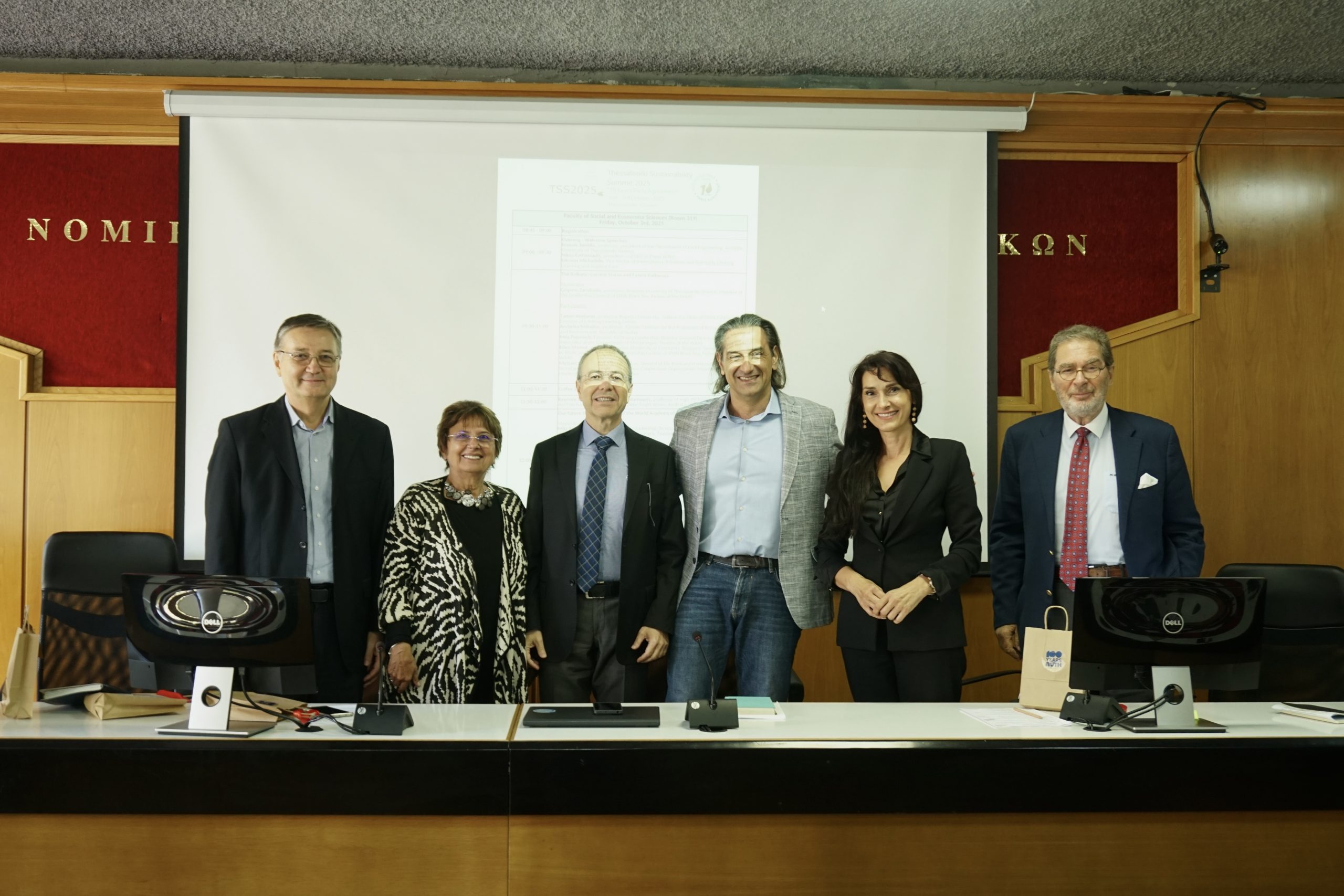 This year’s Thessaloniki Sustainability Summit was organized by the UN SDSN Black Sea (EASD is Member of Network), in collaboration with the World Academy of Art and Science, under the auspices of the Department of Civil Engineering of the Aristotle University of Thessaloniki and the support of the Research Committee of AUTh and EYATh S.A.
This year’s Thessaloniki Sustainability Summit was organized by the UN SDSN Black Sea (EASD is Member of Network), in collaboration with the World Academy of Art and Science, under the auspices of the Department of Civil Engineering of the Aristotle University of Thessaloniki and the support of the Research Committee of AUTh and EYATh S.A.
#TSS2025 #AUTH #SDSNBlackSea #ParisAgreement #Sustainability #EnvironmentalSustainibility #ClimateAction #EASD
2nd International EcoCampus Conference (ECIC) Held in Kuala Lumpur, Malaysia 2025
Immediately following the Annual National Operators Meeting (#NOM2025), the 2nd International EcoCampus Conference (ECIC) took place in Kuala Lumpur, Malaysia, from 18–20 September 2025. The event was held under the theme “Transforming Higher Education for Climate Action: A Whole-System Approach” and featured the launch of the “Masterplan for Empowering Malaysia’s Green Future 2025–2030.” Supported by the Green Growth Asia Foundation (GGAF), IMT-GT UNINET, and the Foundation for Environmental Education (FEE), the conference gathered 150 participants from around 40 countries—including higher education leaders, researchers, students, and partners—at the International Youth Center.
At the official opening, participants were honored by the attendance and keynote address of Her Royal Highness Princess Tengku Puteri Raja Ilisha Ameera, representing the Crown Prince of Pahang, who called on Malaysia’s Ministry of Education to make the EcoCampus programme a national initiative.
The opening session featured inspiring speakers from Malaysia and across the globe:
🎙️Welcome Address: YBhg. Datuk Ir. Ts. Dr. Mahadi Mohamad, Chief Executive Officer, Green Growth Asia Foundation (GGAF)
🎙️Opening Address: Dr. Nikos Kassimatis Petrou, President, Foundation for Environmental Education, Denmark
🎙️Special Address: YB Datuk Ts. Mustapha Sakmud, Deputy Minister of Higher Education, Malaysia
🎙️Special Address: Katerina Ananiadou, Coordinator, Greening Education Partnership (GEP), UNESCO Paris
It was announced that the EcoCampus programme will now operate as a standalone initiative, independent of the Eco-Schools programme. While Eco-Schools has been instrumental in fostering environmental awareness and action among children, the challenges in higher education are distinct. Young people must be prepared to enter professional fields where sustainability is not yet a standard requirement. Employers, institutions, and systems still lag in recognizing the urgent need to integrate sustainability skills and leadership across all sectors.
This is why EcoCampus is essential—it goes beyond the idea of “green campuses” by:
•Building recognition of sustainability competences in higher education and the labor market across all professions
•Equipping young people with the tools to create and respond to the growing demand for ESD (Education for Sustainable Development) professionals
•Bridging the gap between academic preparation and societal transformation
The conference focused on a holistic, system-wide approach to sustainability, highlighting the urgency of embedding climate change and sustainability into educational frameworks. Discussions pointed out that many national curricula still do not include climate change, with nearly half of them omitting the topic altogether. This gap poses a serious challenge for future generations in addressing environmental issues.
Through six thematic sections, the conference showcased diverse approaches to embedding sustainability in education:
•Whole-system approaches – interdisciplinarity, teacher training, and universities’ impact on policy-making.
•Cross-sector partnerships – collaboration among universities, schools, NGOs, and industry.
•Green vocational education – the role of TVET and career guidance in preparing a green workforce.
•Sustainability across education levels – from school gardens to ethnographic studies linking communities and universities.
•Sustainable campus initiatives – examples from Portugal, Bangladesh, Ireland, India, Qatar, and Africa where campuses serve as “living laboratories.”
•Student leadership – student committees and research projects in renewable energy, biodiversity, and the circular economy.
Multidisciplinary sessions allowed participants to explore practical pathways for integrating sustainability in education:
🎤Tan Sri Dzul Razak (University of Malaysia, Sarawak) stressed the urgent need for systemic change in education to address climate challenges, critiquing traditional competitive, factory-like models, and advocating for a “Communiversity” model that nurtures empathy, compassion, and interconnectedness.
🎤Professor Paul Pace reminded participants that sustainability is not a one-size-fits-all model but must be adapted to local contexts, with interdisciplinarity as a key element in creating solutions that bridge sectors.
🎤Katrin Kohl (UNESCO Co-Chair, York University) and Dr. Subarna Sivapalan FRSA, SFHEA (University of Nottingham Malaysia) presented findings from UNESCO’s “Transforming Futures” project in Malaysia, exploring how sustainability can be integrated into all aspects of higher education—from curriculum and governance to campus operations and community engagement.
🎤Professor Charles Hopkins (FEE/UNESCO Chair) led a co-creative session “FEE University”, where participants identified 12 priority themes for systemic transformation in higher education, including sustainable leadership, inclusivity, student advocacy, and alumni engagement.
🎤Katerina Ananiadou (Greening Education Partnership, UNESCO) emphasized the central role of higher education in GEP’s vision.
🎤Pramod Kumar Sharma and Lee Wray-Davies (Foundation for Environmental Education) conducted a hands-on workshop on integrating ecosystem restoration into practice, turning frameworks into flagship projects.
🎤Prof. Dato’ Dr. Nor Aieni Haji Mokhtar closed the conference by reflecting on her 40 years of academic and leadership experience, highlighting the transformative role of higher education in building resilience and sustainability.
The conference reaffirmed that the future of education for sustainability lies in connecting levels, disciplines, and sectors—illuminating multiple dimensions, fostering collaboration, and building partnerships that define the whole-system approach, while clarifying the pivotal role of higher education in driving climate-resilient transformation.
ECIC 2025 clearly demonstrated that higher education is both a driver of systemic change and a bridge linking educational levels and sectors. The main takeaways included:
🎓Jointly defining the dimensions of a whole-system approach: governance, pedagogy, student leadership, teacher training, vocational pathways, industry partnerships, internships, policy engagement, campus operations, applied research, values, and contextual adaptation.
🎓Renewed emphasis on teacher training and continuous professional development to mainstream ESD across all levels of education.
🎓Strong recognition of student leadership as a central driver of climate solutions.
🎓Evidence of how partnerships and local innovations can scale into global impact.
These conclusions align directly with UNESCO’s Greening Education Partnership (GEP), which calls for systemic change—from schools, teacher training, and curricula to institutional transformation.
🤝The conference closed with a call to embrace a comprehensive institutional approach, integrating sustainability into curriculum, governance, operations, and community engagement. Participants committed to advancing sustainability within their own contexts and forging alliances to drive positive change.
Conversation on the future of education in Europe! EASD will join the event in Brussels!
On 29 September 2025, a one-day policy conference will take place at the Albert Borschette Centre (Room 1.D, Rue Froissart 36, Etterbeek). The event is hosted by five Horizon Europe projects, including augMENTOR from the Integrating New Technologies into Education and Training cluster: ExtenD.T.2, e-DIPLOMA Project, i-MASTER Horizon Europe, Empower EU project.
From augMENTOR, Unisystems , Austrian Centre for Peace (ACP), EASD – Environmental Ambassadors for Sustainable Development and IASIS will join the event.
This unique conference is a must for Brussels-based institutions, policymakers, researchers, and industry leaders, offering the chance to:
- Explore cutting-edge European research
- Take part in interactive discussions
- Co-create evidence-based policy recommendations for the digital transformation of education and training
The recommendations will be shared with the European Commission in the final proceedings.
Agenda and registration is available: https://nettskjema.no/a/clusterpolicyworkshop
#HorizonEurope #EdTech #DigitalEducation #Policy #XR #AI #Brussels
Training and workshops for water safety and sanitation within the project “Risk Management in the Water, Sanitation and Microplastics Sector in the Balkans Region”
Training and workshops for water safety and sanitation were held for teachers and students in Čajetina, on September 26 and 25, 2024, in cooperation with the elementary school “Dimitrije Tucović” from Čajetina and representatives of the organization “Women Engaged for a Common Future” (WECF) from Germany. The training aimed to increase the participants’ knowledge of the Water Safety and Sanitation Plan (WSSP), menstrual health/hygiene and microplastics about their role and how to implement activities in rural and semi-urban communities in the Balkan region. The material used during the training and workshop is the WSSP Compendium, as well as materials for microplastic research available in English, Albanian, Serbian, Macedonian and Bosnian
The lecturers were Nataša Dokovska, Journalists for Human Rights (JHR), for menstrual hygiene and “Hour on Water”; Eli-Maria Lud – for microplastics; Bistra Mihajlova, Maria Papateodorou, as WECF WSSP representatives; and Aleksandra Mladenović, Environmental Ambassadors for Sustainable Development (EASD).
Agenda and materials are posted in Serbian language.
Participants were divided into groups:
- Positive and negative aspects of the local situation of water supply and sanitation – especially in schools and other public institutions,
- Menstrual hygiene – recent activities,
- Microplastics
Participants had the opportunity to see the level of turbidity on samples of drinking water (100-200 ml) from their village, from a well or spring, tap water and check the presence of nitrates by nitrate tests.
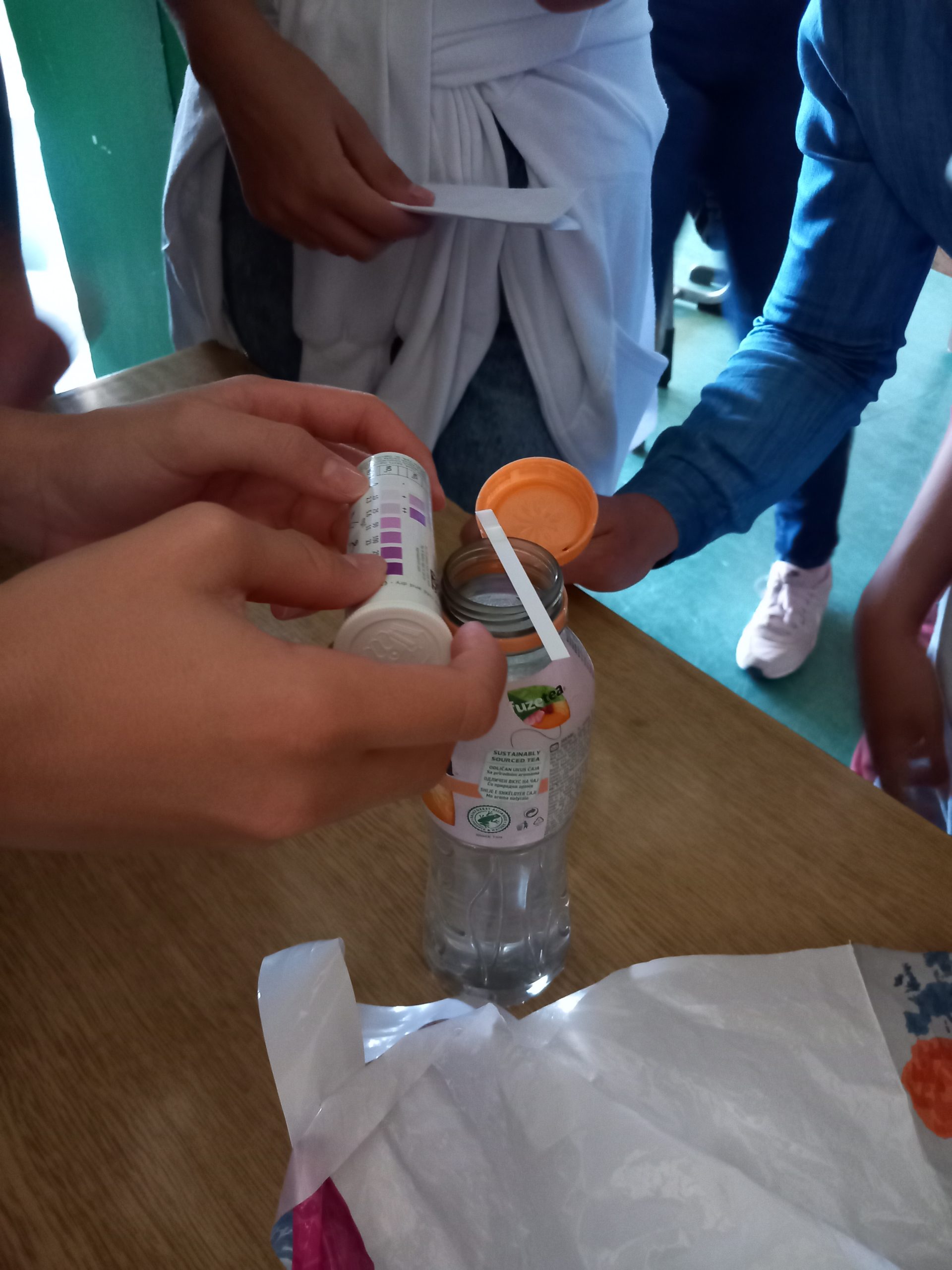
Blue Flag NOM 2024 October 15-18, Tobago
The Blue Flag NOM was held in Scarborough, Tobago, from 15 to 18 October 2024. That was a great opportunity for BF operators around the world to meet and exchange the latest progress in implementing the BF program in their own countries. In total 45 participants, national operators of the program, from around 40 countries around the world, FEE Global representatives, and a hosting organization from Trinidad & Tobago number more than 60 participants, who had the opportunity to hear about updates from FEE, done by Lesley Jones, President of FEE; Past Year´s Highlights From Blue Flag International; the Blue Flag Action Plan 2024-2025 and among other, the big picture: Blue Flag upcoming challenges towards certification requirements: Green Claims, Ecolabels, and Substantiation. Discussion was open for further development on the detailed picture: ECGT Directive, Accreditation, and Process Review, what does it mean for the Blue Flag program? The discussion was also launched on draft new beach criteria and draft new sail training vessels criteria.
Communication and advocacy workshop in relation to the Blue Flag certification requirements was done, as well as a presentation of “Semaphore”, a historical partner to the BF program and another partner “Pick A Pier”.
Presentations were done by colleagues from Latvia: EU Beach SOS Project, Colombia: Alignment With National Public Beach Programme and India: Blue Flag as an enabling programme for Local Communities
The presentation was prepared by the Secondary Schools Tourism Club.
A stakeholder Knowledge Sharing Session was facilitated where the CSO-Government-Private Sector Policy Knowledge Fair presented how to amplify and improve global and national policy engagement regarding environmental sustainability and promote cooperative decision-making
CLIMATE CHANGE – Session one
BIODIVERSITY – Session two
POLLUTION- Session three
Blue Flag SIDS Strategic Meeting at the National Level was organized. The THA, Private Sector and Civil Society Organization (CSO) counterparts have reached a consensus on advancing the Blue Flag program in Tobago that aligns seamlessly with THA’s existing policies, contributes towards achieving Sustainable Development Goals (SDG), fortifies the blue economy and is in full accord with FEE’s GAIA 20:30 Strategy.
Desired Output: Preliminary Blue Flag implementation framework recommendations for future collaboration that synergize with THA’s policy direction and uphold solidarity with SDG targets, contributing to the region’s blue economy and embodying principles consistent with FEE’s GAIA 20:30 Strategy.
FEE Regional Development in the Caribbean/Americas Region, Panel Discussion, facilitated by FEE.
The FEE’t for Purpose process, initiated in October 2023, aims to enhance FEE’s effectiveness and align it with strategic goals. Six working groups were formed to address topics related to FEE membership and financial systems. In early 2024, multiple sessions focused on membership structure, programme quality standards, and financial systems. By mid-2024, further meetings refined these discussions, with agreed outcomes such as voting rights. Future focus areas include developing criteria for full members running one programme, managing programmes across countries, consortium membership, affiliate membership, standardizing membership agreements, and streamlining the membership application process. These efforts aim to ensure clarity and consistency in FEE’s membership structures and standards.
Additionally, and as part of this process, FEE is researching ways to expand its impact through its programmes in Caribbean countries without a resident NGO capable of running the programme. It would like to do so by leveraging the combined expertise and established networks of FEE. Building on the knowledge and recommendations of regional actors and partners, such as the Caribbean Tourism Organisation (CTO) and Caribbean Alliance for Sustainable Tourism (CAST), the Association of Caribbean States (ACS), the Caribbean Energy Chamber and the University of the West Indies (UWI) – it would ensure a future robust framework and necessary buy-in for successful implementation. Some countries of interest are Dominica, Grenada, Saint Lucia, Saint Vincent and the Grenadines, and Suriname.
Desired Outputs: Recommendations from the partners for a preliminary FEE Greater Caribbean implementation framework for future collaboration that synergizes with its Caribbean counterparts and aligns with FEE’s GAIA 20:30 Strategy.
augMentor
augMENTOR (full title: Augmented Intelligence for Pedagogically Sustained Training and Education) project has received funding from the European Union’s HORIZON-RIA HORIZON Research and Innovation Actions (HORIZON-CL2-2021-TRANSFORMATIONS-01-05 , Integration of emerging new technologies into education and training) under grant agreement (No. 101061509).
Overall, the augMentor propose a new Pedagogical Framework for designing and planning technology-augmented educational scenarios. The main specification of this type of educational activity will be the embedment of Artificial Intelligence and Learning Analytics techniques. In addition, they will focus on overall classroom activity design alongside putting great emphasis on the orchestration from the teacher’s point of view and, at the same time, using emergent technologies as powerful cognitive tools for students and decision making and adaptation tools for teachers. In addition, it will aim to develop higher-order cognitive competencies/thinking skills (design and critical thinking, creativity, decision making, modelling, computational thinking, etc.).
Part of this research (pilot studies) will involve minors, and in particular school children of 8 to 18 years old. The studies will take place in schools.
Duration: 36 months starting at 01 Jan 2023.
augMENTOR is led by UNISYSTEMS LUXEMBOURG SARL, (Luxembourg) and the augMENTOR consortium is composed by the IASIS NGO (Greece), CSI CENTER FOR SOCIAL INNOVATION LTD (Cyprus), Universität Duisburg-Essen (Germany), EPISTIMI EPIKOINONIA – SCIENCE COMMUNICATION (Greece), KONNEKT ABLE TECHNOLOGIES LIMITED (Ireland), PANEPISTIMIO PATRON – UNIVERSITY OF PATRAS (Greece), TSAKALIDIS-G.DOMALIS OE – NOVELCORE OE (Greece), AMBASADORI ODRZIVOG RAZVOJA I ZIVOTNE SREDINE UDRUZENJE – EASD (Serbia), Université Côte d’Azur (France), KAUNO TECHNOLOGIJOS UNIVERSITETAS (Lithuania), Austrian Study Centre for Peace and Conflict Resolution (OSTERREICHISCHES STUDIENZENTRUM FÜR FRIEDEN UND KONFLIKTLÖSUNG-ÖSFK) (Austria). Associated Partner is Mission-X LTD (United Kingdom).
The “Green Chair” strengthens the voice of young people and women in environmental protection
The Green Chair Network has received support from the ECO-SYSTEM program for 2024. This program aims to improve environmental protection in Serbia and helps with the implementation of the negotiating platform for Chapter 27. The Environmental Ambassadors of Sustainable Development is a member organization of the “Green Chair” coordination team and a partner in the project.
In 2024, it is planned to carry out activities to achieve…
- Strengthening the voice of young people: Through research and public debate, the “Green Chair” Network will advocate for greater participation of young people in decision-making on environmental protection. The research will focus on the opinions and needs of young people, and the results will be used to advocate for their interests.
- Improving gender equality: The network will focus on empowering women and their more active involvement in all aspects of environmental protection, as well as fertilizing the work of network members. We want women to be leaders in environmental initiatives and the fight against climate change so that their voices are equally important in decision-making processes.
- Sustainability of the Green Bulletin: By digitizing and expanding distribution, the Green Chair will ensure that the voice of the network reaches even more people. The goal is to make information accessible to everyone and to increase awareness and community engagement.
The ECO-SYSTEM Empowerment Programme is the main component of the project ECO-SYSTEM: Support to Environmental Reforms implemented by the Young Researchers of Serbia with the support of the Swedish International Development Cooperation Agency (SIDA). The project started in January 2020 and will run for four years.
ECO-SYSTEM 2024: The “Green Chair” strengthens the voice of young people and women in environmental protection
The Green Chair Network has once again received support from the ECO-SYSTEM program for 2024. This program aims to improve environmental protection in Serbia and helps with the implementation of the negotiating platform for Chapter 27. The Environmental Ambassadors of Sustainable Development is a member organization of the “Green Chair” coordination team and a partner in the project.
The “Green Chair” Network of Organizations brings together 68 civil society organizations dedicated to environmental protection. The network is a key actor in the actions for a sustainable future of Serbia.
In 2023, the members of the network achieved significant results through their work and engagement:
- Education: More than 300 activists have been educated about environmental protection through various workshops and programs.
- Action: Initiatives have been launched to mitigate the effects of climate change in 5 local communities, by raising awareness of the importance of solving this urgent problem.
- Information: The Green Bulletin, the network’s bi-weekly newsletter, has reached a large audience, spreading information on environmental protection throughout Serbia.
In 2024, it is planned to carry out activities to achieve…
- Strengthening the voice of young people: Through research and public debate, the “Green Chair” Network will advocate for greater participation of young people in decision-making on environmental protection. The research will focus on the opinions and needs of young people, and the results will be used to advocate for their interests.
- Improving gender equality: The network will focus on empowering women and their more active involvement in all aspects of environmental protection, as well as fertilizing the work of network members. We want women to be leaders in environmental initiatives and the fight against climate change so that their voices are equally important in decision-making processes.
- Sustainability of the Green Bulletin: By digitizing and expanding distribution, the Green Chair will ensure that the voice of the network reaches even more people. The goal is to make information accessible to everyone and to increase awareness and community engagement.
The ECO-SYSTEM Empowerment Programme is the main component of the project ECO-SYSTEM: Support to Environmental Reforms implemented by the Young Researchers of Serbia with the support of the Swedish International Development Cooperation Agency (SIDA). The project started in January 2020 and will run for four years.
Unstoppable conference in Tirana – Women overcoming barriers to success
- Environmental Ambassadors for Sustainable Development participated in the Unstoppable conference dedicated to Women and Leadership
The multi-structured and empowering conference dedicated to Women and Leadership is organized in Tirana, from February 20th to 23rd, 2023. Organizer is the Western Balkan Fund (WBF), with the support of the Ministry of Foreign Affairs of Japan and the Visegrad Fund. Every February and March, the WBF with the support of the Ministry of Foreign Affairs of Japan hosts an advocacy event by bringing in national, regional & international experts and creating a space of inspiration, connection, and rejuvenation. The purpose of #Unstoppable conference is to foster equal access to leadership in business, government, and non-profit organizations within the Western Balkans, Visegrad regions, and beyond. This event also promotes support and expands initiatives that promote equal access for women and men in development processes.
The conference includes a multitude of topics across the human rights spectrum, enhancing knowledge and strengthening the network of professionals coming from WB6 and V4 regions also unites diverse stakeholders, researchers, stories, and case studies from all over the region in parallel sessions while offering many networking opportunities.
The goal of the Unstoppable is to foster equal access to leadership in business, government, and non-profit organizations within the Western Balkan and V4 regions and beyond. WBF in close cooperation with V4 partners plans to gather around 120 participant’s men and women around both regions and beyond in Tirana since we believe that gender equality should be addressed by both sides, men and women.
augMENTOR Kick-off Meeting, Athens, January 2023
augMENTOR project Kick-off Meeting is on January 26th and 27th, 2023, in Athens, Greece. All project partners attended.
Intergovernmental Negotiating Committee to develop an international legally binding instrument on plastic pollution, is about to start – EASD is participating
Intergovernmental Negotiating Committee to develop an international legally binding instrument on plastic pollution, is about to start ( 28 November – 2 December 2022) in Punta del Este, Uruguay.
EASD is participating virtually, starting on November 26 with participation at Multi-stakeholder Forum of INC-1 . The Forum aims to facilitate the exchange of information and gather perspectives from different stakeholders across the plastics life cycle and is open to all stakeholders, including governments, the private sector working on different stages of the plastics life cycle, scientists and researchers, the finance sector, civil society groups, including the informal sector, indigenous people, and youth.
EASD is associated with IPEN ; IPEN has been working on toxics in the life cycle of plastics for many years, including initial work on dioxins in the Stockholm Convention, and then scaling up with more explicit work related to POPs in plastics in the Stockholm Convention, as well as Chemicals in Products and Hazardous Substances in the Life Cycle of Electronic Products in the SAICM process. IPEN’s toxic plastics work has escalated and evolved especially over the last 5 years.
EASD more focused to activities against plastic pollution
Environmental Ambassadors for Sustainable Development (EASD) started in 2020 with more focused engagement and activities in the thematic issue of plastic pollution. We found important UNEP initiative to beat plastic pollution , as well as designing out plastic pollution .
EASD started with analysis, participation in global studies and relevant national/local surveys and initiatives related plastic in products and in waste.
EASD activities include activities in : Science and Research (for better Governance and regulation) – A circular economy for plastic, Education and learning against plastic pollution, Promotion of sustainable travel against plastic pollution, Promotion of clean beach against plastic pollution, as well as Processes towards global plastic treaty and EU accession, participation and monitoring.
Further, EASD is following development of an international legally binding agreement . See resolution at the resumed fifth session of the 2022 United Nations Environment Assembly (UNEA-5.2) in Nairobi to end plastic pollution and forge an international legally binding agreement by 2024. EASD special attention is to harmonize global process against plastic pollution with EU accession process at national and regional level. To note that Serbia is candidate country for EU membership and Cluster 4 was opened for negotiation in December 2021. See also EASD work in theme EU accession and enlargement. In this period, EC priority is European Green Deal with action on plastics to tackle plastic pollution and marine litter, and to accelerate the transition to a circular plastics economy . For Western Balkan, Action Plan for the Implementation of the Sofia Declaration on the Green Agenda for the Western Balkans 2021-2030 (GAWB) is approved.
“Citizen science” – definition in 2021 UNECE Document
Environmental Ambassadors for Sustainable Development (Environmental Ambassadors, EASD) is a non-for-profit professional association focusing, among other, work on research and science (professional and participant science/citizen science) promotion. EASD is the member of European Citizen Science Association.
With interest we are following the seventh session of the Meeting of the Parties to the Convention on Access to Information, Public Participation in Decision-making and Access to Justice in Environmental Matters (Aarhus Convention) taking place in Palais des Nations, Geneva from 18 to 21 October 2021. A number of substantive decisions are expected to be adopted at the session that will guide the activities of the Convention in the next intersessional period.
Among documents is document ECE/MP.PP/2021/20/Add.1. There, a number of definitions took our attention; some of them are: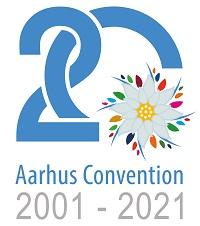
- “Citizen science”, means a form of open collaboration in which members of the public participate voluntarily in the scientific process, engineering research or environmental monitoring in various ways;
- “Citizen science observatories”, refers to community-based environmental monitoring and information systems that invite individuals to share observations, typically via mobile telephone or the web;
- “Research data”, means documents in a digital form, other than scientific publications, which are collected or produced in the course of scientific research activities and are used as evidence in the research process, or are commonly accepted in the research community as necessary to validate research findings and results;
- “Citizen science data”, means data collected by members of the public, often in collaboration with or under the direction of professional scientists, nongovernmental organizations and scientific institutions;
- “Citizen-generated data”, which means data produced through citizen sensing, citizen science and other forms of civic monitoring that share the common denominator that the data collection process is primarily carried out by volunteer individuals actively joining the initiative;
ECO-SYSTEM program: Stable and strong” Green Chair “for greater influence on decision maker
EASD is a Project Partner. A contract was signed at the MIS premises on Thursday, July 29, and the realization of this project begins on August 1 and lasts until December 31, 2021.
The Working group of the “Green Chairs” mechanism has decided that the Center of Modern Skills (CMV) will be the leading partner in the project “Stable and strong” Green Chair “for greater influence on decision makers.” Together with network members and partners of the BFPE Foundation for Responsible Society, EASD – Environmental Ambassadors for Sustainable Development, Environmental Association “Zeleni sad” and Aarhus Center Novi Sad, CMV will implement this project by the end of this year as part of the ECO-SYSTEM program, implemented by Young Researchers of Serbia (MIS), and supported by Sweden.
Ref link: https://cmv.org.rs/saopstenja-categoriy/eko-sistem-program/ , Phase 1: Aug 2021-Dec 2021
Training for trainers on water safety and sanitation
Within the project “ Water and Sanitation Safety Planning in the Balkan Region: Albania, North Macedonia, Romania and Serbia (WatSanPlan), FKZ 16EXI4004A, Förderprogramm „Exportinitiative grüner und nachhaltiger (Umwelt-) Infrastruktur“ BMU, the first training for teachers of the Eco-school was held in Aleksandrovac. During the two-day training, teachers from primary schools, secondary school and educators from pre-school were introduced to the possibilities provided by the development of a plan for water safety and sanitation, with special reference to the situation in rural communities. In addition to the theoretical work presented by Bistra Mihajlova, a project coordinator on behalf of project leading organization “Women engage for a common future” (WECF) from Germany, participants had the opportunity to exchange their own experiences related to water safety and sanitation in rural areas, where there are many field-departments of Aleksandrovac schools. The topic of menstrual hygiene and how girls and young women are educated in the current conditions was also raised, with general comments that this topic is still taboo in our area and that little attention is generally paid to this topic, through regular curricular and extracurricular activities.
Representatives of one of the partners in the project from North Macedonia, “Journalists for Human Rights”, Nataša Dokovska and Aleksandra, were guest lecturers, who shared their experiences in many years of struggle related to water safety, sanitation, menstrual hygiene and menstrual health. According to research that has been conducted in North Macedonia, Nataša Dokovska pointed out that almost 30% of women in this country cannot afford menstrual products. In North Macedonia, as it is situation in Serbia, they face insufficient education on this topic and an unwillingness to accept it as something that is biologically normal and impossible to pretend not to exist. Among other things, their association advocates that menstrual hygiene be spoken in a gender-neutral language, instead of “products for female hygiene “to be named as “menstrual products”. It is a problem in general that almost 80% of girls know about the menstrual cycle in communication with friends or older sisters in the family, and less often from their mothers or through the education system. The biggest problem in schools is practically that there are no basic sanitary conditions to help girls and women during the menstrual period, so, according to research „Journalist for Human Rights“ realized, in rural areas girls are forced to stay at home during menstruation and to miss classes.
Discussion among teachers from the Eco-schools in Aleksandrovac, there are no such bad experiences in this municipality. However, the positive sign is that through the biology curriculum for the 6th grade, the topic of the menstrual cycle is dealt with, in which boys and girls participate equally.
So far, no more detailed research on menstrual health and menstrual hygiene has been done in Serbia, except sporadic articles in the media and initiatives from the University that can be found. Under this WatSanPlan project, the initial research related to menstrual hygiene and menstrual health will be realized through the Eco-schools program during the school year 2021/2022. The results will show a general observation of water safety, sanitation and menstrual hygiene, which will enable further research and launch advocacy campaigns towards decision makers, primarily related to the availability of menstrual products for free in selected Eco-schools.
The next activity on the project will be training for Eco-schools students on water safety and sanitation in rural communities.
The project “Water and Sanitation Safety Planning in the Balkan Region: Albania, North Macedonia, Romania and Serbia (WatSanPlan)” is supported by the German Federal Ministry for the Environment, Nature Conservation, Building and Nuclear Safety and the European Union. The project is managed by the international organization “Women Engage for a Common Future”. In addition to the Environmental Ambassadors for Sustainable Development from Serbia, the project also includes civil society organizations from North Macedonia, Albania and Romania.
Environmental Communication: Media Archive Reports as a Participant Science Tool
EASD presented on August 3, 2021, research paper Environmental Communication: Media Archive Reports as a Participant Science Tool (Authors are A.Mihajlov, A.Mladenovic, F.Jovanovic) at 6th International Conference on Communication and Management (ICCM2021), hosted and organized by Communication Institute of Greece.
By sharing experience, this paper justifies environmental communication through the media archive reports as participant science tool, considering that journalists/media are representing citizens (with common interests). In the case of Serbia, illustrative justification that media archive reports could be used as participative tool to supplement official observation and monitoring, is presented, showing that the same trends of citizens/journalist’s attention to environment and environmental performance and progress (in the European Union accession process) in Serbia. In timeline, when sector environment has better performance, it is bigger interest of citizens/journalists/media to environmental issues.
This article benefited from the European Union funded project “ENV.Net Factoring the Environmental Portfolio for WB and Turkey in the EU Policy Agenda” (2017/394-372). The views expressed in this paper do not necessarily reflect the views of the European Commission. Also, authors would like to express gratitude to Media archive Ebart, Belgrade, Serbia for contribution in data collecting. Data used in this paper were gathered through the research on nexus media-environmental issues in Serbia, which was based on initial idea jointly developed by respective journalist Velimir Ćurgus Kazimir (1948-2018), Media Archive Ebart founder and this paper co-author Andjelka Mihajlov, co-founder of Environmental Ambassadors for Sustainable Development.
By this presentation Prof Mihajlov, as paper presenter, also informed and inspired climate actions in contribution to the European Climate Pact , empowering citizens to shape a greener Europe…..participants of this Conference was great ‘communication network” for this. To note that in July 2021 Prof Andjelka Mihajlov, Environmental Ambassador for Sustainable Development, was acknowledged by European Commission DG Clima as European Climate Pact Ambassador , among others for Green skills .
Ref.: Environmental Communication: Media Archive Reports as a Participant Science Tool (Authors: A.Mihajlov, A.Mladenovic, F.Jovanovic) , Abstract Book “Communicating in a ‘Modern’ Word” , 6th International Conference on Communication and Management – ICCM 2021, page 30, Edited by Communication Institute of Greece (COMinG), ISBN: 978-618-81861-9-4 (2021)
Virtually we are in Nairobi: participating at The Global Major Groups and Stakeholders Forum , the fifth meeting of the Open-Ended Meeting of the Committee of Permanent Representatives, Science-Policy Forum and the UN Environment Assembly (UNEA 5.1)
On February 9, 2021, EASD two representatives starts two weeks engagements and participation at: The Global Major Groups and Stakeholders Forum (February 9-11) , the fifth meeting of the Open-Ended Meeting of the Committee of Permanent Representatives (February 15-16), Science-Policy Forum (February 18-20) and the UN Environment Assembly (UNEA 5.1), February 22-23.
We are starting with the consultations considering the following themes: UNEP Mid-Term Strategy, UNEP Program and Stockholm + 50, as well as main messages from Major Groups and Stakeholders to UNEA. To note that Environmental Ambassadors for Sustainable Development is accredited to UNEP participated previously at Regional Consultation Meeting for Europe in preparation for UNEA 5 – RCM for UNEA 5.1, virtual meeting on December 16-17, 2020. Also, EASD was engaged with its preparatory process and exchange views with Major Groups towards UNEA5. This year, Serbian Minister of Environment is Vice President of UNEA.
UNEA 5.1. Messages and selected outcomes:
OUTCOMES OF THE ONLINE SESSION: UNEA-5
Major Groups and Stakeholders Joint Statement to UNEA-5
Statement by the Women’s Major Group
CPR Chair’s Speech on the Report of the OECPR to UNEA-5.1
UN Science-Policy-Business Forum on the Environment ;Event report
…..
Moments from EASD participation at UNEA 4 are available, as well as at Science and Technology Community Meetings and UNEP Network of the Women Ministers and Leaders.
EASD contributed to the preparation of the UNEP “Researchathon”
EASD respond (with “Let’s influence Agenda 2030 for Serbia to have environmental pillar, ongoing since 2019”) to a public call for inputs to solicit good practices related to the promotion and implementation of the environmental rule of law. Through this “researchathon”, UNEP seeks to consult with a wide range of stakeholders in preparation for the UNEP 2021 Global Report on Environmental Rule of Law and to enhance the implementation and understanding of the environmental rule of law by promoting good practices and success stories.
EASD is UNEP accredited organisation.
November 2020.
EASD research presented at EurAsia Waste Management Symposium
EASD research on circular economy (paper Circular Economy goes beyond Waste Management 2020), supported by ENV.net project, on October 27 2020, was presented at EurAsia Waste Management Symposium.
EurAsia Waste Management Symposium provide a comprehensive overview of effective waste management strategies across the Asian and the European regions. Also, the symposium provide the opportunity to discuss and evaluate the current and future regional waste management strategies and recycling projects face to face, to establish business or research relations and to find global partners for future collaboration.
Also, to note that Prof dr Andjelka Mihajlov was chairing Session on Waste Management Legislation.
EASD join research on SDGs
ENV.net
ENV.net project consists of ENV.net 1/2 (2012-2016) and ENV.net 3 (2017-2020) projects. EC supported
ENV.net 1/2: ENV.net – Development of ENV.net in West Balkan and Turkey: giving citizens a voice to influence the environmental process reforms for closer EU integration, EuropeAid/132438/C/
ACT/Multi – 2012/306-642 and 2014/351-610; Partners for project implementation are: Puntosud , EASD , Co-PLAN , EEB – European Environmental Bureau, ATRC and TEMA . The project builds on the experience of an EU-funded project, namely the Environment Forum, implemented in the period 2009-2012, aiming at developing capacities of environmental NGOs to establish a constructive dialogue with national authorities. The present project strategy has been designed to achieve a greater commitment and capacity of a group of CSOs coming from Environment Forum experience and which have agreed on the creation of a new network, the ENV.net, to support the civil activism, give citizens a voice and influence the public reform processes in the approximation to the environment acquis. With the view to further enhance their capacities to work with CSOs and to share experience with other European countries, EEB has accepted to participate and to share its experience. Project objective – Greater commitment and capacity of the ENV.net to give citizens a voice and influence public sector reform processes in the environment sector through analysis, monitoring and advocacy. As one of the outcome National ENV.net networks (to complement Regional ENV.net network) were established; established ENV.net Network in Serbia have 54 organizations (multistakeholders).
ENV.net3: “ENV-net factoring the environmental portfolio for Western Balkans and Turkey in the EU Policy Agenda” – EuropeAid/154870/ACT/Multi ; EASD (Serbia) partners for project implementation are: 4X4X4 Balkan Bridges from North Macedonia, European Environmental Bureau from Belgium, Advocacy Training and Resource Center, from Kosovo*, Green Home, from Montenegro, Lir Evolution, from Bosnia and Herzegovina, TEMA – the Turkish Foundation for Combating Soil Erosion, for Reforestation and Protection of Natural Habitats, from Turkey and Foundation Punto,Sud, from Italy. The project contributes to the improvement of environmental policy-making and implementation in compliance with the EU standards. To this end, the network foresees to contribute to both improved and intensified inter-action among actors (including environmental CSOs, media and policy-makers) and an overall more enabling technical and financial environment where these actors operate. The action sets out to strengthen the profile of ENV.net as the leading network and bridging actor in environmental policy-influencing in the WB and Turkey region (vis-à-vis EU). Further, it foresees introducing and initiating a discussion on the Circular Economy concept in the region, as well as intensifying climate change actions. The action also foresees a number of value-adding, cross-cutting elements such as inter-partner learning/exchange, networking, and thematic organisational support to third parties (i.e. local grass-root organisations, media).
____________________________________
Paper published: Andjelka Mihajlov, Aleksandra Mladenovic & Filip Jovanovic, Contribution to Environmental Communication: comparative analysis of two qualitative methods as the performance to European Union accession, in “Adapt to Survive. The role of social media, sharing and communication to ameliorate this world “, Conference Proceedings Book Edited by Margarita Kefalaki, Communication Institute of Greece (COMinG),Athens, p.57-66 , 2021 ( ISSN: ISBN: 978-618-85622-3-3 ), Available at https://coming.gr/wp-content/uploads/2021/12/1_1_2021_Adapt-to-survive_Book_conf-proceedings_COMinG.pdf
Selected activities:
March 2021:
Information paper on Climate Change and Energy
Information paper on Climate Change and Floods
August 2021: Environmental Communication: Media Archive Reports as a Participant Science Tool
Promotion by media (Da li smo spremni za sve češće poplave?)
December 31, 2020: ENV.net3 project final steps – infographics with documents developed by EASD
____________________________________
Report on monitoring the progress of national environmental legislation (Chapter 27) in 2018, 2019, and half-year 2020, with projections through end-2020 / Izveštaj o monitoringu napredovanja nacionalnog zakonodavstva o životnoj sredini (Poglavlje 27) u 2018., 2019. i prvoj polovini 2020. godine, sa projekcijom do kraja 2020.godine (Extended abstract in English, Full text in Serbian)
Position Paper on COVID 19 and waste management
Circular Economy goes beyond Waste Management presented at EurAsia Waste Management Symposium 2020
Information paper on meaning of Cluster “Green agenda and sustainable connectivity” for Serbia
Reflection paper on air quality data for Serbia
2020 Spotlight Report on Circular Economy in Serbia
EASD publication on circular economy acknowledged by European Circular Economy Stakeholder Platform
Virtual tour on the experience from Italian practices in circular economy
November 2020: Joint civil society statement for Sofia Summit
EASD research presented at EurAsia Waste Management Symposium
October 2020, New Momentum for the Environmental Agenda in the Western Balkans and Turkey?
Establishment of the South East European Platform to Beat Pollution – SEEPP
Recap the moments from EnE19/ENV.net Conference
March 2019: UN Environment : 4th Assembly (and pre- and side-events) , ENV.net related event
November 2018: To report: The first Regional Conference on Circular Economy was success ; The first regional conference on circular economy, Belgrade, November 2018: Agenda
Call for sub-grants (6.novembar 2018: Otvoren poziv za dodelu sub-grantova u okviru ENV.net projekta)
YRE competition: apply before February 1, 2019.; Theme: Energy Efficiency
ENV.net Initiative: to update National Strategy on Sustainable Use of Natural Resources and Goods, by applying Circular Economy concept ; ENV.net Initiative and Knowledge based advocacy: to update National Strategy of Sustainable Use of Natural Resources
Circular economy knowledge based advocacy in Eco-schools network in Serbia
May 2018. Guest lectures made at two Universities in Serbia: “Circular economy is concept and process, and still not full circle” ; Participation at the Green Parliamentary Group meeting
Follow project at : facebook.com/envnetsite/ and www.env-net.org
February 2018 – ENV.net 3 Kick-off Meeting in Tirana
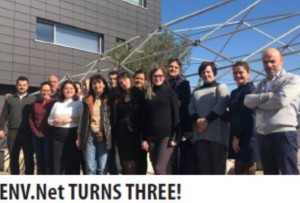 ________________________________________________
________________________________________________
In December 2017. we started with ENV.net 3 : ENV-net factoring the environmental portfolio for Western Balkans and Turkey in the EU Policy Agenda (reference number 2017/394-372)
ENV.net 3 – Serbia team include: Aleksandra Mladenovic –National Coordinator and Manager. In addition, Thematic experts/consultants, on demand, are Prof dr Andjelka Mihajlov and Filip Jovanovic, and Media communication expert, on demend, is Milica Momcilovic.
________________________________________________________________________________
Development of ENV.net in West Balkan and Turkey: giving citizens a voice to influence the environmental process reforms for closer EU integration – EuropeAid/132438/C/ACT/Multi – 2012/306-642 and 2014/351-610 (2012-2016)
The project builds on the experience of an EU-funded project, namely the Environment Forum , implemented in the period 2009-2012, aiming at developing capacities of environmental NGOs to establish a constructive dialogue with national authorities. The present project strategy has been designed to achieve a greater commitment and capacity of a group of CSOs coming from Environment Forum experience and which have agreed on the creation of a new network, the ENV.net, to support the civil activism, give citizens a voice and influence the public reform processes in the approximation to the environment acquis. With the view to further enhance their capacities to work with CSOs and to share experience with other European countries, EEB has accepted to participate and to share its experience. Project objective – Greater commitment and capacity of the ENV.net to give citizens a voice and influence public sector reform processes in the environment sector through analysis, monitoring and advocacy.
Partners for project implementation are: Puntosud , EASD , Co-PLAN , EEB – European Environmental Bureau , ATRC and TEMA . EASD Activity circles represent the scope of our activities.
Project launched site for presentation of activities in all participating countries, as well as facebook page and ENV.net Newsletters.
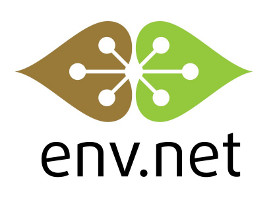 ENV.net 1/2– Serbia team include: Dr Nataša Žugić Drakulić –National Coordinator and Filip Jovanović – project manager , chosen in transparent process by „ Environmental Ambassadors for Sustainable Development“, partner organisation in this project. In addition, National consultant for European integration is Prof dr Andjelka Mihajlov , dr Hristina Stevanović Čarapina is leading expert .
ENV.net 1/2– Serbia team include: Dr Nataša Žugić Drakulić –National Coordinator and Filip Jovanović – project manager , chosen in transparent process by „ Environmental Ambassadors for Sustainable Development“, partner organisation in this project. In addition, National consultant for European integration is Prof dr Andjelka Mihajlov , dr Hristina Stevanović Čarapina is leading expert .
__________________________________
ENV.net Serbia network is functioning : Some of activities could be followed only in Serbian, like calls to participate, and other actions targeted to citizens in Serbia.
**************************************
Highlights: ENV.net publications
- A Guideline of EU Accession Monitoring Tools for CSOs in candidate and potential candidate countries: Chapter 27, (Authors and contributors: Andjelka Mihajlov, Natasa Zugic-Drakulic, Filip Jovanovic, Federico Bastia, Simona Pogliani, Mara Silina, Teida Shehi and Dusko Hristov), Published by Environmental Ambassadors for Sustainable Development with the financial assistance of the EU – ENV.net project document, Belgrade January 2015
- How to influence environmental policy through effective advocacy (Authors: Margherita Tolotto and Mara Silina), ENV.net Advocacy Toolkit, European Environmental Bureau, Brussels, January 2015
- Climate change and challenges of the enlargement (Authors: Anja Kolmuss, Dragana Mileusnic, Zanna Vanrenterghem and Richard Filcak), ENV.net Advocacy Toolkit, European Environmental Bureau, Brussels,September 2016
June 2016: Agenda, WED Messages from Serbia: 12th Regional Conference “Environment to Europe” , REPORT FROM EnE16-ENV.net, BELGRADE, SERBIA
April 2016 – ENV.net Course: CSO Participation in Accession Process , Chapter 27: CSOs participation
March 2016 – New internet portal: Greenweb
January 2016 – Save the date for EnE16-ENV.net Conference ; We participate: Regional Conference: „Sustainability of the FPAs” , Brussels . Water-food-energy-ecosystems nexus assessment in the Sava River Basin – Lessons learned and further steps
October – December 2015 – Ministry support to ENV.net , Event
October – Partnership for Climate Change issue : Serbia’s climate talks – on the way to Paris
June 11 – European Commission Vice-President Mr Maroš Šefčovič had meeting with CSOs in Belgrade. EASD participate!
June 7 – Bicycling-ENV.net promotion in town Gornji Milanovac , Green day in Gornji Milanovac
June 5 – Regional Conference ”Environment to Europe” EnE15 – ENV.net EU Environmental Horizontal Legislation: Methods, Standards and Tools , Invitation , AGENDA , Proc. of papers
May 26, 2015 – Promotional activity
April 21, 2015 – Participation in Public Hearing on Climate Change related challenges in Republic of Serbia
April – THE ELEVENTH REGIONAL CONFERENCE ENVIRONMENT TO EUROPE – ENE15 – ENV.NET acknowledged as the European Sustainable Development Week event
March 22 – Celebrating the World Water Day in Serbia: field visit to Ada Ciganlija
February 2, 2015: Invitation for EnE15-ENV.net Conference launched
January 29, 2015: A Guideline of EU Accession Monitoring Tools for CSOs in candidate and potential candidate countries (ENV.net region): Chapter 27 , document finalized
January , 2015: Promotion of Publication
December 31: Thematic Publication “Environment to Europe”, 2014 ( Tematski zbornik radova “Životna sredina ka Evropi”)
December 12: ENV.net Serbia Seminar: Environmental Education in Schools
November 24-25, ENV.net on the margins of ECF Annual Meeting in Brussels with European Commision
November 4-5 , Regional training on the process of designation of potential Natura 2000 sites
October 30 – Conference “EU accession in the field of environmental protection and the role of local authorities”
October 28 – Ministry of Agriculture and Environmental Protection is co-funded ENV.net project , contract signed
October 22-23, Belgrade: ENV.net training: “EU project design process and Implementation of environmental policy”, Invitation , Agenda , Training
October 2014 – ENV.net brochure published and presented
October 14 – ENV.net related: Participation on Conference “Eco-standards and Education”
October 8 – “Little progress has been made in the areas of environment and climate change”
September 29 – ENV.net Round-table Dialogue for Green Future (ENV.net okrugli sto sa niškim srednjoškolcima “Dijalogom ka zelenijoj budućnosti“) (sub-grant)
September 23-25, Brussels: ENV.net preparatory partnership meeting and Framework Partnership Agreement (FPA) Closing Event for Phase I
September 19-24 , We are following Explanatory Screening for the Chapter 27
August 29 – ENV.net (sub-granting) publication published PUBLICATION : “Species of plants and animals of special conservation concern in EU” , in Serbian
July 27 – Partnership with media – Radio Beograd 2
June 19 – Eco-package initiative as the example environmental education for the future EU citizens
June 5 – CONFERENCE , ENV.net multi-stakeholder Conference on Chapter 27: about 200 participants
June 4 – Meeting with media , Moments from the Conference for Media
May 29, 2014 – ENV.net Serbia Conference organisation on the good track –Agenda for EnE14/ENV.net Conference “Environment to Europe”, June 5, 2014 in SCC – opening at 10:00
May 22-24, 2014 – 4th Partners Meeting in Milan
May 13, 2014 – European Solar Days – participation in promotion of EU environmental values
May 10, 2014 – ENV.net Let us clean up Europe! event: Ada Ciganlija Beograd ; ENV.net Serbia with children, parents and teachers “cleaning up Serbia” , Event in pictures
May 22-24, 2014 – 4th ENV.net Partners Meeting in Milan
May 7-8, 2014 – Some of ENV.net Partners meet in the corridors of ECRAN ECF Meeting
April 25, 2014 – UNEP acknowledged EnE14-ENV.net 2014 Conference as the World Environmental Day Event
April 5, 2014 – Education for future citizens of EU: guest lecturing at the Law Faculty
April 4, 2014 – EU Delegation to Serbia: Consultative Meeting with CSOs on progress towards EU in 2014
Aprl 4, 2014 – We participated to the meeting related to EU-Serbia Civil Society Joint Consultative Committee – JCC
April 2, 2014 – ECRAN NGOs Environment and Climate Change Forum – Evaluation Outcome – Congratulation to ENV.net partners!!!!
April 1, 2014 – Protego and Protecta sign subcontracting contracts
Marc 20-9, 2014 – EASD written contribution to the 2014 Progress Report
March 25, 2014 – Participation on UNECE consultation related to the 3rd EPR for Serbia
March 23, 2014 – ENV.net sub-grants winners announced , ENV.net
March 20, 2014 – We participate on Panel at Faculty of Organisation Sciences – University of Belgrade : Knowledge about Environment
March 9, 2014 – Technical (formal requests) evaluation of sub-grants application finished: 45 projects eligible for further evaluation
March 6, 2014 – Promotion of global activity EARTH HOUR (Marh 29, 20:30-21:30) and call for participation
March 4-6, 2014 – We participate in Zagreb on Workshop on Water-Food-Energy-Ecosystems Nexus Assessment in the Sava River Basin
From February 2014 – EU negotiation process: we are following explanatory screenings
February 26, 2014 – In accordance with procedure, QUESTIONS by potential applicants with our ANSWERS are posted on web site on February 26, at 07:00 , taking in account questions received by February 25 at 23:59
February 20-21, 2014 – EASD-ENV.net Serbia participated in defining the first strategic framework for CSOs development
February 18,2014- Knowledge based advocacy: Environment should be within priorities in the negotiations with EU
February 13, 2014 – Environment in youth policy in Serbia
February 12, 2014 – Meeting with ENVAP2 Project representatives
February 7, 2014 – Participation on Training related the Sector Planning Documents – SPDs
February 1, 2014 – Call of proposals for ENV.net sub-granting in Serbia “EU: we watch and learn to be ready!”
January 30, 2014 – Participation on public hearing by the European Economic and Social Committee (EESC) Study Group
January 30,2014 – Thematic meeting of the SECO mechanism on IPA II programming
January 30, 2014 – Participate in the Mapping of CSOs and other stakeholders in in the process of EU accession negotiations
January 19, 2014 – EASD / ENV.net Team reading of European Parliament Resolution, January 2014
January 07, 2014 – Starting preparation for ENV.net 2014 Round-table / Conference
January 2, 2014 – Attention to ENVIRONMENT in EUROPA DAIRY
_______________________________________________________________
December 23, 2013 – Workshop on environmental values for kindergarten children from Sombor (Minutes) , Participation on meetings in Nature Protection Institute and Agency for Environmental Protection
Decembar 20, 2013 – In media : Promotion of knowledge based information
December 20, 2013 – Environmental Education for future EU citizens , Minutes
December 17, 2013 – ENV.net region news: European Affairs ministers give green light to Serbia’s EU negotiations
December 16, 2013: Workshop for strategic planning of further work SECO mechanism
December 3, 2013 – ENV.net presented to the master students of Faculty of Security Studies
December 2, 2013 – Eye on EU integration process: Parliament of Serbia , Eye on SEE regional cooperation
November 28, 2013 – Meeting FPA project grantees with DG Enlargement representative
November 25, 2013 – Partnership with Media : Partnership agreement with Journalist’ Association of Serbia
Environmental Education of future EU citizens: Activity on November 19,2013
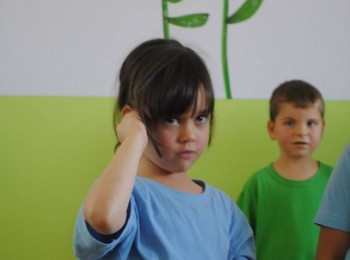 |
Acknowledging the outreach of ENV.net Survey and ENV.net 2013 Roudtable recomendations, EASD – ENV.net Serbia recognized importance of children/youth education for active EU citizenship , through promotion of EU environmental values. We would like to share moments from kindergarten “Pčelice”, from village Šetonje, as promotion event for environmental values in education. With children and teachers, as well as EASD Team, there were Prof dr Ivica Radovic and mr Ljubiša Antonijević, assistant ministers for education and science. |
Partnership with municipality – On November 18., 2013, ENV.net project presented on the Round table in Municipality Vračar (within City of Belgrade).
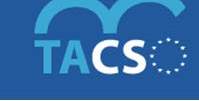 Cooperation with TACSO Serbia – On November 15. 2013, in Belgrade, TACSO Advisory Committee (LAG) organized a consultative meeting with representatives of civil society organizations and networks and Serbian civil society expert community. At the meeting a draft of a document on the assessment needs of civil society in Serbia was discussed.
Cooperation with TACSO Serbia – On November 15. 2013, in Belgrade, TACSO Advisory Committee (LAG) organized a consultative meeting with representatives of civil society organizations and networks and Serbian civil society expert community. At the meeting a draft of a document on the assessment needs of civil society in Serbia was discussed.
 EASD prepared Opinion and contribution to the Draft Strategy Paper for the Republic of Serbia 2014-2020. Through SECO mechanism opinion is sent to Governmental Office for European Integration. Opinion is based on Serbia 2013 Progress Report and Strategy – Reading by ENV.net Serbia Team .
EASD prepared Opinion and contribution to the Draft Strategy Paper for the Republic of Serbia 2014-2020. Through SECO mechanism opinion is sent to Governmental Office for European Integration. Opinion is based on Serbia 2013 Progress Report and Strategy – Reading by ENV.net Serbia Team .
Organisation capacity building process: EASD acknowledged becoming IPEN network Participating Organization
Eye on environmental laws changes: monitoring compliance with EU directives
November 2013. – The third ENV.net partnership meeting in Milan
28. October – Meeting with European Parliamentarians
ENV.net Serbia Team prepared document: Reading of 2013 Progress Report for Serbia and Strategy by ENV.net Serbia Team ( Serbia 2013 Progress Report and Strategy – Reading by ENV.net Serbia Team ).
____________________________________________________
22. and 23 October – Education on sustainable management of lead/chemicals
October 18 – EC Delegation in Serbia, present to relevant CSOs, on October 18, 2013 , Serbia Progress Report 2013, in which the Commission services present their assessment of what Serbia as the candidate country has achieved over the last year.
October 2013 : Participated on different events organized to raise awareness to EU approximation environmental challenges.
Promotion of ENV.net facebook page!
October 2, 2013 – ENV.net team participated at the First SEE Regional Science Promotion Conference (SCIPROM), opened in Belgrade, with the aim to bring together science promotion professionals, practitioners and enthusiasts to share experience and network in order to strengthen the link between science and society in our Region. In the current competitive global environment it is an imperative to enhance economic and social capacities by improving the educational structure of society, inspiring innovation and technological advancement and creating a milieu for appreciation of the value and benefits of knowledge. In the opening address, Minister for Education, Science and Technology development of Serbia underlined, among others the importance of knowledge based actions, as well as the importance of drinking water for development. Conference bring international experts and representatives of international organizations, research and educational institutions, science camps, science communicators, NGOs, private sector and media on board.
This conference justify the path of ENV.net Serbia implementation and development, linking European Integration, Knowledge based activities and sectors : Education, Science and Environment/Natural Resources.
____________________________
Waste management and water management are considered as two important segments of environmental acquis and studies in this area represent an important aspect of ENV.net project. Environmental accession status of Serbia ( waste , water and EIA thematic issues) was presented by EASD team at International Conferences in Vienna (Austria) and Zadar (Croatia), as well as on chemicals at SAICM Regional Meeting (Skopje, Macedonia FYR).
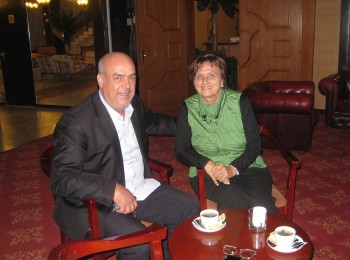 In addition, possible ENV.net partnerships are discussed with other participants and interested CSOs.
In addition, possible ENV.net partnerships are discussed with other participants and interested CSOs.
In Skopje, EASD representative met Macedonian 4x4x4 BB representative on September 26, 2013, to discuss possible enlargement of ENV.net project to Macedonia.
________________________________________
Promotion of ENV.net site in place Join us!
Added value for ENV.net Serbia is EASD activities within the development of Post-Rio+20 Agenda.
Office for Cooperation with Civil Society organized on September 6, 2013 Conference devoted to negotiating Chapter 27 (Environment). Presentation (in Serbian) from the Conference includes: Poglavlje 27 pregovori, Iskustvo R Slovenije, Natura 2000 Ministarstvo, Uloga civilnog drustva u monitoringu, Natura 2000 NGO )
September 2013: ENV.net project presented in the Ministry of Education, Science and Development of Serbia (Meeting of the National Committee for Environmental Education Programs)
August 2013. – Snapshot analysis : While waiting for EC 2013 Progress Report
___________________________________________________________________
Citizen science concept in terms of adaptation and mitigation to the climate change
“Citizen Science refers to the general public engagement in scientific research activities when citizens actively contribute to science either with their intellectual effort or surrounding knowledge or with their tools and resources” .
In last decade, direction in science development moved from traditional circle of research to the new ways, by involving the public and becoming more and more inclusive in a growing range of disciplines. Historically this is not new that universities/academic researchers need to start involving public, citizens, civil society organizations… in their own activities (like Benjamin Franklin or Charles Darwin in the topics of topics that include applied life sciences and health research. It is evident that Citizen Science grows, reflecting in creation of large data sets (especially in monitoring and observing. The main challenge and very applicative approach is to involve citizen scientist in research of the topic that is very important for every unique life and that tackle every single citizen – CLIMATE CHANGE.
It is a question how citizens can be involved. Let we see some facts regarding ongoing climate change issue globally and in Serbia. The fact known wider is that from 1850 until know, temperature raised for 1 degree. The problem is that in relatively short period of time, temperature rises continually. Regarding Serbia, developing country, some of the consequences are following:
At the yearly level, every citizen from Serbia emits 4-5 t of carbon dioxide, what is a quantity at least 10 times bigger than quantity of communal waste per citizen per year. Precipitation is at the same level, more or less, but the problem that we are faced on is that redistribution is uneven. Dried periods are increased, for the period of 83 years, there were 13 dried periods, while in last 47 years, and same number of dried periods are evidenced. Furthermore, number of precipitation days of 20, 30 i 40 mm/per day also increase, especially important is that almost 5 times increased precipitation values of 40 mm/per day, for the period 2001-2017 compared to the period 1951-1980. The problem that urban places faced with relates to the sewage system, it is not constructed to accept raised amounts of atmospheric waters. Climate change goes beyond, without comeback to the previous, „climatelly“ better time!
Globally, to combat climate change, it is very important to follow Paris agreement conclusions and obligations. It should be taken into account that damages caused climate changes costs: at the EU level, from the period 2010-2016, 12,6 billions of eur (or from the period 1980-2016, costs are 436 billions of eur)
Possible practical solution is to include adaptation into future plans, construction, and agriculture through calculation of climate change parameters in order to avoid consequences of extreme climate events. That means to construct savage system to be able to accept extreme amounts of different precipitations, even it is not necessary in this moment.
What is solution and form of citizens’ engagement?
There is a recent project “Territorial RRI Fostering Innovative Climate Action (Responsible Research and Innovation)” with eight partners from Europe, among them Serbia and Center for the promotion of science, under Horizon 2020. One of the pilot region will be Belgrade. This project envisages active participation of citizen, civil society organizations, scientific and research institutions in applying adaptation measures at basic level of the society. The interactive map will be produced, where citizens will be able to mark places and points in the City of Belgrade, where they are fill uncomfortable during the year, in terms of climate parameters. This will help in future planning to pay more attention of local community what adaptation and mitigation measures to apply to these areas.
Environmental Ambassadors for Sustainable Development, as member of ECSA network, will use citizen science approach to contribute to better understanding what are possibilities of citizen engagement exist through Eco-school network in different parts of Serbia.
ENV.net Initiative: to update National Strategy on Sustainable Use of Natural Resources and Goods, by applying Circular Economy concept
EASD and CEKOR organised on October 12, 2018 Meeting of National Convention on the European Union (NCEU) Working Group for Chapter 27.
ENV.net Thematic Advisor Prof dr Andjelka Mihajlov presented ENV.net research related Circular Economy (Complexity).
ENV.net Serbia National Coordinator Aleksandra Mladenovic presented ENV.net Initiative to update National Strategy on Sustainable Use of Natural Resources and Goods by applying Circular Economy concept. The Initiative is acknowledged , and will be send to Ministry competent for Environment.
In media:
Join us for June 5th: Conference Agenda is available
Pictures from the event:
Otvaranje / Opening
Panel o zastiti prirode / Panel on Nature Protection
UNEP nagrade / UNEP@WED
YRE awwards/ Nagrade Mladih ekoreportera & https://www.facebook.com/mladiekoreporteri/
Prezentacija radova / Presentations
The Fourteenth Regional Conference – EnE18
Environment to Europe
Belgrade, Serbia, June 5, 2018
Nature protection – Nature-Responsive Development
Conference Agenda, draft, as on 22/05/2018
Conference “Environment to Europe” – EnE18 is an official event that marks the UN World Environment Day (WED) in the Republic of Serbia and region. Since its beginning in 1974, World Environment Day has developed into a global platform for raising awareness and taking action on urgent issues from marine pollution and global warming to sustainable consumption and wildlife crime. “Beat Plastic Pollution”, the theme for World Environment Day 2018, is a call to action for all of us to come together to combat one of the great environmental challenges of our time. Chosen by this year’s host, India, the theme of World Environment Day 2018 (If you can’t reuse it, refuse it) invites us all to consider how we can make changes in our everyday lives to reduce the heavy burden of plastic pollution on our natural places, our wildlife – and our own health. In recent years, millions of people have taken part in thousands of registered activities worldwide.
Conference “Environment to Europe” – EnE18 is an official event that marks the European Sustainable Development Week (ESDW) in the Republic of Serbia. The ESDW is a European-wide initiative to stimulate and make visible activities, projects and events that promote sustainable development and the Sustainable Development Goals (SDGs). It takes place every year from 30 May until 5 June. The ESDW aims to raise awareness for the 2030 Agenda in Europe and calls upon local stakeholders to actively engage with sustainable development, in general, and the SDGs, in particular.
The Fourteenth Regional Conference EnE18 is thematically focused on Nature protection – Nature-Responsive Development (2018). Since 2005, when we established the Conference, we have around 2.500 participants from 15 countries and presented about 350 research and scientific papers. This year is also fourteen years of partnership between “Environmental Ambassadors for Sustainable Development“ with the Chamber of Commerce and Industry of Serbia“.
Conference Agenda
as on 22/05/2018; possible changes of Agenda when confirmation received
5. jun June 5th
| Velika sala u PKS, II sprat, Terazije 23, Beograd | Main Hall, 2nd floor – Serbian Chamber of Commerce, Terazije 23, Belgrade |
9:00 – 10:00 Registracija učesnika / Registration
10:00 – 10:50 Uvodna obraćanja / Opening remarks
Moderator: dr Uroš Rakić, on behalf of organisators
- H.E. Ratko Vlajkov, Ambassador, Embassy of the Republic of Bulgaria in the Republic of Serbia – The Bulgarian presidency of the Council of the EU / Ambasador, Ambasada Republike Bugarske u Republici Srbiji
- H.E. Lazar Mirkić, Ambassador, Embassy of Bosnia and Herzegovina in the Republic of Serbia / Ambasador, Ambasada Bosne i Hercegovine u Republici Srbiji
- Robert Nygård, The First Secretary Responsible for Environmental Issues, Swedish Embassy in the Republic of Serbia / Prvi sekretar odgovoran za pitanja životne sredine, Ambasada Švedske u Republici Srbiji
- Delegation of EU in Serbia, representative / Delegacija EU u Srbiji, predstavnik/ (potvrđeno/confirmed, representative tbd)
- Minister for Environment / Ministar za zaštitu životne sredine (invited/pozvan)
- Stanojla Mandić, Deputy Commissioner for Information of Public Importance and Personal Data Protection of the Republic of Serbia / Zamenica poverenika za informacije od javnog značaja i zaštitu podataka o ličnosti Republike Srbije
- Dr Deni Porej, Director of WWF Adria, WWF Mediterranean Programme Office / Direktor WWF Adria, WWF Regionalna kancelarija
- Aleksandra Šiljić Tomić, Project Coordination Specialist, UN Environment Republic of Serbia / Koordinator projekta, Kancelarija UN za životnu sredinu, Republika Srbija
- dr Nenad Sekulić, Head of Department for Biodiversity and Ecological Network, Institute for Nature Conservation of Serbia / Načelnik odeljenja za biodiverzitet i ekološke mreže, Zavod za zaštitu prirode Srbije
- Goran Krnčević, Assistant Director of the Sector for Legal, Financial and Administrative Affairs, Institute for Nature Conservation of Vojvodina Province / Pomoćnik direktora za pravne, finansijske i opšte poslove, Pokrajinski zavod za zaštitu prirode
- Ljubica Naumović, Environment Executive, Tetra Pak Production / referent za zaštitu životne sredine, Tetra Pak Production
- Dušan Stokić, Co-organizer of the EnE18 Conference, Head of the Department for Environment, Technical Regulation, Quality and Social Responsibility, the Chamber of Commerce and Industry of Serbia / suorganizator EnE18 Konferencije, Rukovodilac Službe za životnu sredinu, tehničke propise, kvalitet i društvenu odgovornost, Privredna komora Srbije
- prof. dr Dunja Prokić, the EnE18 Conference Chair person, Environmental Ambassadors for Sustainable Development / predsedavajuća EnE18 Konferencije, Ambasadorka održivog razvoja i životne sredine
10:50 – 11:00 Aleksandra Mladenović, Environmental Ambassadors for Sustainable Development President/ Predsednica Ambasadora održivog razvoja i životne sredine, Plenary, Panel Theme and Panelists / Predstavljanje plenarnog izlaganja, panela i panelista
11:00 – 11:20 Plenary lecture / Plenarno predavanje
Begona Matilla Soloaga, Human Dynamics, Team leader, TA for strengthening the National Nature Protection System for implementation of Natura 2000 requirements / Human Dynamics, tim lider, NATURA 2000 Turska. Focus : NATURA 2000 in Turkey – project outputs / NATURA 2000 u Turskoj – rezultati projekta.
11:20 – 13:30 Panel on Nature Protection and Nature – Responsive Development / Panel na temu Zaštita prirode i razvoj odgovoran prema prirodi
Moderator: Milica Momčilović, journalist, Vice President of World Federation of Science Journalists (WFSJ) / novinar, potpredsednica Svetske federacije naučnih novinara
Panelists (Plenary Session) / Učesnici Panela (Plenarna sesija) :
dr Deni Porej, Director of WWF Adria, WWF Mediterranean Programme Office / Direktor WWF Adria, WWF Regionalna kancelarija. Focus : WWF and Nature Protection, Nature – Responsive Development / WWF i zaštita prirode, razvoj odgovoran prema prirodi.
prof. dr Predrag Simonović, Faculty of Biology, University of Belgrade / Biološki fakultet, Univerzitet u Beogradu . Focus: An invasive species of fish and links between fisheries management and aquaculture in Serbia in the process of EU accession / Invazivne vrste riba i veza između ribolovnog upravljanja i akvakulture u Srbiji u procesu pristupanja EU
mr. Danko Jović, Institute for Nature Conservation of Serbia / Zavoda za zaštitu prirode Srbije. Focus: State in the Republic of Serbia in respect of nature and oblidations of Serbia in the process of accession to the EU in this area / Stanje u Republici Srbiji u vezi zaštite prirode i obavezama Srbije u procesu pristupanja EU u ovoj oblasti.
Klara Sabadoš, Institute for Nature Conservation of Vojvodina Province / Pokrajinski zavod za zaštitu prirode. Focus: The situation regarding nature protection and the NATURA 2000 network in Serbia / Situacija oko zaštite prirode i mreže NATURA 2000 u Srbiji.
Nikola Stanojević, Bird Protection and Study Society of Serbia / Društvo za zaštitu i proučavanje ptica: Protection of birds and obligations of the Republic of Serbia in the process of EU accession in this area / Zaštita ptica i obaveze Republike Srbije u procesu pristupanja EU u ovoj oblasti.
13:30 – 13:40 Technical Break / Tehnička pauza
13:40 -14:00 Awards for the winners of the competition „Beat plastic pollution! If you can’t reuse it, refuse it!“ organized among elementary school classes by UN Environment and partners: Environmental Ambassadors for Sustainable Development and Forestry and Environmental Action for celebration of the World Environment Day 2018 in Serbia / Dodela nagrada timovima iz osnovnih škola u Srbiji, pobednicima na konkursu „U koštac sa plastikom!“ tj. „Pobedi zagađenje plastikom! Ako ne možeš da je ponovo upotrebiš, ne koristi je!“ koji je Agencija Ujedinjenih nacija za životnu sredinu organizovala zajedno sa partnerima: Ambasadori održivog razvoja i zaštite životne sredine i Inicijativa za šumarstvo i životnu sredinu – fea povodom obeležavanja Svetskog dana zaštite životne sredine 2018. u Srbiji.
Obraćanje: Aleksandra Šiljić Tomić, specijalista za koordinaciju projekata Agencije Ujedinjenih nacija za životnu sredinu (UN Environment)
Awarded / Nagrađeni radovi:
1. mesto – rad „Žutoplovac“, OŠ „Sveti Georgije“, Uzdin; Nagradu prima mentor Tatjana Romanov, profesor razredne nastave
2. mesto – rad „Eko brodić – Drugarstvo“, OŠ „Rade Dodić“, Milutovac, izdvojeno odeljenje Poljna; Nagradu prima mentor Suzana Jovanović –Stanisavljević
3. mesto – rad „Brod prijateljstva“, OŠ „Petefi brigada“, Kula; Nagradu prima mentor Marijana Kolarić
Photo exhibition – slideshow of vessels (ships, sailboats, etc.) of all elementary school classes participated in the competition is presented in the front of the Main Hall.
14:00 – 14:20 Awards for the best Young Reporters for the Environment (YRE) in 2018: “Energy Efficiency of the Eyes of Young Reporters for the Environment” / Dodela nagrada najboljim Mladim Eko-reporetima u 2018. godini: “Energetska efikasnost očima Mladih Eko-reportera”
Obraćanje: Dijana Šarac, koordinator Programa Mladi Eko-reporteri
Awarded/ Nagrađeni radovi:
Uzrasna kategorija od 11 do 14 godina
– U kategoriji članaka:
- mesto David Bradić iz OŠ „Rade Dodić“, Milutovac, naziv članka: Sunce i ti
- mesto Lena Veličić, Dunja Milijanović iz OŠ „Sveti Sava“, Čačak, naziv članka: Štednja energije
- mesto Milica Đurić, Teodora Nikša, Milica Popović, Živojin Mišić, Marko Kuleško iz OŠ „Marija Trandafilović“, Veternik, naziv članka: Udaljenost Kejptauna je relativna stvar
– U kategoriji fotografija:
- mesto Milan Pavlović iz OŠ Stojan Novaković, Blace, naziv fotografije: Energetska efikasnost saradnjom svih nas
- mesto Jovana Dimitrijević iz OŠ Sveti Sava, Pirot, naziv fotografije: Moj grad vodi računa o energetskoj efikasnosti
- mesto Ilija Radojković iz OŠ Ratko Mitrović, Čačak, naziv fotografije: Sunce na našem krovu
– U kategoriji videa:
- mesto Đina Ranđelović, Iva Ignjatović iz OŠ „Sveti Sava“ Pirot, naziv videa: Unutrašnji bazen u Pirotu
- mesto Nikola Dragić, Ognjen Kostić, Aleksa Vacić, Dimitrije Stanković iz OŠ „Sveti Sava“, Pirot, naziv videa: Vodenica
- mesto Strahinja Marseni, Anja Lazović, Vladimir Konstantinovića, Andreja Đurkovića, Teodora Radivojević iz OŠ Drinka Pavlović, Beograd, naziv videa: Energetska efikasnost
Uzrasna kategorija od 15 do 18 godina
– U kategoriji članaka:
- mesto Jefimija Najdić iz Gimnazija Vranje, naziv članaka: Dozvolite plućima naše planete da dišu
- mesto Marija Dibrani iz MTŠ „14 oktobar“, Kraljevo, naziv članka: Zelena energija i zdrav život
- mesto Stefan Zeremski, Bojan Zakonović, Vasilije Radović iz ETŠ „Rade Končar“, Beograd. Naziv članka: Sekcija za energetsku efikasnost
– U kategoriji fotografija:
- mesto Olga Đurović iz Gimnazije „Takovski ustanak“, Gornji Milanovac, naziv fotografije: Krov
- mesto Vladana Stanković iz Prehrambeno-hemijske škole, Niš, naziv fotografije: Nova rasveta u Doljevcu
– U kategoriji videa:
- mesto Anja Aranđelović, Milica Jovanović, Gordan Mišić iz Tehničke škole, Paraćin, naziv videa: Menjamo navike da ne bude panike
- mesto Natalija Stanković iz Savremene gimnazije, Beograd, naziv videa: Energetska efikasnost
- mesto 14 učenika iz Medicinske škole, Vranje, naziv videa: Odakle dolazi električna energija
– Uzrasna kategorija od 19 do 21 godine
U kategoriji fotografija:
- mesto Tijana Krnjaić sa Fakulteta Političkih nauka, naziv fotografije: Toplotna pumpa
– U kategoriji videa:
1.mesto Anđela Stošić sa Fakulteta Političkih nauka, naziv videa: Solarni paneli
14:20-15:00 Break / Pauza
15:00-18:00 Presentations / Usmena izlaganja radova
Moderatori: prof. dr Hristina Stevanović Čarapina, prof. dr Nataša Žugić Drakulić, prof. dr Dunja Prokić, dr Uroš Rakić
Plenary lecture / Uvodno predavanje
Uticaj Sporazuma iz Pariza o promeni klime na razvoj ekološkog acquis-a i prenošenje pravnih standarda zaštite biodiverziteta i očuvanja šuma u pravni sistem Srbije, MIRJANA DRENOVAK IVANOVIĆ, PRAVNI FAKULTET, UNIVERZITET U BEOGRADU
Oral presentations / Usmena izlaganja
GEOGRAPHIC MONITORING OF FOREST BIODIVERSITY IN BOSNIA AND HERZEGOVINA, ADI OPERTA, Department of Geography, Faculty of Science, University of Sarajevo, Bosnia and Herzegovina, Mujo Hasanović, Irma Mahmutović-Dizdarević, Department of Biology, Faculty of Science, University of Sarajevo, Bosnia and Herzegovina
KREIRANJE GIS BAZE O STANJU REČNOG TOKA U FUNKCIJI DIZAJNA ADEKVATNIH REŠENJA OČUVANJA PRIRODE, SLAĐANA ĐORĐEVIĆ, POLJOPRIVREDNI FAKULTET, UNIVERZITET U BEOGRADU, MILOŠ NINKOVIĆ, GEOGRAFSKI FAKULTET, UNIVERZITET U BEOGRADU, DUŠICA PEJIĆ, FAKULTET BEZBEDNOSTI, UNIVERZITET U BEOGRADU, BORIS KATIĆ, OPŠTINA MALI ZVORNIK, SLOBODAN MILOŠEVIĆ, FAKULTET ZA PRIMENJENU EKOLOGIJU FUTURA, UNIVERZITET SINGIDUNUM
CLADOCERANS SEASONAL DYNAMICS AT SNR ”CARSKA BARA”, Martina Mezei, Aleksandra Petrović, Vojislava Bursić, Tijana Stojanović, Jasna Grabić, Branka Ljevnaić-Mašić, FACULTY OF AGRICULTURE, UNIVERSITY OF NOVI SAD, SERBIA
PREGLED VRSTA PRIORITETNIH ZA NATURU 2000 U FAUNI ZASAVICE, MIHAJLO STANKOVIĆ, pOKRET GORANA SREMSKA MITROVICA
PRILOG FAUNI KIČMENJAKA N.P. KOZARA – MEĐUNARODNO ZNAČAJNE VRSTE, Mihajlo Stanković, Pokret gorana Sremska Mitrovica, Dragan Romčević, NACIONALNI PARK KOZARA
ZAŠTITA PRIRODE U GRADU BEOGRADU, MILAN MARTINOVIĆ, GEOGRAFSKI FAKULTET, UNIVERZITET U BEOGRADU
INFLUENCE OF DROUGHT ON WATER QUALITY AT SPECIAL NATURE RESERVE “CARSKA BARA”, Radoš Zemunac, Jasna Grabić, Vojislava Bursić, Aleksandra Petrović, Martina Mezei, Faculty of Agriculture, University of Novi Sad, Ildiko Grnya, Special Nature Reserve “Carska bara”, Branka Ljevnaić-Mašić, Faculty of Agriculture, University of Novi Sad
ŠUME HRASTA LUŽNJAKA (Quercus Robur Lat.) – INDIKATOR KLIMATSKIH PROMENA NA PODRUČJU ŠUMADIJE, SEVERIN ŠIKANJA, FAKULTET ZA PRIMENJENU EKOLOGIJU – FUTURA, UNIVERZITET SINGIDUNUM
MERE ZAŠTITE U SPOMENIKU PRIRODE ”PARK BUKOVIČKE BANJE”, STEFAN dABIŽLJEVIĆ, ALEKSANDAR ĐORĐEVIĆ, MILOŠ TOMOVIĆ, VISOKA ŠKOLA STRUKOVNIH STUDIJA ARANĐELOVAC
ZAŠTITA PRIRODE U TEHNOLOŠKIM GRADOVIMA, MILAN MARTINOVIĆ, GEOGRAFSKI FAKULTET, UNIVERZITET U BEOGRADU
INVESTIGATION OF MACRO- AND MICROELEMENTS IN SOIL, GRAPEVINE AND AIR IN ORGANIC VINEYARD: BIOMONITORING, ECOLOGICAL IMPLICATIONS AND HEALTH RISK ASSESSMENT, TIJANA Milićević, Mira Aničić Urošević, INSTITUTE OF PHYSICS BELGRADE, NATIONAL INSTITUTE OF THE REPUBLIC OF SERBIA, UNIVERSITY OF BELGRADE, Dubravka Relić, fACULTY OF CHEMISTRY, UNIVERSITY OF BELGRADE, Gordana Vuković, INSTITUTE OF PHYSICS BELGRADE, NATIONAL INSTITUTE OF THE REPUBLIC OF SERBIA, UNIVERSITY OF BELGRADE, Sandra Škrivanj, AlekSANDAR POPOVIĆ, UNIVERSITY OF BELGRADE, FACULTY OF CHEMISTRY
PRIMENA LCA MODELA ZA DONOŠENJE ODLUKA U OBLASTI ZAŠTITE ŽIVOTNE SREDINE, jASNA STEPANOV, DUNJA PROKIĆ, FAKULTET ZAŠTITE ŽIVOTNE SREDINE, UNIVERZITET EDUKONS, SREMSKA KAMENICA
AIR POLLUTION TAKEN BY HEALTH PROFESSIONALS – CALL FOR PRACTICAL SOLUTIONS AND TANGIBLE CITY LEVEL POLICY CHANGES TO CUT POLLUTION LEVELS, VLATKA MATKOVIĆ PULJIĆ, Srđan kukolj, HEALTH & ENVIRONMENT ALLIANCE (HEAL), BRUSSELS, Marija jevtić, UNIVERSITY OF NOVI SAD, FACULTY OF MEDICINE, INSTITUTE OF PUBLIC HEALTH OF VOJVODINA, UNIVERSITÉ LIBRE DE BRUXELLES (ULB), SCHOOL OF PUBLIC HEALTH, BRUXELLES, CATHERINE BOULAND, UNIVERSITÉ LIBRE DE BRUXELLES (ULB), SCHOOL OF PUBLIC HEALTH, BRUXELLES, ALEXANDER SIMIDCHIEV, DEPARTMENT OF PULMONOLOGY, UNIVERSITY HOSPITAL LOZENETS, SOFIA
OSIGURANJE KAO FINANSIJSKI INSTRUMENT ODRŽIVOG RAZVOJA, TANJA NOVAKOVIĆ, FAKULTET TEHNIČKIH NAUKA, UNIVERZITET U NOVOM SADU, Marija jevtić, Medicinski fakultet, UNIVERZITET U NOVOM SADU, Institut za javno zdravlje Vojvodine, tatjana tamaš, MEDICINSKI FAKULTET, UNIVERZITET U NOVOM SADU, Institut za onkologiju vojvodine, Đorđe Ćosić , Ljiljana Popović, Mirjana Laban, FAKULTET TEHNIČKIH NAUKA, UNIVERZITET U NOVOM SADU
ELEMENTI MALOLETNIČKOG KRIMINALITETA U KRIVIČNIM DELIMA PROTIV ŽIVOTNE SREDINE U REPUBLICI SRBIJI, Aleksandar Luković, KORIDORI SRBIJE, Brankica Luković, Ljilana Plećević, Vahid Ibrulj, Visoka škola strukovnih studija-Aranđelovac
ZAŠTITA VAZDUHA OD ZAGAĐENJA I ”EURO 3” STANDARD MOTORNIH VOZILA, bRANISLAVA MARKOVIĆ, pRAVNI FAKULTET, UNIVERZITET U BEOGRADU
SRBIJA BEZ FOSILNIH GORIVA, DEJAN DOLJAK, STEVAN GLIGOROVIĆ, MILICA LAZOVIĆ,ĐURĐIJA MARKOVIĆ, ANA MILEUSNIĆ, MIRKO MILIĆEVIĆ, NEMANJA NIKOLIĆ, SINIŠA OBRENIĆ, DANIJELA PAVIĆEVIĆ, ĐORĐE SAMARDŽIJA, JEDAN STEPEN SRBIJA
UTICAJ TURIZMA NA VODNE RESURSE, SNEŽANA ŠTETIĆ, VISOKA TURISTIČKA ŠKOLA STRUKOVNIH STUDIJA BEOGRAD, IGOR TRIŠIĆ, Fakultet za hotelijerstvo i turizam, Univerzitet u Kragujevcu, Fakultet za hotelijerstvo i turizam u Vrnjačkoj BanjI
Značaj planova za sigurno vodosnabdevanje i Bonske povelje, mILKICA Kovačević
KREMIRANJE I ZAŠTITA ŽIVOTNE SREDINE, OSVRT NA SRBIJU I ”OGANJ”, SLOBODAN STOJANOVIĆ, BRANISLAV MATIJAS, MAJA NIKOLIĆ, UDRUŽENJE KREMATISTA ”OGANJ”
Poređenje ekološke svesti učenika osnovnih škola u Nemačkoj i Bosni i Hercegovini, TEA POŽAR, Institute of Geography, University of Bamberg, dIJANA ĐURIĆ, Građevinski fakultet Subotica, Univerzitet u Novom Sadu, LOLA MARKOVIĆ, GEOGRAFSKI FAKULTET, UNIVERZITET U BEOGRADU
Radovi u formi apstrakta
OČUVANJE STANIŠTA VELIKE DROPLJE, MIROSLAVA KRNIĆ, LJILJANA MILEKIĆ, gRADSKA UPRAVA, GRAD KIKINDA
Biodiversity of epiphytic Lichens and Mosses from Pčinja District and Bioindication of heavy Metal Pollution by using Evernia prunastri and Hypnum cupressiforme, SNEŽANA MILOŠEVIĆ, OPŠTINSKA UPRAVA, KLER, OPŠTINA BUJANOVAC, SLAVIŠA STAMENKOVIĆ, PRIRODNO MATEMATIČKI FAKULTET
18:00 Zatvaranje konferencije / Conference closing
Obraćanje: Aleksandra Mladenović, predsednica Ambasadora održivog razvoja i životne sredine
I ove godine Ambasadori održivog razvoja i životne sredine (AOR) nastavljaju sa promovisanjem aktivnosti koje imaju minimalan negativan uticaj na životnu sredinu, te je EnE18 Konferencija prepoznata kao ekološki prijateljska i izbegnuto je bespotrebno štampanje materijala i publikovanje Zbornika radova u štampanom izdanju. Takođe, AOR preporučuju dolazak učesnika na Konferenciju sredstvima javnog prevoza.
Četrnaesta regionalna konferencija EnE18
The Fourteenth Regional Conference EnE18
Životna sredina ka Evropi
Environment to Europe
ORGANIZACIONI I NAUČNO – RECENZENTSKI ODBOR:
ORGANISATION AND SCIENTIFIC – ADVISORY COMMITTEE:
dr Christos Vlachokostas, Aristotle University Thessaloniki, Greece
Prof. dr Anđelka Mihajlov, University of Novi Sad, Serbia
MSc Ljupco Avramovski, Skopje, FYR Macedonia
Prof dr Predrag Simonović, University of Belgrade, Serbia
Prof. dr Nataša Žugić Drakulić
Filip Jovanović MSc
dr Uroš Rakić
Prof. dr Hristina Stevanović Čarapina
MSc Aleksandra Mladenović
mr Dušan Stokić, ko-predsedavajući Konferencije, Conference co-Chair
prof. dr Dunja Prokić, glavna koordinatorka Konferencije, Main Conference Coordinator
Jezik Konferencije
Engleski i srpski (i/ili jezici bivših jugoslovenskih republika); simultano prevođenje je obezbeđeno zaključno sa 13:30h.
Conference language
English and Serbian (and/or languages of former Yugoslav Republics); simultaneous translation will be provided up to 13:30.
Zbornik radova
On-line Zbornik radova objavljenih u celini predstavlja radove koji su recenzirani, razvrstani i dostavljeni u predviđenom roku; autori radova su odgovorni za sadržaj radova i prevod na engleski jezik. Zbornik radova se može preuzeti sa: http://ambassadors-env.com/ene18-zbornik-radova-book-of-proceedings/
Book of Proceedings
Book of Proceedings, with all accepted papers, is available online. Authors are responsible for content and English translation of their papers. Available at: http://ambassadors-env.com/ene18-zbornik-radova-book-of-proceedings/
Recenzentski odbor je, na bazi tematske usmerenosti i načina prezentovanja, razvrstavao radove za Zbornik po kategorijama: radovi u celini i apstrakti radova. Papers are grouped in two categories: full papers and abstracts.
Kontakt: “Ambasadori održvog razvoja i životne sredine”, www.ambassadors-env.com; Email: eneconference@feeserbia.com, cc: office@ambassadors-env.com
Contact: „Environmental Ambassadors for Sustainable Development“, www.ambassadors-env.com; Email: eneconference@feeserbia.com, cc: office@ambassadors-env.com
Participation at the Green Parliamentary Group meeting
Parliamentarians from the Serbian Assembly had opportunity (May 2018) to host their colleagues from FYR Macedonia and Montenegro, who are about to set up informal parliamentary group in their respective assemblies, similar to pro-active Green Parliamentary Group in Serbia.
The speakers and presenters were from different organizations and institutions: Ms. Ivana Stojiljkovic, Chair of National Assembly’s Committee for the Protection of Environment; Ms. Kristina Kujundzic, Manager of GIZ ORF Biodiversity; Prof. dr Andjelka Mihajlov, as an experts and representative of Environmental Ambassadors for Sustainable Development, Mrs. Tanja Petrovic from Young Researchers of Serbia and Dr. Biljana Panjkovic from Vojvodina Provincial Institution for Nature Protection.
Prof. Mihajlov presented financing of environmental sector, starting from the Polluters Pays Principle as the oldest environmental principle, as well as the User Pays Principle (applied when resources are being used and consumed) – historical background, functions, substance, principles in international law, EU law and in national law, instruments to implement. She explained possible financial tools (like fees, taxes, payment for ecosystem services, subsidies) and mechanism of collecting the “green money” (in budget), with spending back to environment (dedicated purpose) and/or to other purposes, underlining that environmental sector in region is suffering from sharing “the green money” with other sectors. Prof. Mihajlov pointed out the importance of continuity and long-term sustainability of financial tools in environmental sector, both at national and local levels.
Call for participation for EnE18: Nature protection – Nature-Responsive Development
We are pleased to invite you to The Fourteenth Regional Conference ”Environment to Europe – EnE18‘‘, which will be held on June 5th 2018 in Belgrade (Chamber of Commerce and Industry of Serbia). Conference is UN WED (World Environmental Day) and ESDW (European Sustainable Development Week) event. On the World Environment Day 2018 , the UN is expected to give emphasis on the fact that individual actions to preserve the nature can actually help in sustaining a green environment and to understand why forests are important.
Environmental Ambassadors for Sustainable Development in partnership with Chamber of Commerce and Industry of Serbia organize The Fourteenth Regional Conference ”Environment to Europe – EnE18”. Thematic area this year is Nature protection – Nature-Responsive Development
Nature protection is highly ranked on the list of priorities of the United Nations (Sustainable Development Goal 15 and UN Decade on Biodiversity by 2020), the European Union (NATURA 2000) and all countries that strive to preserve natural values, biodiversity, geodiversity have to develop with responsibility to nature. The goal of the UN Decade on Biodiversity is to support the implementation of the Strategic Plan for Biodiversity and to promote its overall vision of living in harmony with nature. UN SDG 15 refers to the protection, restoration and promotion of sustainable ecosystems use, sustainable forests management, combating desertification and preventing land degradation and biodiversity loss. In response to the threat to nature and biodiversity, the EU has formed a wide European network of protected natural areas, known as NATURA 2000. It covers over 18% of the EU territory, ensuring long-term survival of the most valuable and threatened species and habitats in Europe. Candidate countries and potential candidates for membership in the European Union are facing a great challenge to protect nature and implement a development responsive to nature.
The aim of the EnE18 Conference is to highlight the importance of environmental protection and sustainable development in the context of the protection of nature. The Conference is an opportunity for representatives of state institutions, professional, consultative, educational and scientific institutions, managers of protected areas, civil sector, to present current topics in the field of nature protection.
Traditionally, within the Conference every year we have a significant number of participants from Serbia and abroad, the participation of over 150 authors and co-authors of papers who published in the CD Proceedings of the Conference, as well as participants without paper.
We firmly believe that your scientific/research results/consultancy/views and experience will substantially help a better understanding of these fields. Being aware of the necessity of a close cooperation between science and practice, we invite you to take active participation in the Conference Environment to Europe – EnE18, either by preparing and presenting your paper or by contributing as an auditor and participant.
Application forms (with or without paper) should be sent by email: eneconference@feeserbia.com
Focus themes on WED through years:
- Theme of the year 2017 – “Join the race to make the world a better place”.
- Theme of the year 2015 – “One World, One Environment”.
- Theme of the year 2014 – “small island developing states” or “SIDS” and “Raise your voice, not the sea level”.
- Theme of the year 2013 – “Think. Eat. Save.” And slogan – “Reduce Your Foodprint”.
- Theme of the year 2012 – “Green Economy: Does it include you?”.
- Theme of the year 2011 – “Forests: Nature at your Service”.
- Theme of the year 2010 – “Many Species. One Planet. One Future”.
- Theme of the year 2009 – “Your Planet Needs You – Unite to Combat Climate Change”.
- Theme and slogan of the year 2008 – “CO2, Kick the Habit – Towards a Low Carbon Economy”.
- Theme of the year 2007 – “Melting Ice – a Hot Topic?”.
- Theme of the year 2006 – “Deserts and Desertification” and slogan – “Don’t Desert Drylands!.”
- Theme of the year 2005 – “Green Cities” and slogan – “Plan for the Planet!”.
- Theme of the year 2004 – “Wanted! Seas and Oceans” and slogan – “Dead or Alive?”.
- Theme of the year 2003 – “Water” and slogan – “Two Billion People are Dying for It!”.
- Theme of the year 2002 – “Give Earth a Chance”.
- Theme of the year 2001 – “Connect with the World Wide Web of Life”.
- Theme of the year 2000 – “The Environment Millennium” and slogan – “Time to Act”.
- Theme of the year 1999 – “Our Earth – Our Future” and slogan – “Just Save It!”.
- Theme of the year 1998 – “For Life on Earth and slogan – “Save Our Seas”.
- Theme of the year 1997 – “For Life on Earth”.
- Theme of the year 1996 – “Our Earth, Our Habitat, Our Home”.
- Theme of the year 1995 – “We the Peoples: United for the Global Environment”.
- Theme of the year 1994 – “One Earth One Family”.
- Theme of the year 1993 – “Poverty and the Environment and slogan – “Breaking the Vicious Circle”.
- Theme of the year 1992 – “Only One Earth, Care and Share”.
- Theme of the year 1991 – “Climate Change. Need for Global Partnership”.
- Theme of the year 1990 – “Children and the Environment”.
- Theme of the year 1989 – “Global Warming; Global Warning”.
- Theme of the year 1988 – “When People Put the Environment First, Development Will Last”.
- Theme of the year 1987 – “Environment and Shelter: More Than A Roof”.
- Theme of the year 1986 – “A Tree for Peace”.
- Theme of the year 1985 – “Youth: Population and the Environment”.
EASD become the Member of the Western Balkans Youth Cooperation Platform!
EASD become the Member of the Western Balkans Youth Cooperation Platform! (WB YCP)
The platform is an initiative of Cooperation and Development Institute and is supported by Hanns Seidel Foundation. The main aim of the platform is to offer organisations – youth organizations, CSO-s, informal movements, groups, or young individuals – targeting youngsters, initially from Albania and Serbia and then from all the Western Balkans, a resource center where to find partners for joint activities, exchange initiatives, youth projects, discuss cooperation ideas, build up joint activities, get advice, and implement those projects together.
WB YCP also offers a wide array of existing initiatives, national, regional and EU-supported that aim youth and cover the Western Balkans.
The platform will initially provide the functions of:
- Youth Organizations Repository: Youth organizations, movements, informal groups, young researchers, etc. can register their profile and promote their activities;
- Partner Search: all beneficiaries of the platform that need to find contacts in one of the countries for their next project, can use the filters to search the appropriate partner for their idea.
- Information resource centre regarding the RYCO upcoming activities.
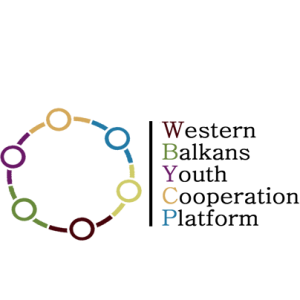
Climate Change Education for Sustainable Development
The Thirteenth Regional Conference – EnE17 Environment to Europe was successful UN Environment WED and ESDW event. Traditionally, this Conference was organized by professional association “Environmental Ambassadors for Sustainable Development” and Chamber of Commerce and Industry of Serbia.
Especially interested was Panel on Climate Change Education for Sustainable Development (panelists are: Prof. dr Vladimir Đurđević, Faculty of Physics, University of Belgrade ; Prof. dr Aleksandar Jovović, Faculty of Mechanical Engineering, University of Belgrade; Prim. mr sci. med. Branislava Matić, Head of Unit for Human Ecology and School Hygiene at Institute of Public health of Serbia “Dr Milan Jovanovic Batut”; Nataša Đokić, Head of Department for planning projects at City of Belgrade, Secretariat for Environmental Protection; MSc Izabel Airas, Advisor for circular economy, Center for Circular Economy, the Chamber of Commerce and Industry of Serbia; prof. dr Anđelka Mihajlov (Member of the Government of the Republic of Serbia Negotiating Team for the Accession of the Republic of Serbia to the EU, responsible for climate changes in Chapter 27); Panel was moderated by Milica Momcilovic.
EnE17 was opened with introductory speeches by Goran Trivan, Secretary for Environmental Protection of the City of Belgrade with strong and clear message where it is and how it should develop the sector of environment and climate change in the Republic of Serbia, Päivi Alatalo, Deputy Head of the Mission, Embassy of Finland, Belgrade, Stanojla Mandic, Deputy Commissioner for Information of Public Importance and Personal Data Protection of the Republic of Serbia, Zoran Vujovic, Vicepresident, Chamber of Commerce and Industry of Serbia, PhD Mirjana Drenovak Ivanovic, Faculty of Law, University of Belgrade and member of the Government of the Republic of Serbia Negotiating Team for the Accession of the Republic of Serbia to the EU, responsible for specific sectors of Chapter 27, MSc Dusan Stokic, Co-organizer of the EnE17 Conference, Director of the Centre for Environmental Protection, Standards and Technical Regulation, the Chamber of Commerce and Industry of Serbia and PhD Dunja Prokic, the EnE17 Conference Chair person, Environmental Ambassadors for Sustainable Development. Conference was attended by representatives from government and non-government sectors, international organizations, scientific and educational institutions.
Conference participants (about 100 registered participants) were united in: education on climate change is very important in order to be able to mitigate the consequences of climate change and to adapt to them. Key role should have educational institutions to prepare and implement multidisciplinary programs tailored to different educational institutions and different age categories. Education on climate change requires professionals who will work with young people, so young people will be prepared to make the right decisions in the future. Participants in the discussion have tried to provide answers to questions on how to be more effective in environmental protection and responsive to nature.
The Conference awarded prizes for the best Young Reporters for the Environmnet (YRE), who took part in the competition, “Saving resources, do not throw, recycle!” The competition is organized in the framework of the FEE International Young Reporters for the Environmnet, implemented in Serbia by a professional association “Environmental Ambassadors for Sustainable Development” with RECAN Foundation support. Prizes are awarded MSc Aleksandra Mladenovic, Environmental Ambassadors for Sustainable Development president, MSc Milena Tabasevic, coordinator of the Young Reporters for the Environment in Serbia and Jelena Kis, manager of the RECAN Foundation for recycling beverage cans.
See pictures from Opening , Green Planet Award to Tetra Pak Company , Panel CLIMATE CHANGE EDUCATION FOR SUSTAINABLE DEVELOPMENT , YRE awards ceremony , Research papers presentation .
Call: The Thirteenth Regional Conference ”Environment to Europe – EnE17″, June 5th 2017, Belgrade
We are pleased to invite you to 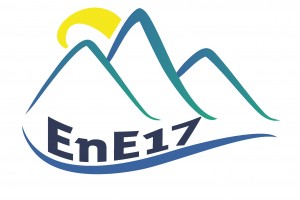 in Belgrade (Chamber of Commerce and Industry of Serbia, Terazije 23, 2nd floor, main hall). Conference is UN WED event. in Belgrade (Chamber of Commerce and Industry of Serbia, Terazije 23, 2nd floor, main hall). Conference is UN WED event.
Environmental Ambassadors for Sustainable Development in partnership with Chamber of Commerce and Industry of Serbia organize The Thirteenth Regional Conference ”Environment to Europe – EnE17”. Thematic area this year is Climate Change Education for Sustainable Development. The Conference is an opportunity for institutions, organizations and experts to present their research and exchange viewpoints regarding climate change and environmental education. We firmly believe that your scientific/research results and experience will substantially help a better understanding of these fields. Being aware of the necessity of a close cooperation between science and practice, including the practice within competent institutions, we invite you to take active participation in the Conference “Environment to Europe – EnE17”, either by preparing and presenting your paper or by contributing as an auditor and participant. First, you need to apply to the Conference “Environment to Europe” Program (http://feeserbia.com/ Conference Organizing Committee is pleased to inform you that the registration fee for paper publishing in the CD Conference Proceeding is 50 €. Students are exempt from paying the registration fee. More information: Dunja Prokić, Environmental Ambassadors for Sustainable Development, e-mail: eneconference@feeserbia.com, web site: http://ambassadors-env.com and http://feeserbia.com/. Environment to Europe Program Coordinator dr Dunja Prokić |
EASD have new President of the Council
From March 2017 President of the Council is Dunja Prokic. Dunja is the 2nd elected President of Council of “Environmental Ambassadors for Sustainable Developments” ( The first President of Council was Hristina Stevanovic Carapina, from organisation establishment)
From 2012 Dunja Prokic is engaged by Environmental Ambassadors for Sustainable Development on EnE program – Environment to Europe (as main coordinator of the Regional Conference “Environment to Europe).
Dunja Prokic, has PhD in environmental protection science, dissertation in the field of contaminated sites remediation was defended at the Faculty of Environmental Governance and Corporate Responsibility, Educons University in Sremska Kamenica in 2012. Finished her Master degree at the Faculty of Technical Science, University of Novi Sad in 2009 (Master of Technical Science). During postgraduate studies, her research focused on waste management and as a scholar of the Ministry of Science, she worked on several projects in the field of energy technologies and renewable energy sources. She finished her basic studies at the Faculty of Technical Science, Environmental Engineering Department, University of Novi Sad in 2005 (Graduate Engineer of Environmental Engineering).
From 2008 to 2012, Dunja worked as a teaching assistant at the Faculty of Environmental Governance and Corporate Responsibility, Educons University in Sremska Kamenica. From 2012. till now, she has worked as a assistant professor for environmental management at the Faculty of Environmental Governance and Corporate Responsibility, Educons University in Sremska Kamenica on the following subjects: Corporate environmental standards, Environmental risk management, Management of technological development, Environmental strategic planning and Revitalization and remediation of the environment. Since 2009, she worked as a expert –associat in NGO “Ambassadors of Sustainable Development” on projects in the area of local environmental security, waste management, eco-communication etc. She was in a team of a national expert for Serbian preparation for the World Conference on Sustainable Development RIO+20.
Since 2008 till now, Dunja has participated in numerous scientific and professional conferences in the country and abroad. She has published more than 50 scientific papers in the following areas: waste management, environmental security, EIA and SEIA, climate change, remediation of contaminated sites, water resources management, LCA and sustainable development. She actively participated in several international, national, regional and local projects in the field of environmental protection. She is currently engaged on the Ministry of Education, Science and Technological Development project (project number 176019). In recent years, she has worked as a consultant on the study related to waste and wastewater management. During professional development, she is focused on implementation of the values in protecting and preserving our environment through the concept of sustainable development at all levels of governance.
EASD have new President
On the session of EASD Council (Assembly) held on March 9, 2017 Aleksandra Mladenovic is elected for President.
Aleksandra has an in depth knowledge of and high commitment for environmental issues.
From 2015 Aleksandra is engaged by Environmental Ambassadors of Sustainable Development on FEE programs – Foundation for environmental education (as National coordinator of the Eco-Schools and Blue Flag programs).
She holds a master’s degree in biology, acquired at the Faculty of Biology, University of Belgrade. The master thesis was related to animal ecology and biodiversity issues. Her professional research experience is also connected to environmental issues. From 1998 to 2003, she worked as a researcher in the largest Serbian institution dealing with biological research, the Institute for Biological Research “Sinisa Stankovic”, on long-term research projects, financed by the Ministry of Science of the Republic of Serbia, in the field of animal ecology, biodiversity and environmental protection. Most of the projects she has been engaged in during her work in the Regional Environmental Centre for Central and Eastern Europe (REC), Country Office Serbia (from 2003 to 2009), were also connected to environmental protection and biodiversity. She gained huge experience and specific knowledge working with local communities and public institutions in Serbia, Bosnia & Herzegovina, Montenegro and Croatia.
Aleksandra was engaged as local consultant in more projects related to biodiversity and nature protection, managed by international organizations such as ECNC (European Center for Nature Conservation), IUCN (International Union for Conservation of Nature), UNDP (UN Development Program), REC (Regional Environmental Center) and WWF (World Wide Fund for Nature).
Born in 1971. in Gornji Milanovac.
To note that Aleksandra is the 2nd elected President of “Environmental Ambassadors for Sustainable Developments” ( The first President was Andjelka Mihajlov, from organisation establishment until 2014; from 2014 to 2017 organisation was without President and organisation legal representative was executive director).
EASD and ECOSOC signals: Achieving sustainable development through infrastructure
Infrastructure is a pre-requisite for advances across the 2030 Agenda for Sustainable Development, including for reducing poverty, promoting economic growth, addressing inequality and ensuring environmental sustainability. Infrastructure is addressed directly through SDG 9, which commits the international community to build resilient infrastructure, promote inclusive and sustainable industrialization and foster innovation. Moreover, “investments in sustainable infrastructure are recognized as a major cross-cutting driver that can contribute to achieving all the SDGs”, as stated by Under-Secretary-General for UN DESA, Wu Hongbo, at the 2015 Global Forum on Development. Resilient infrastructure is essential for ensuring sustainable development for all. “If we are to achieve our goals, and leave no one behind, we must address large infrastructure gaps in developing countries,” said Secretary-General Ban Ki-moon at the inaugural Global Infrastructure Forum in April 2016.
“Developing countries, particularly the most vulnerable, need international support to bridge existing infrastructure gaps,” emphasized Secretary-General Ban Ki-moon during the Global Infrastructure Forum. Infrastructure gaps pose major challenges to the implementation of the SDGs. The financing gap for infrastructure in developing countries, for example, is estimated to be 1 to 1.5 trillion dollars annually. Through the Addis Ababa Action Agenda (AAAA), the international community has committed to support resilient, sustainable infrastructure and to provide a comprehensive framework for mobilising the means to finance it.
Infrastructure that enables countries to adapt to and mitigate climate change is needed to support the Paris Climate Change Agreement. New and resilient infrastructure is also needed to support sustainable urbanization, as the number of people living in cities in emerging economies is expected to double by 2030. Resilient infrastructure is needed, moreover, to cope with the increasing incidence and magnitude of natural disasters.
In recent years there have been several new global, regional and national initiatives aimed at increasing investment in infrastructure. In Africa, for example, infrastructure is a priority element for realizing the vision of Africa’s Agenda 2063. At the global level, the international community committed to support the realisation of resilient, sustainable infrastructure through the AAAA, and created a new Global Infrastructure Forum—which held its inaugural meeting in April—to facilitate access to financing and technical expertise.
The global discussion on infrastructure will continue on 21 July 2016 at UN Headquarters as part of ECOSOC’s 2016 thematic discussion on “Infrastructure for sustainable development for all”. The thematic discussion, part of ECOSOC’s High-level Segment, will engage a broad range of voices in a global dialogue on infrastructure for sustainable development that is inclusive and leaves no one behind. It will offer policy recommendations and inform the Inter-agency Task Force report on Financing for Development, as well as the 2017 Global Infrastructure Forum. For more information: UN Economic and Social Council (ECOSOC)
EASD already is addressing the issue of environmental infrastructure as the condition for sustainable development ( 1 , 2 , 3….), as well as by research and promotion ( A, B, C , …)
Towards UNEA-2: background paper for multistakeholder dialogue
The background paper for the multi stakeholder dialogue that will take place during UNEA-2 on Friday 27 May, is prepared and available.
Other information and all relevant UNEA-2 documents are also available . EASD representatives are registered for participation at UNEA-2 (still subject of financial support).
The Second Session of the United Nations Environment Assembly will take place on 23-27 May 2016, at the UNEP Headquarters in Nairobi, Kenya under the overarching theme “Delivering on the Environmental Dimensions of the 2030 Agenda for Sustainable Development”. The assembly will be preceded by the Science and Policy Forum taking place on 19-20 May 2016. The two day event will bring together science and policy stakeholders with the aim of addressing challenges and opportunities as well as recommending concrete measures for collective action in the context of the 2030 Agenda for Sustainable Development. The 16th Global Major Groups and Stakeholder Forum (GMGSF16) will take place on 21-22 May 2016. This meeting facilitates the preparations of Major Groups & Stakeholders for UNEA-2 and is open to representatives of accredited and non- accredited organisations. In parallel to UNEA-2 proceedings, a three day Sustainable Innovation Expo (SIE2016) will be held from 23 to 25 May 2016. More information is available at . Furthermore, Greenroom side events which are primarily for and by Major Groups & Stakeholders, and official side events will take place from 23 to 27 May 2016. They will provide an opportunity for dialogue and exchange on a variety of themes.
Aarhus Center Novi Beograd – how to get involved?
In November 2015, Young Researchers of Serbia established the Aarhus center Novi Beograd, the fifth Aarhus Centre in Serbia, as an encouragement for the implementation of the Aarhus Convention and the greater involvement of citizens in environmental protection issues. On 13 April 2016, at the Media Center in Belgrade, Aarhus Centre Novi Beograd, with the support of OSCE Mission to Serbia, organized a roundtable “How to get involved?” about the cooperation between different actors in the environmental protection in Belgrade. At the roundtable, about 30 representatives of institutions and organizations discussed what can be done to improve environmental protection in Belgrade. For more information, please visit website link or facebook link.
EASD research: RETHINKING WASTE MANAGEMENT WITHIN THE RESOURCE-EFFICIENT CONCEPT
EASD research published in the Environmental Engineering and Management Journal , December 2015, Vol. 14, No. 12, 2747-2984.
RETHINKING WASTE MANAGEMENT WITHIN THE RESOURCE-EFFICIENT CONCEPT:
Abstract
The paper aims at supporting and catalysing discussions (and possible options) on how the widely common waste management concept could be efficiently transformed to a level where phasing out residual waste becomes technically feasible. As such, this paper presents thoughts on the (possible) future meaning of term “waste”, but it also addresses the important relationship between the terms “waste” and “level of country development”. Although this research greatly deals with policy issues, the analysis shows that the crucial role in delivering the path of development will be in the hands of chemical and environmental engineers. However, it will be necessary to break the link between economic growth and waste growth/management/prevention.
Key words: developed country, developing country, landfilling, waste management, waste policy, waste prevention
EASD participate at 2016 Vienna UN Conference (Vienna, January 13-15, 2016): sustainable development is the basis for a peaceful world.
Very important institutions are based in Vienna which work for the safe, secure and peaceful use of nuclear energy (IAEA), the peaceful use of outer space (UNOOSA) and the prevention of terrorism, organised crime, and drug trafficking (UNODC). UNIDO is dedicated to the creation of shared prosperity and inclusive and sustainable development – the basis for a peaceful world. CTBTO Executive Secretary, Lassina Zerbo, has reminded us that the 70th anniversary of Hiroshima and Nagasaki recalls the real dangers of nuclear weapons and the need for a total ban on nuclear testing. The recent Vienna Iran agreement and the important role given to the IAEA emphasise the important activities carried out by the Vienna based organisations, including the OSCE. Representatives from these institutions, diplomats, and academics will discuss, in inter- active sessions, the challenges and how the UN system and the international community can deliver to overcome emerging challenges and ensure a peaceful and more sustainable world.
2016 Vienna UN Conference (Vienna, January 13-15, 2016) is focused on New Approaches for a Peaceful and More Sustainable World (Poster).
EASD, as organisation in consultative status in ECOSOC AOR, as well as ACUNS institutional member, participate at this conference. Prof Andjelka Mihajlov, EASD Hon.President participated in the Opening session (chairing by Alistair Edgar, Executive Director, Academic Council on the United Nations System, with speakers: Lassina Zerbo, Executive Secretary, CTBTO, Yury Fedotov, Director General/Executive Director, UNOV/UNODC, Yukiya Amano, Director General, IAEA, LI Yong, Director General, UNIDO, Angela Kane, Former UN High Representative for Disarmament Affairs and Keynote speech by Lamberto Zannier, Secretary General, OSCE), as well as in Session Women, Peace and Security (Chair: H.E. Ayoob Erfani, Ambassador of the Islamic Republic of Afghanistan to Austria, Keynote: H.E. Dubravka Simonovic, UN Special Rapporteur on Violence Against Women, Speakers:Nasra Hassan, Association of Austrian Peacekeepers, Former Director, UNIS, Pericles Gasparini, Chief, Office for Disarmament Affairs, UNODA Vienna Office, Fatou Haidara, Director of the Policy-making Organs Secretariat, Advocacy and Communications, UNIDO, Anna Alvazzi, Research Director, Small Arms Survey Senam Mohamad, European Representative, Rojava Self-Governing Democratic Administration, Alistair Edgar, Director, ACUNS). She noted the importance for SEE countries to recognise multilateralism as the c0-share track to EU accession and sustainable development/resource efficiency/environmental sustainability as the tool and SDGs means of implementation. She promotes Gender Impact Assessment as the indicator for each process.
Save the date and participate: June 6, 2016 – Environment to Europe Conference
We are pleased to invite you to The Twelfth Regional Conference ”Environment to Europe EnE16 – ENV.net”, which will be held on June 6th 2016 in Belgrade (Chamber of Commerce and Industry of Serbia). Conference is UNEP WED event. Conference supports EU Integration process through the project “Development of the ENV.net in West Balkans and Turkey: giving citizens a voice to influence the environmental process reforms for closer EU integration”.
Environmental Ambassadors for Sustainable Development in partnership with Chamber of Commerce and Industry of Serbia organize The Twelfth Regional Conference ”Environment to Europe” EnE16 – ENV.net. Thematic area this year is Climate Change and Sustainability of Resources.
The Conference is an opportunity for institutions, organizations and experts to present their research and exchange viewpoints regarding climate change and sustainable use of natural resources.
We firmly believe that your scientific/research results and experience will substantially help a better understanding of these fields. Being aware of the necessity of a close cooperation between science and practice, including the practice within competent institutions, we invite you to take active participation in the Conference “Environment to Europe – EnE16-ENV.net”, either by preparing and presenting your paper or by contributing as an auditor and participant.
Conference Organizing Committee is pleased to inform you that, thanks to the support of the EU through ENV.net project, there will be no participation fee.First, you need to apply to the Conference “Environment to Europe” Program (http://feeserbia.com/
If you experience problems completing the registration, please send e-mail to: eneconference@feeserbia.com .
More information: Environmental Ambassadors for Sustainable Development, e-mail:eneconference@feeserbia.com, web site: http://ambassadors-env.com and http://feeserbia.com/ .
Environment to Europe Program Coordinator
dr Dunja Prokić
SDGs as the relevant part of the context within which FEE operates
After a long series of intergovernmental negotiations on various themes,which saw a broad participation from major groups and civil society stakeholders under the guidance of the United Nations State Members, the Goals have been adopted on September 25th at the New York United Nations Summit by 193 Member States. In the same occasion, the UN launched their post-2015 development agenda, in which the Goals are integrated. UN Member States, the civil society and private sector contributors will use this new, universal set of goals, targets and indicators to guide development global efforts over the next 15 years in a concerted international action within the broadest, most ambitious development agenda ever agreed at the global level. The 17 Goals and 169 Targets are meant to be action-oriented, concise and easy to communicate, aspirational, global in nature and universally applicable to all countries, while taking into account the different national realities, capacities and levels of development and respecting national policies and priorities.
The Foundation for Environmental Education with its global network thus needs to frame and highlight its role as a stakeholder and trendsetter in the Sustainable Development process, particularly for environmental, educational and eco-tourism matters. The SDGs will define a relevant part of the context within which FEE operates, thus we are driven to reflect our work in the Goals.
FEE through its mission of fostering awareness, knowledge, participation, commitment, skills, actions and creativity on the environment and on sustainable development, shares the core values behind the set of SDGs. The programmes based on Education for Sustainable Development, such as YRE, Eco-Schools and LEAF show a strong link with the educational Goal (SDG 4) and the Goal on global partnership for sustainable development (SDG 17). FEE’s tourism eco-labels, Green Key and Blue Flag, on the other hand, have a focus on making human settlements inclusive, safe, resilient and sustainable (SDG 11) and on implementing tools for monitoring sustainable development impacts for tourism (SDG 12.b).
Thus, FEE as an umbrella organisation aims at reaching objectives as indicated in the SDGs:
– “Ensure healthy lives and promote well-being for all at all ages” (SDG 3).
– “Ensure inclusive and equitable quality education and promote life-long learning opportunities for all” (SDG 4).
– “Ensure availability and sustainable management of water..” (SDG 6),
– “Ensure access to affordable, reliable, sustainable, and modern energy for all” (SDG 7),
– “Conserve and sustainably use the oceans, seas and marine resources for sustainable development” (SDG14), as well as to
– “Protect, restore and promote sustainable use of terrestrial ecosystems..” (SDG 15).
– “Promote sustained, inclusive and sustainable economic growth..” (SDG 8), particularly to “..Implement policies to promote sustainable tourism which creates jobs, promotes local culture and products” (SDG 8.9).
– “Make cities and human settlements inclusive, safe, resilient and sustainable” (SDG 11).
– “Ensure sustainable consumption and production patterns” (SDG 12).
– “Take urgent action to combat climate change and its impacts” (SDG 13).
– “..Promote sustainable use of terrestrial ecosystems..” (SDG 15).
– “Promote peaceful and inclusive societies for sustainable development..” (SDG 16), particularly to build transparent institutions and promote non-discriminatory policies for sustainable development (SDGs 16.6, 16.b) with a positive, proactive, democratic modus operandi and a strong synergic support to civil society and third sector.
– “Strengthen the means of implementation and revitalize the global partnership for sustainable development” (SDG 17) through a geographically spread, multi-stakeholder approach.
Programmes’ overview:
a) YRE: Young Reporters for the Environment is a network of international youth engaged in environmental journalism and Education for Sustainable Development, where the students investigate an environmental problem and report it to the local community, while, at the international level, they may cooperate with young reporters from other countries for sharing information or data, with the aim of proposing a solution and disseminating it.
The most evident link between the Young Reporters for the Environment programme and the SDGs is found in the Goal 4:
“Ensure inclusive and equitable quality educationand promote lifelong learning opportunities for all” and its subparagraphs“..increase … the number of youth and adults who have relevant skills, including technical and vocational skills, for employment, decent jobs and entrepreneurship” (SDG 4.4) with the aim of learning to think critically, “ensure all learners acquire knowledge and skillsneeded to promote sustainable development, including among others through education for sustainable development and sustainable lifestyles, human rights, gender equality, promotion of a culture of peace and non-violence, global citizenship, and appreciation of cultural diversity and of cultures contribution to sustainable development” (SDG 4.7) for being able to connectwith concrete issues.
The environmental educational programme thus also wish for taking “action to combat climate change and its impacts” (SDG13), specifically for what concerns to “improveeducation, awareness raising and human and institutional capacity on climate change mitigation, adaptation, impact reduction, and early warning” (SDG 13.3) through active solution-oriented learning. The programme canalso help to“promote mechanisms for raising capacities for effective climate change related planning and management, in LDCs, including focusing on women, youth, local and marginalized communities” (SDG 13.b).
YRE is a network of young people educating for sustainable developmentand environmental issues in general, thus it also supportsthe aim of many other SDGs, such as:
“Promotesustainable agriculture” (SDG 2).
“Promote well-beingfor all at all ages” (SDG 3).
“Achieve gender equality and empowerall womenand girls” (SDG 5).
“Ensure availability and sustainable management of waterand sanitation for all”, supporting and strengthening the participation of local communities (SDG6)
“Ensure access to affordable, reliable, sustainable, and modern energyfor all”(SDG7)
“Promotesustained, inclusive and sustainable economic growth, full and productive employment and decent work for all”, developing measures that support creativity and innovation (SDG8)
“Build resilient infrastructure, promoteinclusive and sustainableindustrializationand fosterinnovation”enhancing scientific research (SDG9)
“Make cities and human settlements inclusive, safe, resilient and sustainable … Reduce the adverse per capita environmental impact of cities, including by paying special attention to air quality, municipal and other waste management”(SDG 11)
“Ensure sustainable consumption and production patterns”, raising awareness on sustainable development and lifestyles which are in harmony with nature (SDG12)
“Conserve and sustainably use the oceans seas and marine resources for sustainable development”, aiming to preventmarine pollution and protectmarine and coastal ecosystems (SDG14)
“Protect, restore and promote sustainable use of terrestrial ecosystems, sustainably manage forests, combat desertification, and halt and reverse land degradation and halt biodiversity loss”, promoting the implementation of sustainable management of the forests (SDG15)
YRE helps to “Promotepeaceful and inclusive societies for sustainabledevelopment..”(SDG16)
YRE can encourage to “..Revitalize the global partnership for sustainable development” (SDG17)
The journalistic piece can influence the local communities to take action on various environmental matters
b) ECO-SCHOOLS: A global student-led change process in Education for Sustainable Development which involves also teachers’ training, integration in the school curriculum, environmental reviews, action plans, monitoring and evaluation, informing and involving the local community, setting an eco-code focusing on the various environmental themes (water, energy, waste, global citizenship..).
The programme is fully in line with the Goals:
“Ensure inclusive and equitable quality education and promote lifelong learning opportunities for all” increasing the number of youth and adults with relevant skills and ensuring that all learners acquire knowledge for promoting sustainable development, developinga culture of peace and global citizenship while upgrading education facilities to child, disability and gender sensitive ones as to provide a safe, inclusive and effective learning environment for all(SDG 4)
“Make cities and human settlements inclusive, safe, resilient and sustainable”, strengthening efforts to safeguard the world’s cultural and natural heritagewith a focus on schools’ waste management, resource efficiency and climate change mitigation (e.g. Litter Less Campaign) (SDG 11)
“Strengthen the means of implementation and revitalize the global partnership for sustainable development” (SDG 17).
The implementation of the Eco-Schools programme also works towards the achievement of the aim of more SDGs, such as:
“Ensure healthy lives and promote well-beingfor all at all ages” (SDG 3)
“Ensure availability and sustainable management of water and sanitation for all”, improving water quality and water-use efficiency with pollution reduction, minimizing the release ofhazardous chemicals, halving the proportion of untreated wastewater,increasing recycling or safe reuse and ensuring sustainable withdrawals together with the strengthening of the participation of local communitiesfor such purposes (SDG 6)
“Ensure access to affordable, reliable, sustainable, and modern energy for all” increasing the share of renewable energy and energy efficiency, with the result of creating also savings (SDG 7)
“Promote sustained, inclusive and sustainable economic growth, full and productive employment and decent work for all”with the improvement of resource efficiency in consumption and production as to endeavour to decouple economic growthfrom environmental degradation (SDG 8)
“Build resilient infrastructure, promote inclusive and sustainable industrialization and foster innovation” (SDG 9)
“Ensure sustainable consumption and production patterns”, using the natural resources efficiently, reducing the waste generation (including the food waste) and managing sustainably the chemical products (SDG 12)
“Take urgent action to combat climate change and its impacts”specially improving education, awareness raising and capacity on climate change mitigation, adaptation, impact reduction and early warning (SDG 13)
“Protect, restore and promote sustainable use of terrestrialecosystems..” (SDG 15)
“Promotepeacefuland inclusivesocietiesfor sustainable development… and build effective, accountable and inclusive institutions at all levels” highlighting the theme ofsocial justice(SDG 16).
c) LEAF: Learning About Forests wants to encourage environmental education through awareness raising among students, teachers and the wider school community, to increase knowledge about the key role forests play for sustainable life on our planet, reflecting their cultural, ecological, economic and social functions, with themes as biodiversity, climate, products or services, codes and myths.
The key Goals linked to the Learning About Forests programme are:
“Ensure inclusive and equitable quality education and promote lifelong learning opportunities for all”, increasing the number of youths and adults who have relevant skills and ensuring that all learners (referring to the whole school community) acquire knowledge and skills needed to promote sustainable development, including through education for sustainable development and lifestyles in harmony with nature (SDG 4)
“Ensure availability and sustainable management of water..”, protecting water-related ecosystems and supporting the participation of local communitiesfor improving water management(SDG 6)
“Protect, restore and promote sustainable use of terrestrial ecosystems, sustainable manage forests, combat desertification, and halt and reverse land degradation and halt biodiversity loss”, ensuring a sustainable use of terrestrial and inland freshwater ecosystems and their services, including their biodiversity, in particular forests, wetlands mountains and drylands, preventing the extinction of threatened species(SDG 15)
The principles behind LEAF are compatible with the aim of more SDGs:
“End hunger, achieve food security and improved nutrition, and promotesustainable agriculture”, implementing agricultural practices, such as the tree-planting events, which help maintain ecosystems and progressively improve land and soil quality (SDG 2)
“Ensure healthy lives and promote well-being for all at all ages” (SDG3)
“Ensure access to affordable, reliable, sustainableand modern energyfor all” (SDG7)
“Promote sustained, inclusive and sustainable economic growth, full and productive employment..”, endeavouring to decouple economic growth from environmental degradation and devising policies that encourage sustainable tourism which promotes local culture and products, such as jobs related to the forest, while learning to respect the forest community as well as its myths, laws and codes (SDG8)
“Make cities and human settlements inclusive, safe, resilient and sustainable”, strengthening efforts to protect and safeguard the world’s cultural and natural heritage while supporting positive links between the urban and the rural areas as to widen the access to inclusive green and publicspaces (SDG11)
“Ensure sustainable consumption patterns” through relevant information and awareness for achieving sustainable management and efficient use of natural resources (SDG12)
“Take urgent action to combat climate change and its impacts” improving education and awareness raising on climatechange and the role of forests (SDG13)
“Strengthen the means of implementation and revitalize the global partnership for sustainable development” (SDG17).
d) BLUE FLAG: The world’s biggest voluntary eco-label for beaches, marinas and eco-tourism boats works towards sustainable development through compliance with criteria dealing with environmental education and information, environmental management, water quality, safety and other services.
The principles and rules of the programme comply with the content of many Goals:
“Ensure availability and sustainable management of water and sanitation for all”, improving water quality with pollution reduction and minimization of hazardous chemicals release, increasing recycling, safe reuse and water-use efficiency through the usage of sustainable withdrawals as to protect water-related ecosystems also with the support and participation of local communities (SDG 6)
“Promote sustained, inclusive and sustainable economic growth, full and productive employment and decent work for all”improving the resource efficiencyin consumption while devising and implementing policies to promote sustainable tourism which creates job, promotes local culture and products.Blue Flag focuses as well on the protection of labour rights together with the promotion of a safe and secure working environment and the prohibition of child labour (SDG 8)
“Build resilient infrastructure..”upgrading it as to be sustainable and equipped with clean technologies (SDG 9)
“by 2030 empower and promote the social, economic and political inclusion of all irrespective of age, sex, disability, race, ethnicity, origin, religion or economic or other status”with the aim of reducing inequalities and discriminatory practices for wages as social protection policies (SDG 10.2)
“Make cities and human settlements inclusive, safe, resilient and sustainable”enhancing capacities for participatory and sustainable human settlements as to strengthen the efforts for safeguarding the world’s cultural and natural heritage while providing universal access to the public spaces particularly for women and children, older persons and persons with disabilities(SDG 11)
“Ensure sustainable consumption and production patterns”for the efficient use of natural resources, through a sound management and reduction of chemicals and wastes and the promotion of sustainable public procurement practices (SDG 12)
“Conserve and sustainably use the oceans, seas and marine resources for sustainable development”preventing and reducing marine pollutionalso from land-based activities, addressing the impacts of ocean acidification and conserving coastal and marine areas. Blue Flags also contributes in increasing the economic benefits to SIDS and LDCs with the sustainable use of marine resources through tourism (SDG 14)
“Protect, restore and promote sustainable use of terrestrial ecosystems… halt and reverse land degradation and halt biodiversity loss” for halting the loss of biodiversity and preventing the extinction of threatened species, also through the integration of ecosystem values into local planning policies (SDG 15).
The implementation of the Blue Flag programme also work towards the aim of several more SDGs:
• “Ensure healthy lives and promote well-being for all at all ages” (SDG3)
• “Ensure inclusive and equitable quality education and promote lifelong learning opportunities for all”as education has a central role in the programme and reaches out for all the persons involved in it as well as for theusers (SDG4)
• “Achieve gender equality and empower all women and girls”(SDG5)
• “Ensure access to affordable, reliable, sustainable,and modern energy for all” to help increasing the share of renewable energy and energy efficiency(SDG7)
• “Take urgent action to combat climate change and its impacts”(SDG 13)
• “Promote peaceful and inclusive societies for sustainable development..”enforcing non-discriminatory policies for sustainable development (SDG16)
• Strengthen the means of implementation and revitalize the global partnership for sustainable development”through a multi-stakeholder partnership, which involves also public partnersand local authorities,where knowledge and expertise are shared (SDG17)
e) GREEN KEY: This eco-label for tourism facilities (hotels, campsites, small accommodations, tourist attractions and restaurants) is a voluntary award that aims at contributing to prevent climate change and reach sustainable tourism by awarding and promoting best practice, with the goal of changing the environmental practices at the awarded establishments but also the behaviour of tourism actors, including guests, staff, suppliers, authorities, local communities so to involve them in increasingly safeguarding their own environment. The focus is on themes such as environmental management, water, waste and energy saving, involvement and awareness of guests and staff, management of food and beverage and open spaces.
For what concerns the part of the programme related to environmental management, the Goals mainly involved are:
“Ensure … sustainable management of water..” improving its quality, having the proportion of untreated wastewater, increasing recycling, safe reuse and sustainable withdrawals of freshwater (SDG 6)
“Build resilient infrastructure, promote inclusive and sustainable industrialization and foster innovation”setting rules for developing or upgrading quality infrastructures to support economic development and human well-being for an increased resource use efficiency and greateradoption of clean technologies (SDG 9)
“Make … human settlements inclusive, safe, resilient and sustainable”paying attention to air quality, indoor environment and waste management as to tackle climate change(SDG 11)
“Ensure sustainable consumption and production patterns”with rules for achieving sustainable management of natural resources,respecting eco-criteria for food and beverages, reducing waste generationand achieving environmentallysound management of chemicals (SDG 12).
This way the programme “develops and implements tools to monitor sustainable development impacts for sustainable tourism which creates jobs, promotes local culture and products” (12.b).
As an eco-tourism programme focused on the environmental awareness of staff and guests, the Goals principally involved are:
“Ensure healthy lives and promote well-being..” where the programme has to encourage the users to take part in green activities (SDG 3)
“..ensure all learners acquire knowledge and skills needed to promote sustainable development, including among others through education for sustainable development and sustainable lifestyles, human rights..” as part of the “educational Goal” (number 4), whereby the learners are the recipients of the environmental information expected in the implementation of the programme (SDG 4.7)
“Promote sustained, inclusive and sustainable economic growth, full and productive employment and decent work for all”, as the Green Key programme sets Corporate Social Responsibility and safety rules for the workers(SDG 8)
“Take urgent action tocombat climate change and its impacts”through a reduced environmental impact but also through the improvement of education and awareness raising for both the facilities’ staff and users (SDG 13)
“..revitalize the global partnership for sustainable development” (SDG 17).
Connecting regions: participation at 10th International Convention on Environment and Development in Havana, Cuba, July 2015
Moments from the Conference …..
The Environment Agency of the Ministry of Science, Technology and Environment of the Republic of Cuba, together with other agencies and organizations, kindly invited researchers, authorities, educators, specialists, managers, entrepreneurs, professionals, producers and other people around the world working for the sustainability of our planet, to participate in the 10th International Convention on Environment and Development (X CONVENCIÓN INTERNACIONAL SOBRE MEDIO AMBIENTE Y DESARROLLO) , from July 6th-10th, 2015, at the Havana Convention Centre (The nine previous editions of this convention were attended by more than 7,000 people, approximately 50 % of whom came from more than 60 countries on the five continents of the world).
2015 year´s Convention emphatically promotes cooperation among countries, exchange of experiences, sustainable practices, and knowledge transfer, in order to cope with the urgent necessity of creating a new concept for development: integral development agenda that is flexible enough to meet the requirements, priorities and particularities of every country and region around the world.
The 10th Convention is organized around several events. Environmental Ambassadors for Sustainable Development research presentation is on the agenda of the 7th CONGRESS OF ENVIRONMENTAL MANAGEMENT.
Paper “Scoping the future trends in natural resources availability using selected indicators as measures of progress: the links with interests and values” (authors: Andjelka MIHAJLOV, Danko ALEKSIC, Filip JOVANOVIC, Khumo Sakgabe JOVANOVIC, Aleksandra MLADENOVIC, Dunja PROKIC and Milena TABASEVIC) is presented by Prof Andjelka Mihajlov, on July 7, 2015, in Havana Convention Centre.
June 5, 2015: REGIONAL CONFERENCE ENVIRONMENT TO EUROPE – ENE15 – ENV.NET Conference
THE ELEVENTH REGIONAL CONFERENCE ENVIRONMENT TO EUROPE – ENE15 – ENV.NET
Environmental Ambassadors for Sustainable Development, in partnership with the Chamber of Commerce and Industry of Serbia, traditionally organizes the Regional Conference Environment to Europe. Through the years, the EnE Conference has grown into traditional gathering of experts and stakeholders in the field of environment and sustainable development, promoting adoption of the EU standards. Thematic areas this year is Horizontal Legislation: Methods, Standards and Tools toward EU Environmental Values. Traditionally, about 150 authors and co-authors of scientific papers, published in the form of the Conference Proceedings CD, participate at the EnE Conference every year. The Conference is an opportunity for institutions, organizations and experts to present their research and exchange view points regarding methods, standards and tools toward EU environmental values and challenges on the road to EU.
Conference is UNEP WED event, suporting EU Integration process through ENV.net project (EuropeAid/132438/C/ACT/Multi 2014/351-610).
Research: Waste Technology Transfer
In Istanbul, Turkey, from 26 to 28 April 2014, EurAsia Waste Management Symposium was held. Environmental Ambassadors researchers and experts (A.Mihajlov, H.Stevanović-Čarapina and N. Žugić-Drakulić) presented paper Waste Technology Transfer from Developed to Developing Countries: Challenge at the Opening Plenary Session.
In addition, A.Mihajlov was the Member of Scientific Committee, and H.Stevanović-Čarapina was chairing Session.
ECRAN NGOs Environment and Climate Change Forum – Evaluation Outcome
On April 2, 2014, we are informed of the results of the evaluation process which was done by the European Commission (following the call for interest published in January 2014, a number of 63 applications have been submitted from Croatia and the EU candidate countries (FYRoM, Montenegro, Serbia, Turkey) and potential candidates (Albania, BiH, Kosovo*[1])).
The score received by Environmental Ambassadors for Sustainable Development during the evaluation process qualifies our organisation to join the NGOs Environment and Climate Forum. EC congratulate us for our achievement and look forward to working with us for the next three years in the framework of the ECRAN NGOs Environment and Climate Forum.
We congratulate to our Team!!!
ECF NGOs are in alphabetic order :
- Association of Young Ecologists of Niksic, Montenegro
- ATRC, Kosovo
- CEKOR, Serbia
- Center for Climate Change – Skopje, FYROM
- Center for ecology and energy, BiH
- Center for Environment, BiH
- Center for environmental research and information Eco-sense, FYROM
- Co-PLAN Institute for Habitat Development, Albania
- Eco Movement Group Albania, Albania
- EDEN Center, Albania
- Environmental Ambassadors for Sustainable Development, Serbia
- Friends of the Earth Croatia, Croatia
- Instituti i Kosoves per Politika Zhvillimore, Kosovo
- KADOS Kadikoyu Friends of Science Culture and Art Association, Turkey
- LIR Evolution, BiH
- Macedonian Green Center , FYROM
- Milieukontakt Macedonia, FYROM
- NGO Center for Protection and Research of Birds of Montenegro, Montenegro
- NGO Green Home, Montenegro
- TEMA, Turkey
- Young Researchers of Serbia, Serbia
[1] This designation is without prejudice to positions on status, and is in line with UNSCR 1244/1999 and ICJ Opinion on the Kosovo declaration of independence.
EU negotiation process: we are following explanatory screenings
Chapter 26: Education and Culture ( Explanatory Screening February 20, 2014 , Training for CSOs March 5, 2014 )
Chapter 25: Science and Research (Training for CSOs March 5, 2014 )
Chapter 11: Agriculture and Rural Development (Explanatory Screening, 18-20 March 2014)
ACUNS Summer Workshop 2014: Local Justice, Global Standards and Critical Contemporary Challenges
As an institutional member of ACUNS for the Environmental Ambassadors for Sustainable Development, we are spreading the word to potentially interested students and junior faculty about the upcoming 2014 Summer Workshop organized by ACUNS and the American Society of International Law. The Workshop is an advanced-level research seminar that brings together 10 young scholars and practitioners with 10 staff members of the United Nations Secretariat.
The workshop will take place at The Hague Institute for Global Justice in The Hague, The Netherlands, and is intended to include meetings and guest lectures, site visits and/or other forms of exchanges, with several related Hague-based international bodies and agencies. The Workshop is an excellent opportunity for young scholars and practitioners to network and enhance their knowledge and applied skills in the analysis of topics relating to “Local Justice, Global Standards and Critical Contemporary Challenges.”
Selected participants will receive economy class return air travel between their location and the workshop site, accommodations and some meals for the duration of the workshop. More information on the workshop
Workshop for strategic planning of further work SECO mechanism
In the Palace of Serbia, on 16 December 2013th , Workshop for strategic planning of further work SECO mechanism is organised. Workshop organizers are: the Office for European Integration of Serbia – Department of Planning, Programming, Monitoring and Reporting on EU Funds and Development Assistance, Office of cooperation with Civil Society – Government of Serbia, TACSO project and TRAG foundation. Agenda includes reviews the functioning of SECO mechanism, a discussion on the current mode and define recommendations for improvement of the mechanism. EASD is the leading organization in SECO mechanism for Environment and Energy. The representative of the EASD-ENV.net Serbia in the workshop is Filip Jovanovic. The meeting is also attended by organisations in the same cluster, i.e. representatives of organizations CEKOR and Young researchers if Serbia.
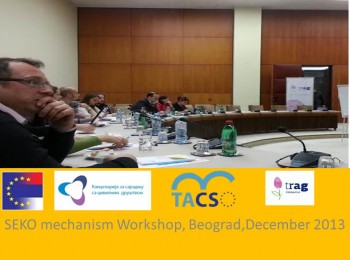
Round-table on waste management in marinas, integrated water management and EU integration
 Under the umbrella of ENV.net activities, on November 22 in the premises of Tourist Organisation of Belgrade, successful Round-table on waste management in marinas, integrated water management and EU integration was organised. After presentations, it was fruitful discussion, focused on national laws implementation gaps, as well as international and EU environmental related standards.
Under the umbrella of ENV.net activities, on November 22 in the premises of Tourist Organisation of Belgrade, successful Round-table on waste management in marinas, integrated water management and EU integration was organised. After presentations, it was fruitful discussion, focused on national laws implementation gaps, as well as international and EU environmental related standards.
Participants includes marine managers, different CSOs, city public enterprises and researchers. 

Research results presented to scientific community
EASD experts presented research results at international conferences.
Papers:
– Rethinking Waste Management within the Resource-efficient Concept, Anđelka Mihajlov and Hristina Stevanović-Čarapina, key note lecture
– Identification and characterization of Marinas in Vojvodina, Serbia, Nataša Žugić-Drakulić, Hristina Stevanović- Čarapina and Anđelka Mihajlov
were presented at the 7th ICEEM Conference: Challenges for Sustainability, Vienna, September 2013 ( full program).
Paper:
Environmental and Social Impact Assessment (ESIA): meaning and framework , Nebojsa Pokimica and Andjelka Mihajlov
was presented at the FIRST REGIONAL CONFERENCE ON ENVIRONMENTAL IMPACT ASSESSMENT, Zadar, Croatia, September , 2013.
2013 ISWA world Congress – October Vienna. Almost 1,300 delegates from 84 countries gathered in the beautiful city of Vienna, which constitutes once again a new record participation for the ISWA World Congress. The participants were offered a lot during the 3 congress days, from the inspiring opening to the tropical closing ceremony, e.g. 250 speeches in 56 sessions, 180 poster presentations. EASD / ENV.net team participated. EVALUATION CRITERIA FOR LOCAL SOLID WASTE MANAGEMENT PLANS, Hristina Stevanovic Carapina and Andjelka Mihajlov was presented.
Presentations are ENV.net study related.
Minister for Education and Science underlined the importance of drinking water for development
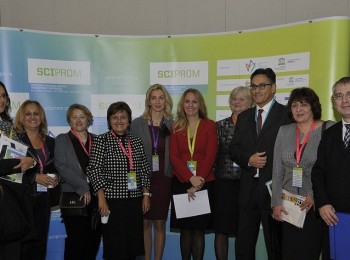
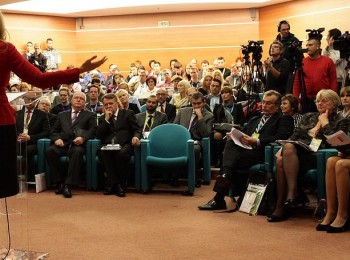 The First SEE Regional Science Promotion Conference (SCIPROM), is opened on October 2, 2013 in Belgrade, with the aim to bring together science promotion professionals, practitioners and enthusiasts to share experience and network in order to strengthen the link between science and society in our Region. In the current competitive global environment it is an imperative to enhance economic and social capacities by improving the educational structure of society, inspiring innovation and technological advancement and creating a milieu for appreciation of the value and benefits of knowledge.
The First SEE Regional Science Promotion Conference (SCIPROM), is opened on October 2, 2013 in Belgrade, with the aim to bring together science promotion professionals, practitioners and enthusiasts to share experience and network in order to strengthen the link between science and society in our Region. In the current competitive global environment it is an imperative to enhance economic and social capacities by improving the educational structure of society, inspiring innovation and technological advancement and creating a milieu for appreciation of the value and benefits of knowledge.
In the opening address, Minister for Education, Science and Technology development of Serbia Tomislav Jovanovic underlined, among others the importance of knowledge based actions, as well as the importance of drinking water for development.
Conference bring international experts and representatives of international organizations, research and educational institutions, science camps, science communicators, NGOs, private sector and media on board. ENV.net team participated.
This conference justify the path of ENV.net Serbia development linking European Integration, Knowledge based activities and sectors : Education, Science and Environment/Natural Resources.
Plenary lecture at the SYMPOSIUM „RECYCLING TECHNOLOGIES AND SUSTAINABLE DEVELOPMENT“
By invitation, Prof dr Hristina Stevanovic Carapina, had plenary lecture: RELIABILITY OF DATA ON WASTE GENERATION IN THE APPLICATION OF LCA AS A PREREQUISITE IN DECISION-MAKING PROCESS ABOUT THE INTRODUCTION OF RECYCLING IN MUNICIPALITY OF BOR (coauthors: Jasna Stepanov, Dunja Prokić, Ljiljana Ćurčić, Nataša Žugić Drakulić, Anđelka Mihajlov – majority of research team are EASD experts and members), at the eight Symposium “Recycling Technologies and Sustainable Development” , held in July 2013 in Bor. Presentation addressed some concerns raised within the ENV.net process.
, held in July 2013 in Bor. Presentation addressed some concerns raised within the ENV.net process.
EASD approved as the member of UN Sustainable Development Knowledge Platform
Since the first UN Conference on Environment and Development in 1992 – the Earth Summit – it was recognized that sustainable development could not be achieved by governments alone. This notion is reflected emphatically in the landmark outcome document of that Summit, “Agenda 21”. Section 3 underscores the criticality of harnessing expertise and capacity from all sectors of society and all types of people: consumers, workers, business owners, farmers, students, teachers, researchers, activists, indigenous peoples, and other communities of interest.
Sustainable development goes together with allowing people to broadly engage in development policy making. UN Sustainable Development Knowledge Platform serves to provide wide access to information and knowledge for sustainable development, through its online and social media. EASD involvement in process is approved by UN. It also helps build the capacity, knowledge and skills base of Major Groups. It supports, facilitates and monitors voluntary Partnerships for Sustainable Development and monitors the more than 750 voluntary commitments registered at Rio+20. It also promotes online and face-to-face knowledge and skills acquisition by stakeholders through its SD-Learning programme.
Regional Environmental Cohesion
REGIONAL ENVIRONMENTAL COHESION, from Initiative to Process
Initiative – Environmental Cohesion Initiative as the strategic concept is visionary perspective, promoting “environment as the no-borders concept” and “environmental soft diplomacy” tool for regional cooperation. Initiated in Western Balkan in 2003 by at that time Serbian Minister for the Protection of Natural Resources and Environment, through different Project implementation, become Process.
Our projects implemented (2005-2011)
| Project | Partners | Snapshots | |
2005/2006 |
Building a common ‘green’ future in Europe (Regional Initiative for cohesion in the field of environment), project supported by Open society Fund |
Environmental Ambassadors-Serbia,Biosfera – Macedonia,Most – Montenegro,Konak-Kosovo territory,Center for Energy Efficiency – Bosnia and Herzegovina,Sun of Liquenas – Albania
|
The platform SEE Regional Delaration on Environmental Cohesion as the tool to EU integration and Sustainable Development is approved in 2006 (on Regional FORUM EfE07 Preparatory Meeting in Belgrade, June 5th). Further, Declaration is presented at UNECE Committee on Environment Policy, Ad Hoc Preparatory Working Group of Senior Officials “Environment for Europe”, Second meeting, Geneva, 29-30 June 2006, with request to include it in Belgrade 2007 Conference. |
2007/2008 |
RENCO – Regional Environmental Cohesion: Towards sustainable development strategy for urban South-East Europe, project supported by Sida and Serbian Ministry of Environment |
I. Čarapina, N. Azemovski, S. Stevović, M. Apostolovski, M. Šarić, L. Bratić, A. Jovanović, T. Knez-Milojković, Z. Moravčević, A. Knez-Milojković, A.Mihajlov, REGIONAL ENVIRONMENTAL COHESION: TOWARDS SEE URBAN SUSTAINABLE DEVELOPMENT STRATEGY (RENCO), Sustainable Spatial Development of Towns and Cities, Thematic Conference Proceedings, Volume 1 (M. Vujošević, ed.), Institute or Architecture and Urban&Spatial Planning of Serbia, ISBN: 978-86-80329-51-2, Belgrade, 2007, pp.279-296 ( In Serbian rad ICarapina i dr RENCO-final) |
|
2009-2011 |
Regional environmental advocacy and cohesion of the Western Balkans (abbreviation: REA), Project supported by the the Embassy of the Kingdom of the Netherlands. |
„ Urban Research Institute (URI)“ (Tirana),„Center for ecology i energy“ (Tuzla),„Advocacy Training and Resource Center“ (Pristina),„4x4x4 Balkan Bridges“ (Skopje),„Green Home“ (Podgorica),„Center for modern skills“ (Beograd)„Environmental Ambassadors“ from Belgrade, as the Regional coordinator.
|
SnapshotsBells movementNeeds for Tailored Knowledge and Skill-Based Education for Sustainable Development: Balkan Environment Life Leadership Standards Courses |
Process, since 2003
From 2003, when initiated, though project implemented, Regional Environmental Cohesion toward EU integration and Sustainable Development become Process, having different paths of implementation in years 2012+.
With our activities in years 2013+, Environmental Ambassadors for Sustainable Development, is further supporting this strategic mission, through project implementation (like ENV.net, Environment to Europe)
Projects 2004-2011
- Sustainable Development and Environment towards EU: “EnE – Environment to Europe” Conferences 2005, 2006, 2007, 2008, 2009, 2010, 2011, in cooperation with Serbian Chamber of Commerce
- E-communication standards , 2011, supported by Ministry of Environment and Spatial Planning
- “Support to the Department of Planning, Programming, Monitoring and Reporting on EU Funds and development assistance to the Office for European Integration of Serbia, for establishing a partnership to promote the use of international assistance “, participant as the member of leading SEKO Consortium for Environment and Energy, 2011 ,
- Ecological footprint: analysis and training, project supported by UNESCO, 2011
- Possible aspects of environmental protection and natural resource management for Rural Development, supported as advisory project in the “Project on Transitional Agriculture Reform,” World Bank , 2011, 2011/2012, the Ministry of Agriculture, Forestry and Water Management of the Republic of Serbia
- Environment Forum , project supported by EC (DG Environment)
- Analytical study of the impact of air pollution on the population in selected urban locations (Pancevo, Vrsac, Bor), (participation in the project with the questioning of citizens in selected locations on the subject), a project supported by the ministries responsible for the environment and for science
- Hazardous Waste Management, TAIEX DG Enlargement INFRA 32384 project, 2009
- Say Yes to Palilula , project supported by City of Belgrade Municipality Palilula
- Modify habits – keep Belgrade clean!, the project supported by the Secretariat of Environment of Belgrade
- Hit the right tone by use environmentally friendly rules , project supported by City of Belgrade Municipality Vracar
- Regional environmental advocacy and cohesion of the Western Balkans (abbreviation: REA), Project supported by the Embassy of Nederland (2009-2011) , REA Project Snapshots , Courses
- Children – the guardians of municipality, project supported by City of Belgrade Municipality Vozdovac
- Local Environmental Security (abbreviation: LES), project supported by OSCE in Serbia, LES Brochure
- Keep it healthy, keep it green, keep it European , project supported by NDI
- Involvement of NGOs in Serbia in the research of renewable energy sources, a project supported by the EU
- My Belgrade – My Environment , the project supported by the Secretariat of Environment of Belgrade
- Local strategic planning , project supported by City of Belgrade Municipality Stari Grad
- Technology Transfer Partnerships, project supported by CIDA
- Sustainable development and environmental leaders for tomorrow, 2006/2007, MATRA
- Building a common ‘green’ future in Europe (Regional Initiative for cohesion in the field of environment), project supported by Open society Fund
- RENCO – Regional Environmental Cohesion: Towards sustainable development strategy for urban South-East Europe, project supported by Sida and Ministry of Environment
- Women as the Voice for Sustainable Development and Environment , project supported by CIDA, WAVE_Report_2007-draft
- Education courses for provincial and local authorities on public participation in decision-making related to the Environmental Impact Assessment and Strategic Impact Assessment , Project supported by Ministry of Environment

